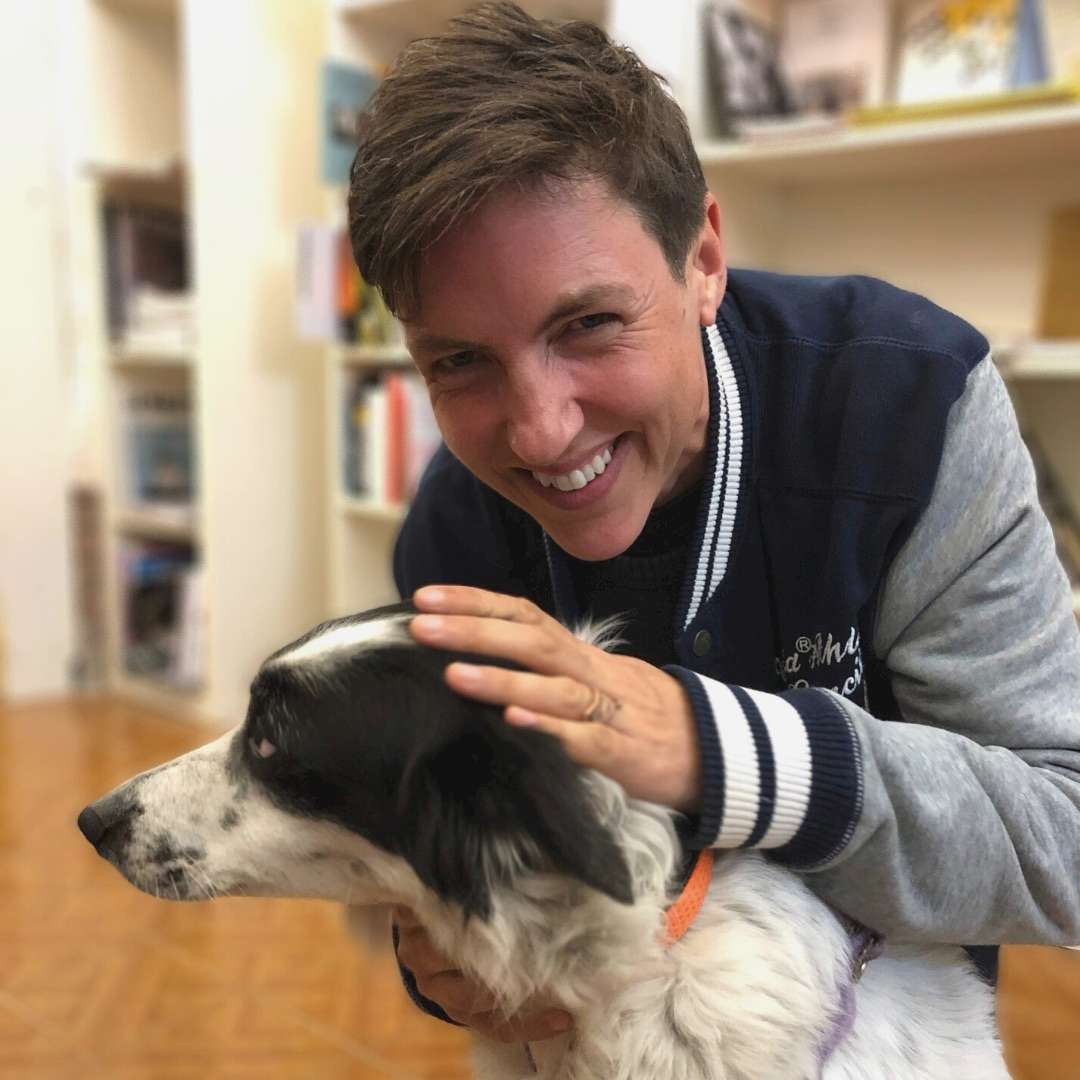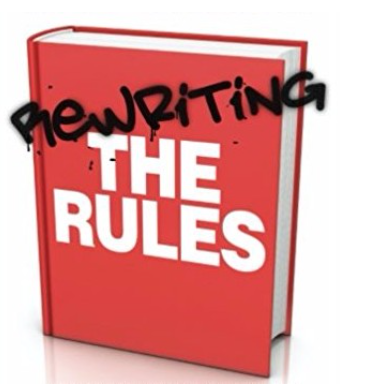People
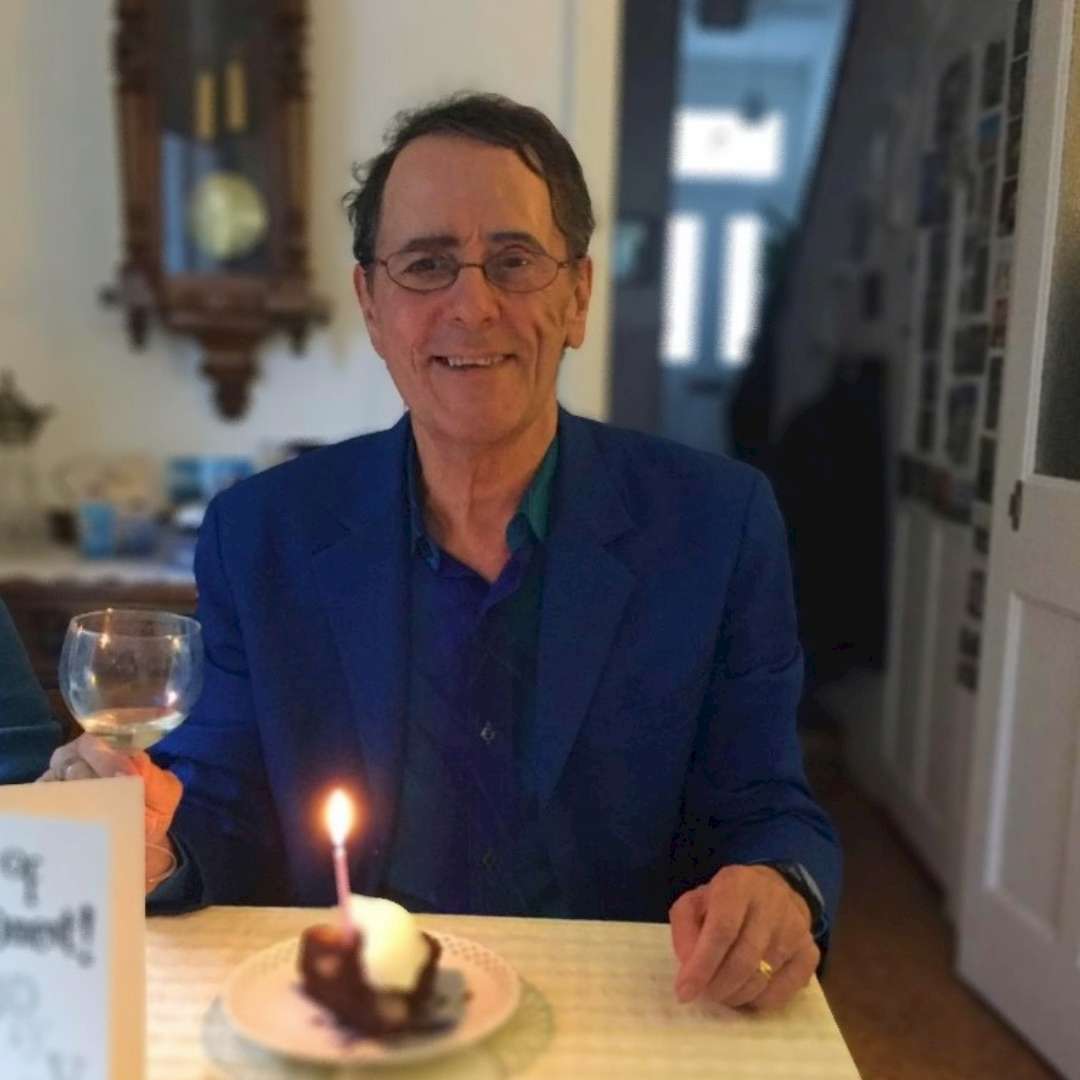
Dugan Cummings, London Friend's longest-standing volunteer
Dugan Cummings is our longest-standing volunteer (42 years and counting!) who has offered his invaluable support to London Friend and our LGBTQ+ community since 1980.
His immense contributions span over 4 decades from working on our helpline and being our chair, when he oversaw the moving to London Friend's current premises at 86 Caledonian Road, to supporting our finance team with day to day banking.
He is always on the lookout for innovative ways to help our city’s LGBTQ people and keep up to date with trends and news in the community
We asked Dugan (he/him) to talk to us about his role with London Friend and his work to support the LGBTQ+ community in London
I joined London Friend in 1980, working on the helpline. We used to get 7 or 8 calls each evening, mainly about coming out. Years later I served as Chair of London Friend for three years, during which I negotiated moving into our current premises in 1987. Since my retirement in 2001, I’ve done the banking each week to save staff time for more human matters.
As Clerk of Trustees of NW London Area Quaker Meeting, I negotiated with the Registrar at Camden to register the first gay Civil Partnership in a Quaker Meeting House in Britain.
“What is the change you’d love to see in our community?”
A welcome to refugees and other people from abroad, without prejudice – we need their skills and labour.
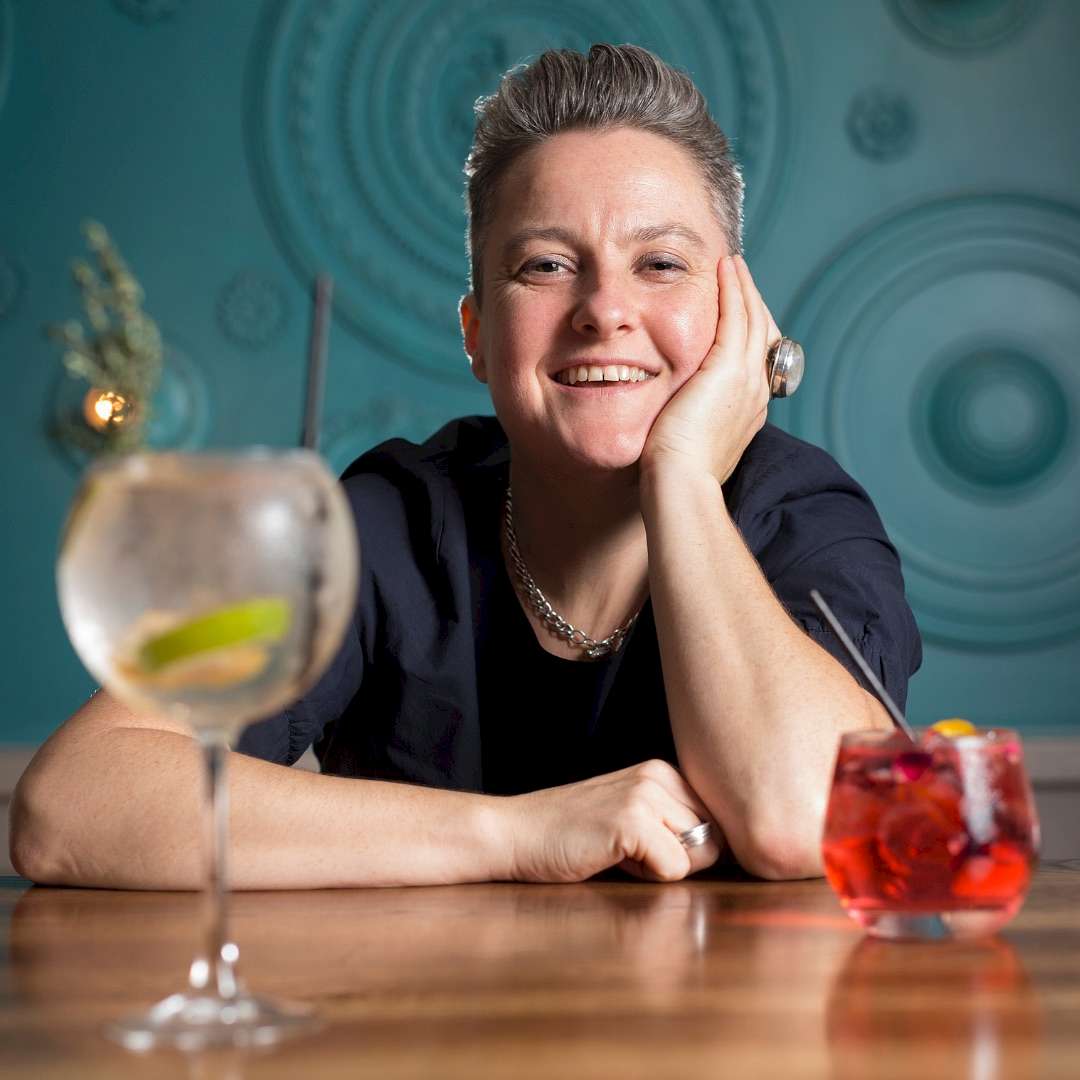
Laura Willoughby MBE, Co-founder of Club Soda, the Mindful Drinking Movement
The inspirational entrepreneur and campaigner at heart Laura Willoughby MBE gave up drinking 10 years ago and is now raising awareness and promoting mindful drinking.
Laura runs the mindful drinking movement Club Soda, a community of like-minded people on their drinking journey who want to cut down, take a break from alcohol, or stop drinking.
Laura's groundbreaking work is inspired by behavior change science, mindful approaches to life, and changing the narrative around the role of alcohol within our communities. She and her team passionately believe in a world where nobody feels out of place if they’re not drinking alcohol.
When one of their members suggested an alcohol-free LGBTQ+ meet-up under the fabulous Queers Without Beers name, Club Soda's queer offshoot was born. True to Club Soda's ethos for inclusion and equality, Queers Without Beers has quickly become the space to socialise for LGBTQI+ queers of all persuasions that doesn’t revolve around booze and everyone is welcome.
We asked Laura to talk to us about what inspires her to raise awareness and promote mindful drinking in our LGBTQ+ community and what is the change she’d love to see?
Socializing should be equality; it’s not about the strength of the drink in your glass it's about having an equal experience and making sure that everybody feels welcome regardless of their drinking habits. What I want is for there to be a great range and choice in every single queer venue across the country so help me achieve that aim! Come along to Queers Without Beers and tell us more about what you would like to see.
Watch BBC London's video "Cheers! Inside the 'off-licence' with no alcohol' featuring Club Soda's pop-up alcohol-free off-licence here
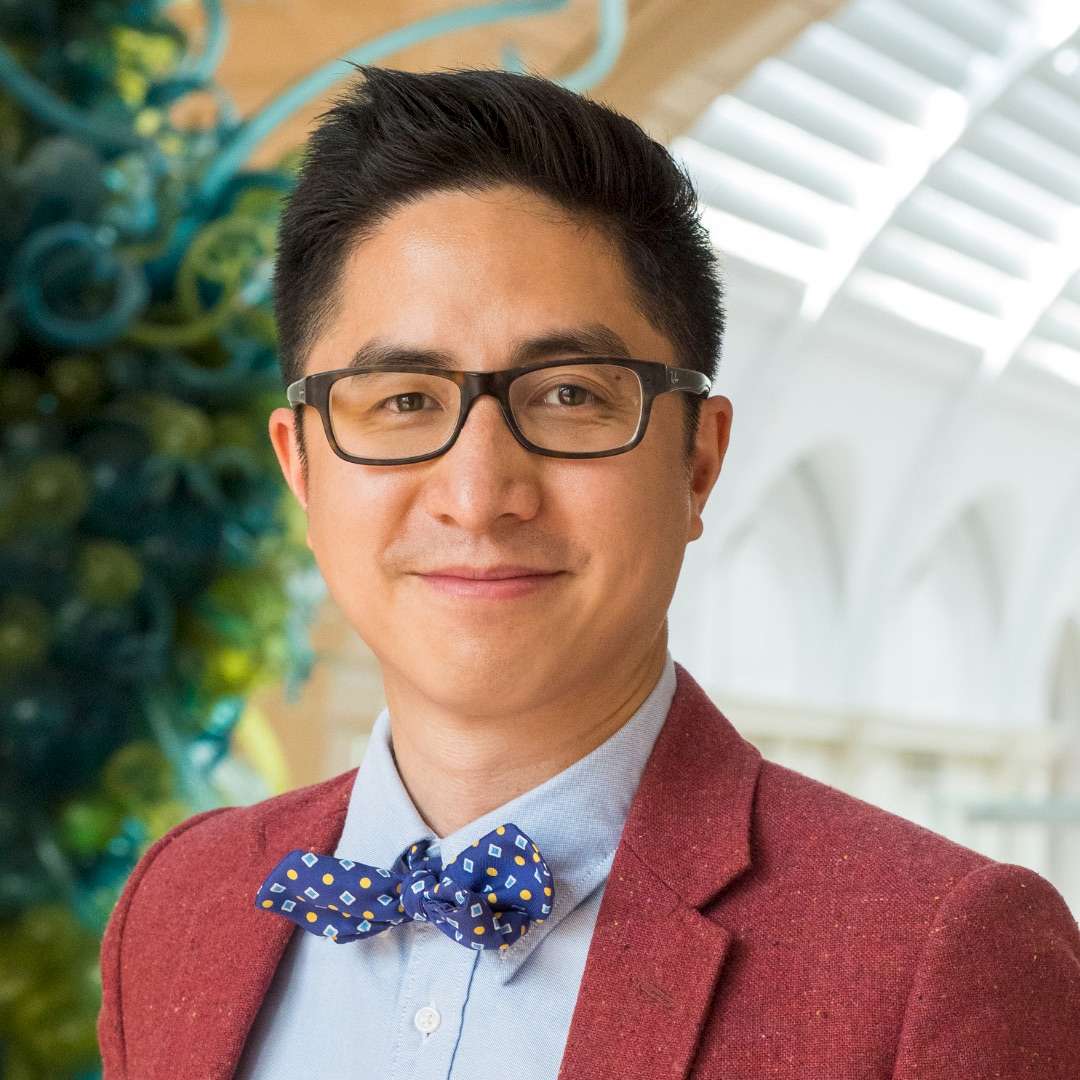
Dan Vo, patron of LGBT+ History Month and project manager of the Queer Heritage and Collections Network
Dan Vo's achievements and contributions to the LGBTQ+ community, queer culture and heritage in London have been praised by the Mayor of London Sadiq Khan describing him as one of "our most inspiring LGBTQ+ Londoners".
Dan Vo (he/him) is a museum queerator, educator at Sotheby's Institute of Art, patron of LGBT+ History Month, project manager of the Queer Heritage and Collections Network, Marketing Manager at Queer Britain, a presenter, and media producer.
Dan founded the award-winning volunteer-led V&A LGBTQ+ Tours and has developed LGBTQ+ programmes for other museums in the UK including the National Gallery. The New York Times once called him "a leading figure in the world of alternative museum tours".
As an advisor, he has travelled to every corner of the UK lecturing about diversity, inclusion and equality at galleries, libraries, archives, and museums (GLAMs). He was the inaugural winner of the Museums Association 'Museums Change Lives: Radical Changemaker Award' and co-presenter of 'Museum From Home' and 'Museum Passion' for BBC Arts.
He was also the creator of 2021’s Pride TfL roundel at Hammersmith station. When he was invited to rename the station, he chose 'Happiness', in the hope that everyone can find happiness on their journey. Dan on his design: "I was honored to be invited to design a roundel for Hammersmith Station which is part of my commute to Sotheby's Institute of Art. My roundel represents Inclusive Pride, Trans Pride, Bi Pride, and Intersex Pride. As it’s mine I also want it to be an immigrant’s roundel, a sign that everyone is welcome."
We asked Dan Vo to talk to us about his work to advance awareness of the queer heritage, culture and art in London and make it accessible and inclusive.
As a patron of LGBT+ History Month and project manager of the Queer Heritage and Collections Network, my work is about supporting galleries, libraries, archives and museums (GLAMs) in their activities that celebrate queer history and connect LGBTQ+ people to our rich histories. We've always existed and our influence on culture, society and art has been immense. I've admired the example that London Friend sets when it comes to championing wellbeing and social support. For me it's about making LGBTQ+ people know and feel that they belong.
What is the change you’d love to see in our community?
I think the biggest change for our communities is coming in Spring 2022 when Queer Britain will open our doors as the UK's first LGBTQ+ museum. It's going to put all of us and our stories under a big spotlight, and that's exactly where we belong!
Happy LGBT+ History Month and happy birthday to London Friend!

Queer Britain is a charity that has established the UK's first national LGBTQ+ museum.
Huge congratulations to Queer Britain’s team and Dan Vo for securing the physical home for the UK's first national LGBTQ+ museum in Granary Square, King's Cross, London. The museum, located just minutes away from London Friend’s premises at 86 Caledonian Road, is occupying part of a historic building owned by the charity, Art Fund.
The space includes four galleries, a workshop, an education space, a gift shop and offices for the team and opened its doors to the public this past May with free entry.
For more information visit their website.
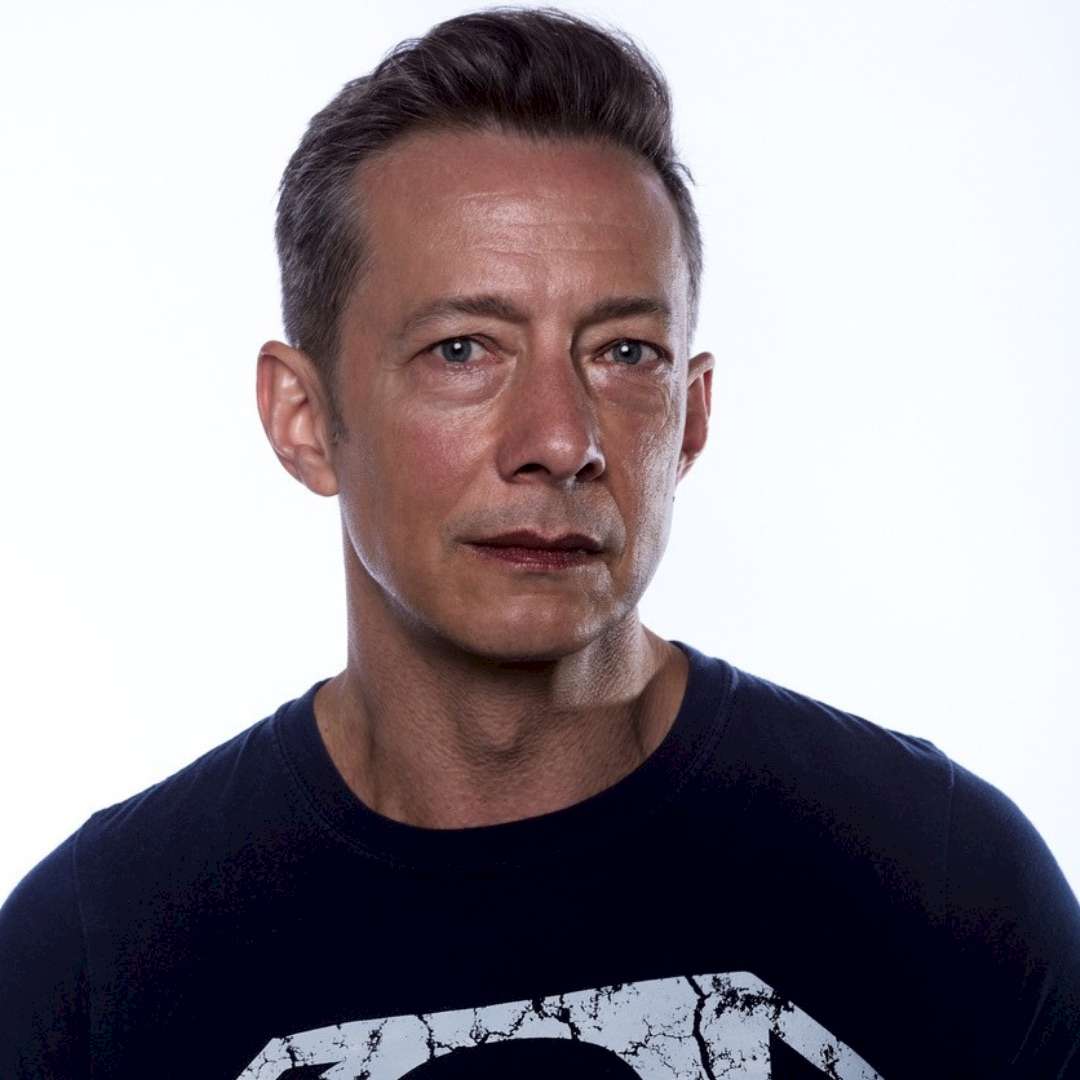
Matthew Hodson, Executive Director of the HIV information charity NAM aidsmap
To mark National HIV Testing Week, we're celebrating the outstanding contribution to the HIV sector of Matthew Hodson (he/him/his), Executive Director of the charity NAM.
NAM aidsmap provides independent, clear and accurate information in the fight against HIV and AIDS, advocates for better services and challenge stigma and discrimination for those affected by HIV.
Previously Matthew was Chief Executive at GMFA, the gay men’s health charity. London Friend has partnered with GMFA and its parent charity LGBT HERO since 2010 as members of the National LGBT Partnership and through our work on mental health.
In 2017, Matthew has been named overall winner of the Social CEO awards in recognition of his fearless commitment to challenge prejudice and bolster the case for his charity’s work.
In 2020 Matthew was on the Pride Power List of the most influential LGBTQI people in the UK and won Best Twitter at the WEGO Health Awards.
We asked Matthew to talk to us about his work on HIV, especially his work challenging stigma as a proud role model.
I was diagnosed with HIV when I was 30. At the time I doubted I would live to see 50. I passed that milestone four years ago.
Knowing your HIV status is vital. HIV treatment is now so effective, our life expectancy should not be reduced. What is more, when we are on effective treatment there is no risk of passing the virus on during sex. Most of the fear that people have towards those of us living with HIV is based on outdated views. Attitudes have not progressed as rapidly or as positively as the medical treatment has.
I have spent more than 20 years now sharing information about HIV, to help prevent transmission and to support the lives of people living with HIV around the world. I tackle stigma by being shameless about my own HIV status. We made great strides in equality by coming out as LGBTQ and we can do the same for HIV.
People with HIV aren’t frightening or different when you hang out with us. I don’t regret coming out as gay and I don’t regret the decision to be open about my HIV status either. It’s liberating. When we smash the viral closet, we smash HIV stigma.
What is the change you’d love to see in our community?
Our LGBTQ+ communities are diverse, but we are stronger when we stand together. I lived through the homophobia of the 1980s and fought against Section 28. I recognise prejudice and see the way that gay men were treated in the early days of AIDS mirrored by the way that trans people are treated now. Tackling prejudice and inequalities is necessary for us to flourish and grow. Let us start with kindness.
You can follow Matthew on Twitter and Instagram. For more information on NAM, visit their website.
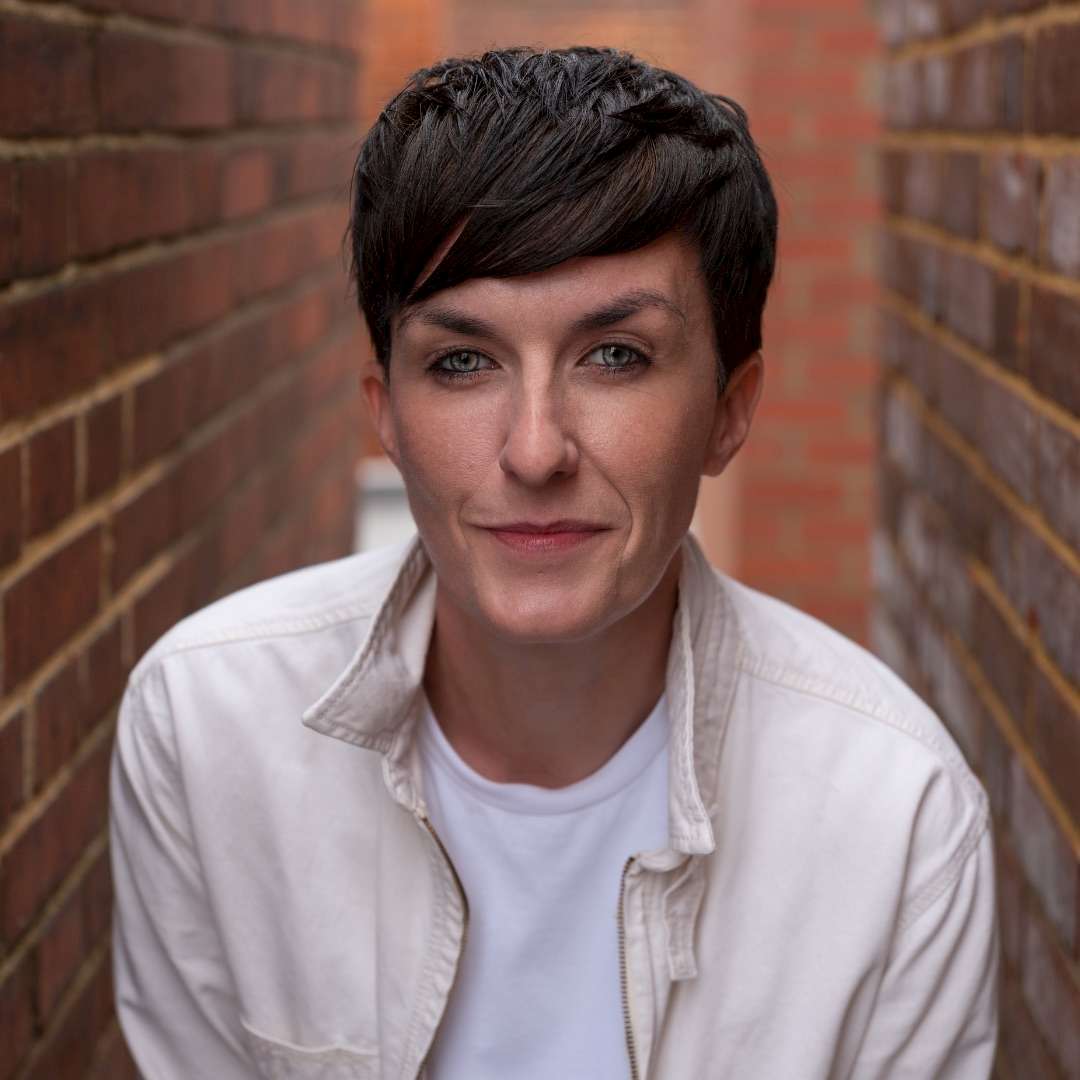
Kate Martin, former Chair of London Friend
Kate was on the London Friend Board of Trustees between 2013 and 2021 and was our Chair for 5 years from 2016. Throughout her career, Kate Martin (she/her) has pioneered ways of working alongside young people to promote lived experience, empowerment, and engagement in shared decision making and collaborative practice across education, social care, health, and mental health. She is particularly interested in exploring the underlying issues and dynamics that enhance or undermine coproduction and decision-making, including power, epistemic injustice, and identity. Kate Martin is also a stand-up comedian whose experience in mental health gives fuel to her confident, high-energy storytelling combined with razor sharp observations of life's quirks through queer eyes.
We asked Kate to talk to us about her history with London Friend as a Chair of Trustees and her work to support young people’s mental health and the LGBTQ+ community in London
It was an organisation like London Friend that helped me to come out and learn to be proud of who I was over 25 years ago (how can it really be THAT long ago… gulp). As cheesy as it sounds, it was a real honour on the Board of Trustees for 8 years and Chair for 5 of those. I have worked in mental health all of my career, working alongside young people to speak up and influence decisions that affect their lives and communities, improve the services they use, and shape policy and research that affects them. It has been incredible to have been able to play a small part in the amazing and critical work London Friend do to support the mental health and wellbeing of LGBTQI people across London. London Friend truly place the needs and voices of the staff, volunteers and service users at the heart of everything they do.
What is the change you’d love to see in our community?
I hope to see the rights that we have hard fought for as a community become more equally experienced by all. We have come a long way and have much to celebrate… but we know this progress isn’t equally shared by all. Bi and trans women, people who are racialised and who experience mental health problems (amongst others) are, for example, experience higher levels of discrimination or have less access to appropriate services for their physical and mental health. I hope we continue to stand together and fight for equal rights and safety for all members of our community and continue to celebrate how fabulous we all are!
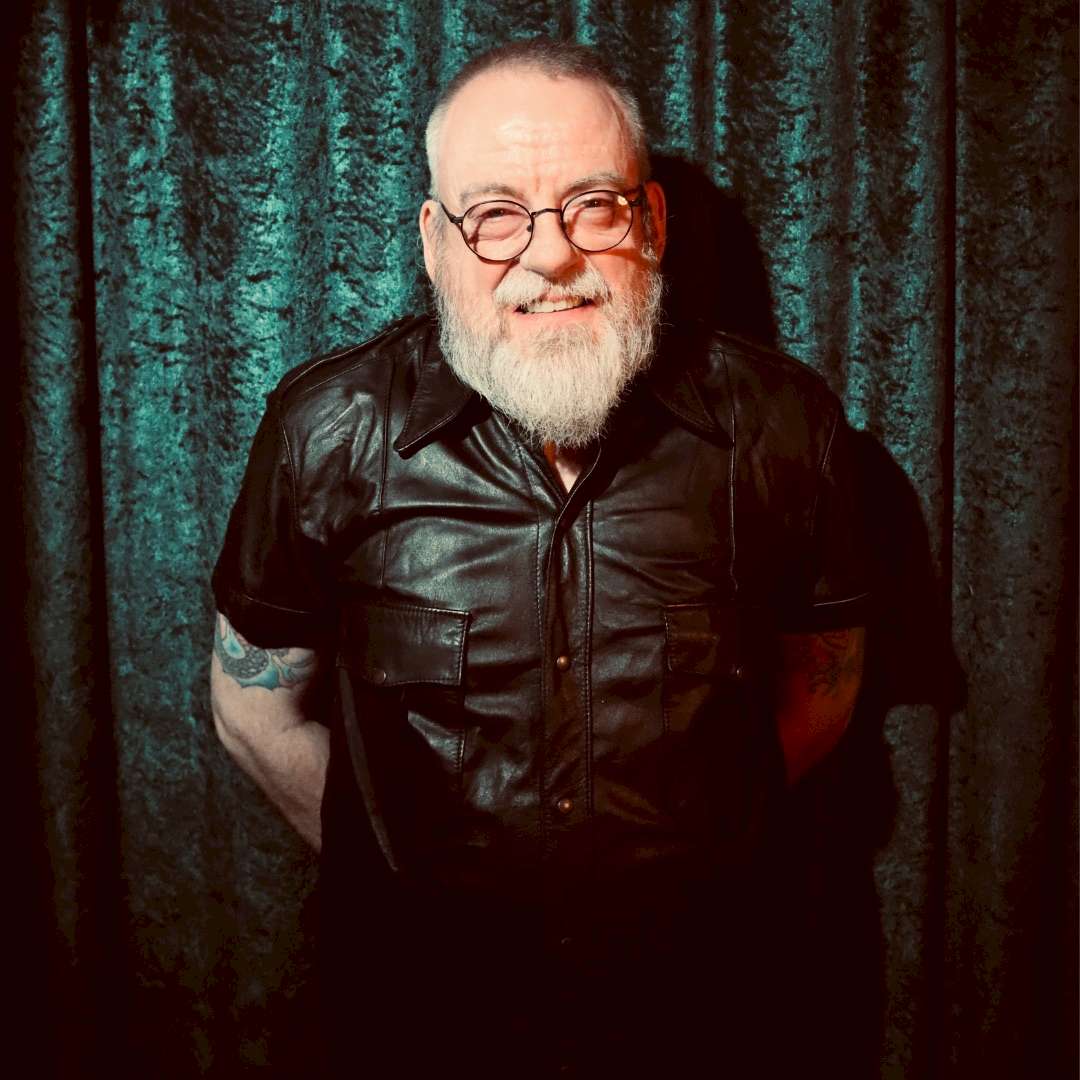
Richard Desmond, the first person to challenge the Age of Consent for Gay Men in ECHR 1980 and a long-standing volunteer at Switchboard LGBT+ Helpline
To mark the last week of LGBT+ History Month 2022, we're celebrating Richard Desmond's incredibly long history with Switchboard as well as his role in challenging the Government over the age of consent. In 1982, Richard Desmond (he/him/his) became the first man younger than the minimum age of consent for gay sex in England and Wales to challenge the higher age of consent using the ECHR. The Commission confirmed that the UK had the discretion under the ECHR to “fix the age under which young people should have the protection of the criminal law” and dismissed Richard’s complaint. It took from 1967 to 2009 to equalise the age of consent at 16 for everyone across the whole of the UK. Since the early 90s, Richard has been lending a non-judgemental listening ear at Switchboard LGBT+ Helpline, a confidential anonymous listening service since 1974. As a role model living openly with HIV since 1985, he become a tireless campaigner for safer sex, challenging HIV stigma by making a difference to the most vulnerable in our communities in need to be heard and supported.
We asked Richard to talk to us about his history with Switchboard as well as his role in challenging the Government over the age of consent
I was a teenage sex criminal, at 17 (admitting sex at 16), the first applicant to the European Court of Human Rights to challenge the Age of Consent for gay men, my Mum having signed the papers. At around the same time, I first joined Switchboard, later having to resign after my Dad phoned up drunk and threatened to go to the Daily Mail. In 1985, I was diagnosed with HTLV-III (now HIV). With the urgency of the time, I became evangelical promoting safer sex and Switchboard - my outlet re-joining in 1993, knowing there were lots of volunteers, my being ill wouldn’t wreck anything. The grief and anger funnelled into action. Switchboard’s role as a confidential anonymous listening service let us talk about sex and enthusiastically recommend safer sex. Now, we can spread the joy of U=U & PrEP as well as condoms and plenty of lube. Like all the over 200 Switchboard volunteers, I still try to get safer sex into every appropriate call and now there are instant messages from the Switchboard website as well as email. The technology has changed but I’m still there listening because at Switchboard, like our sibling London Friend, we know being heard often makes a difference.
What is the change you’d love to see in our community?
We are many communities bound together by bonds of friendship and common interest; we need to make the time to be together so the friendships can grow.
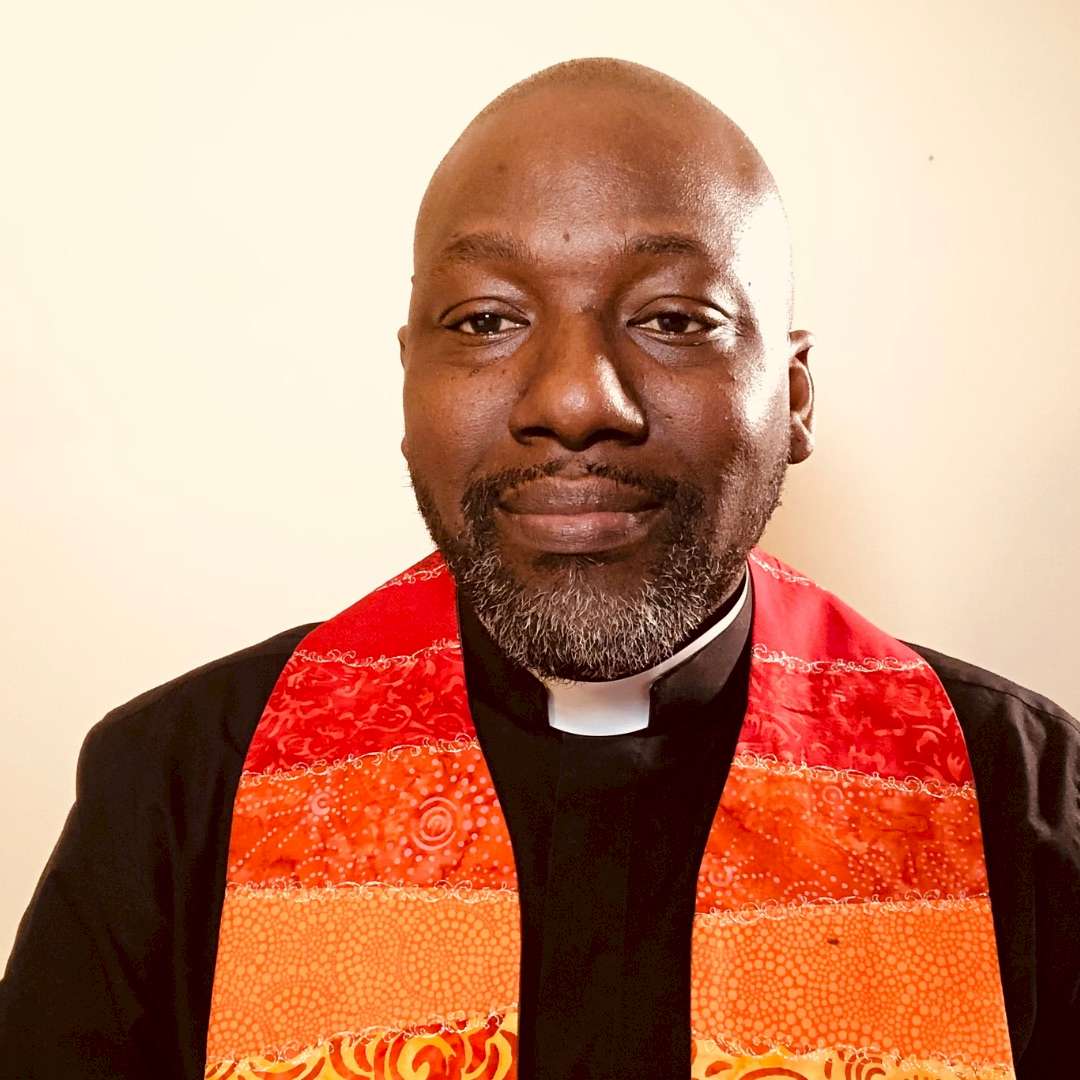
Revd Jide Macaulay, Founder & CEO of House of Rainbow, HIV activist and human rights campaigner
Reverend Jide Macaulay (he/him/momma) is the Founder and CEO of House of Rainbow CIC. Openly gay British Nigerian born in London, he is a Christian minister since 1998, an Anglican Priest and inspirational speaker, author, poet, pastor and preacher and an HIV Positive activist. Jide holds a degree in Law, master’s degree in Theology and Post-graduate certificate in Pastoral Theology. Revd Jide Macaulay focuses his ministry on inclusion and reconciliation of sexuality, spirituality, and human rights. He is also a former Board of Trustee at Kaleidoscope Trust UK. Currently Jide is a Chairperson at INERELA+ Europe, an international network of religious leaders, living with, or personally affected, by HIV. Jide is a Patron at ReportOUT, Vice Chair One Voice Network, HIV mentor at Positive East, Nominee British LGBT Award 2021 - Top 10 Outstanding Contribution to LGBT+ Life, nOSCARS Award winner 2014, 2017, 2018, Volunteer Chaplain at Mildmay HIV Hospital and Volunteer Champion at Africa Children's Charity.
We asked Revd Jide Macaulay to share with us what inspires him to work on inclusion and reconciliation of sexuality, spirituality and human rights and his activism on challenging HIV stigma
I will like to see more unity and love within the LGBTIQ+ community, we must recognise that we are strengthened when we stand together against the sequence of hatred in this world, by doing so we make a difference across oceans and the sky is the limit for our desired change in this world.
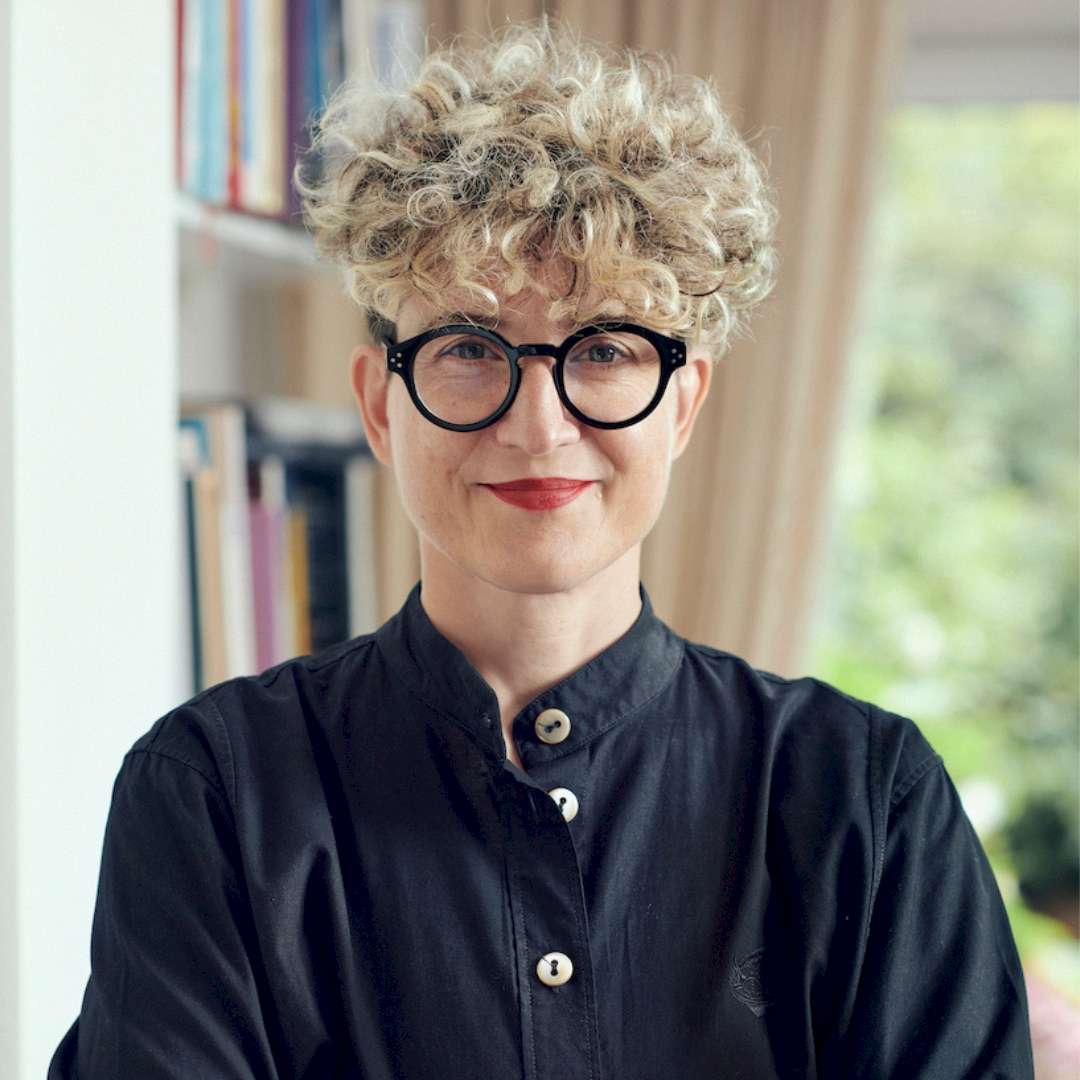
Jane Chance Czyzselska, former editor of Diva magazine and volunteer counsellor at London Friend
To mark LBT Women’s Health Week 2022, we're celebrating the enormous contribution Jane Chance Czyzselska (they/she) made to Lesbian, Bisexual and Trans women’s representation as a former editor of DIVA magazine and as a volunteer counsellor at London Friend.
Jane Chance Czyzselska was the editor of DIVA magazine from 2004 to 2017 and continues to be committed to amplifying and creating space for marginalised lesbian, bi, queer, non-binary, trans and intersex voices. They are also a public speaker and regular panellist at conferences and events and have spoken on a range of issues, including but not limited to, gender and sexuality, queer intersectional feminism, white privilege and intersex subjectivities. With the Intersex Equality Rights UK's Valentino Vecchietti, they have also delivered workshops for counsellors and psychotherapists who want to know more about working with intersex clients.
Jane Chance volunteered for 18 months at London Friend between 2013-2015 offering counselling to a range of clients, many of whom had experienced profound trauma in their countries of origin as a result of homophobic laws. Others were struggling with addictions, chemsex, bereavement, gender identity, anxiety and eating disorders.
We asked Jane Chance to talk to us about their work on championing and promoting LBT women’s health and their work as a therapist
Queer and trans women and non-binary people's health and wellbeing has always been important to me particularly because our health issues are often overlooked in mainstream health settings and in research.
Only LGBTIQ+ organisations and charities such as you brilliant lot at London Friend generate the kind of focussed services and care that our communities so urgently need. Indeed, while I was at DIVA magazine, this focus was hugely important. In 2014 DIVA supported the health initiatives generated by then director Ruth Hunt at Stonewall and the LGBT Foundation's Sian Lambert's 2012 report Beyond Babies and Breast Cancer that precipitated a short debate in the House of Lords about the insufficient health service provision by the NHS for lesbian, bisexual and trans women.
Since leaving DIVA in 2017, and in my capacity as a psychotherapist and writer, supporting the wellbeing of the clients I see is still the heart of my work. To this end my new book for all therapists working with LGBTIQA+ clients, Queering Psychotherapy (Confer Books) is coming out in October 2022.
What is the change you’d love to see in our community?
We white queer and trans people need to work harder to dismantle white supremacy in our communities and be aware of all the ways it manifests structurally. It's in all our interests to join together with this aim because it underpins homophobia, ableism, biphobia, lesbophobia, interphobia, transphobia, non-binary-phobia and misogyny. Together we are stronger.
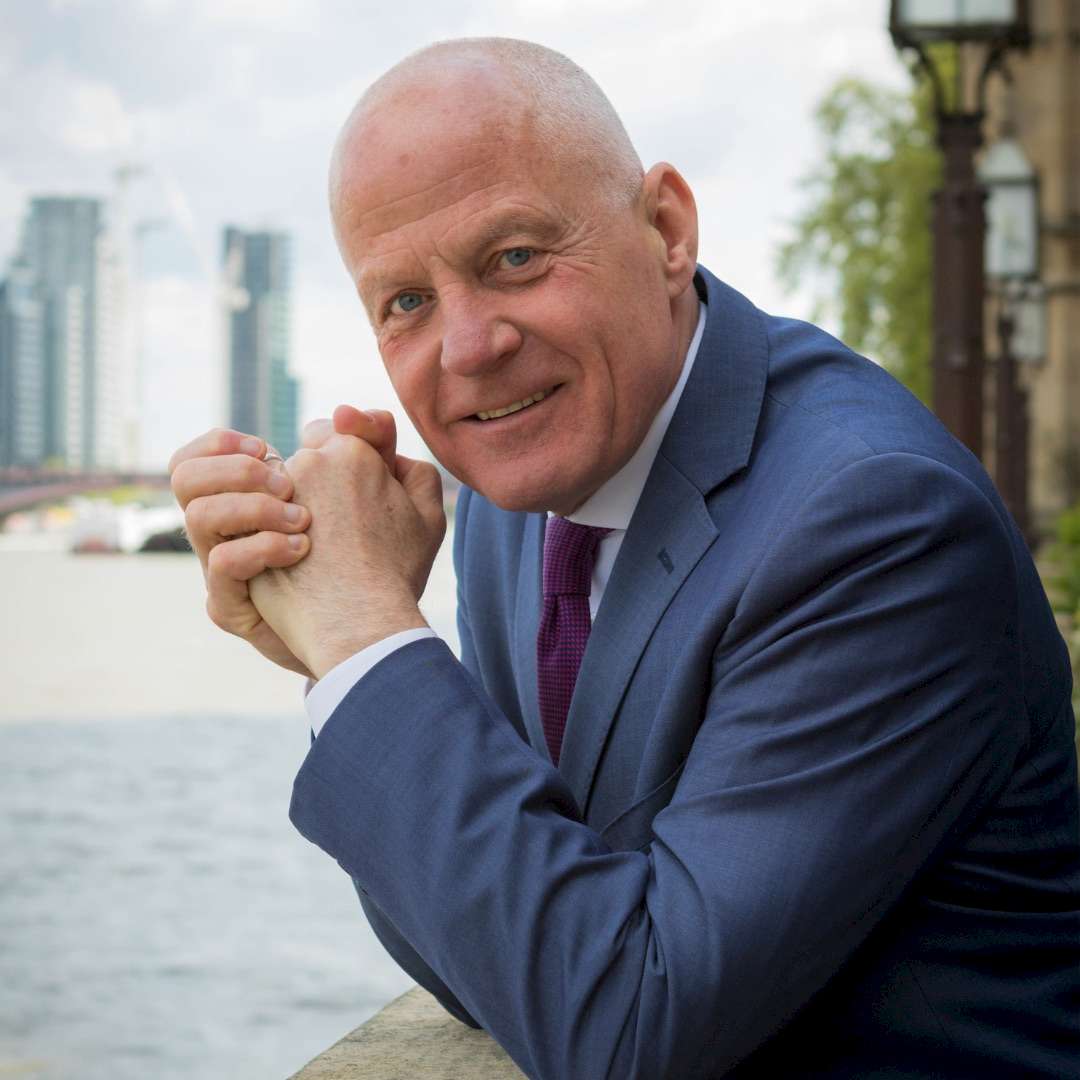
Lord Michael Cashman CBE, co-founder of Stonewall, British politician, former Member of European Parliament, Labour Peer, former actor, writer
Born and raised in the post-war East End of London, Lord Michael Cashman CBE (he/him) has lived many lives, all of them extraordinary: as an actor with his most defining role as Colin in Eastenders, making television history as one half of the first gay kiss ever broadcast on a British soap; as a campaigner for gay rights and a founding member of Stonewall and LGBT+ global envoy; as a Member of the European Parliament; and as a life peer.
He was made a Commander of The Most Excellent Order of the British Empire (CBE) for political services and equalities in the 2013 Queen's New Year honours list.
In 2014 Michael was elevated to the House of Lords (Labour) and took the title of Baron Cashman of Limehouse.
His accolades and awards include Special Service Award from the American Association of Physicians for Human Rights, Honorary Doctorate from Staffordshire University: Commander of British Empire (CBE), Lifetime Achievement Award, European Diversity Awards, Pink News Awards 2014, Stonewall Politician of the Year 2014, Honorary Freedom of the City of London 2016, Honorary Life Membership from British Equity 2017 and NatWest Lifetime Achievement, British LGBT Awards 2020.
We asked Lord Cashman to talk about his work to advance our LGBT community's cultural and political agenda.
London Friend has been at the centre of London’s LGBT life and our lives for a brilliant 50 years during which time I have done my best to support and complement their work during my time as a high profile ‘out’ television actor, co-founder and founding Chair of Stonewall, as an elected member of the European Parliament (and co-president of the LGBT intergroup) and now as a member of the House of Lords. The positive changes that have occurred over the years have been realised by working together and recognising the equal value of every human being – especially those often overlooked, misrepresented, or discriminated against.
What is the change you’d love to see in our community?
That we maintain our strength by defending the rights of those often under attack in our community recognising that an attack upon one is ultimately an attack upon us all.
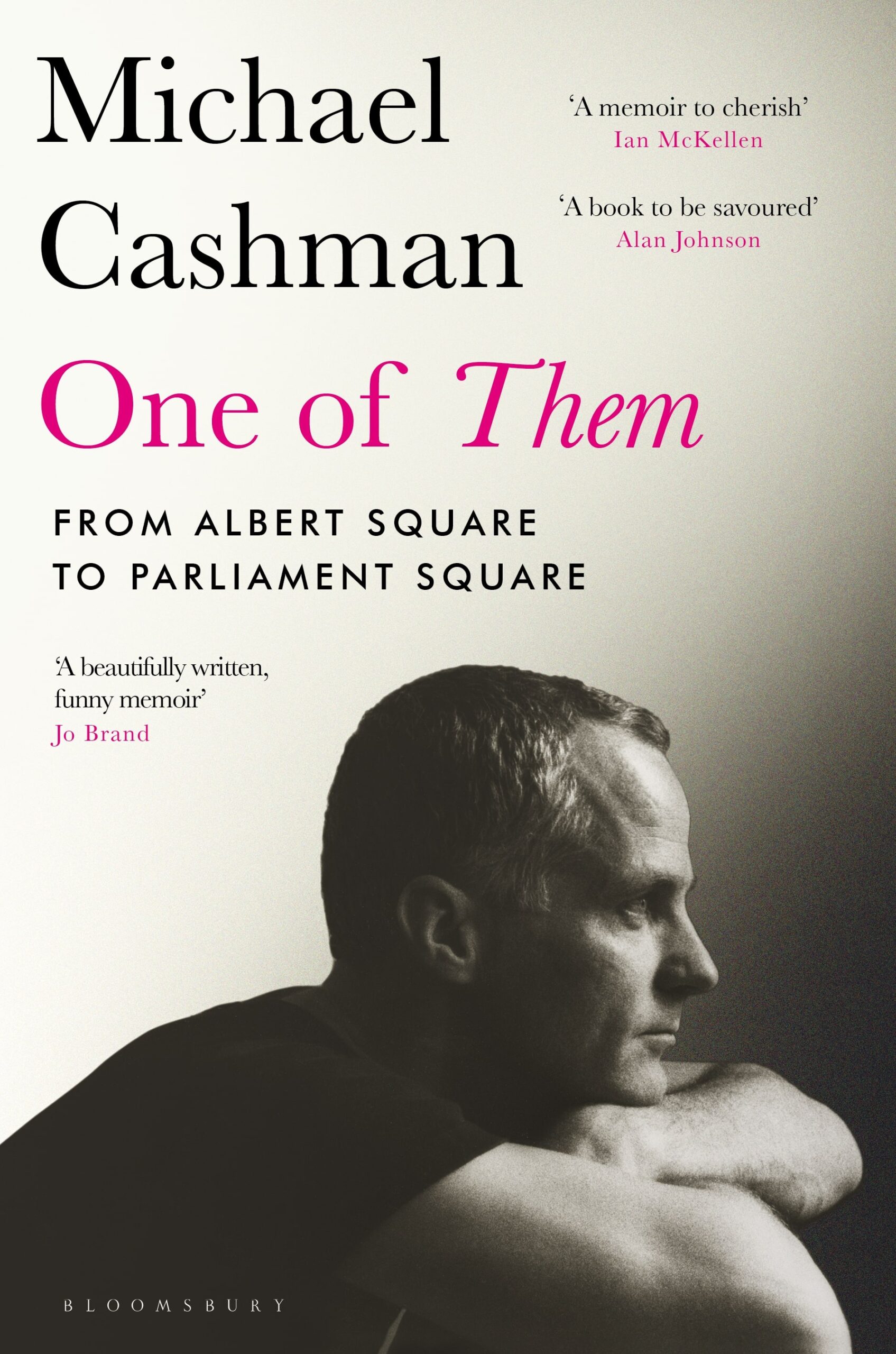
Michael's bestselling memoir One of Them: From Albert Square to Parliament Square was published by Bloomsbury in February 2020 and is out now in paperback.
One of Them has been shortlisted for the RSL Christopher Bland prize in 2021. In the same year, it was also longlisted for the Polari First Book Prize.
'This book, unlike any other I've read, is a true portrait of a brave actor, politician and Lord. Michael Cashman shares his most private feelings in a memoir to cherish' - Ian McKellen.
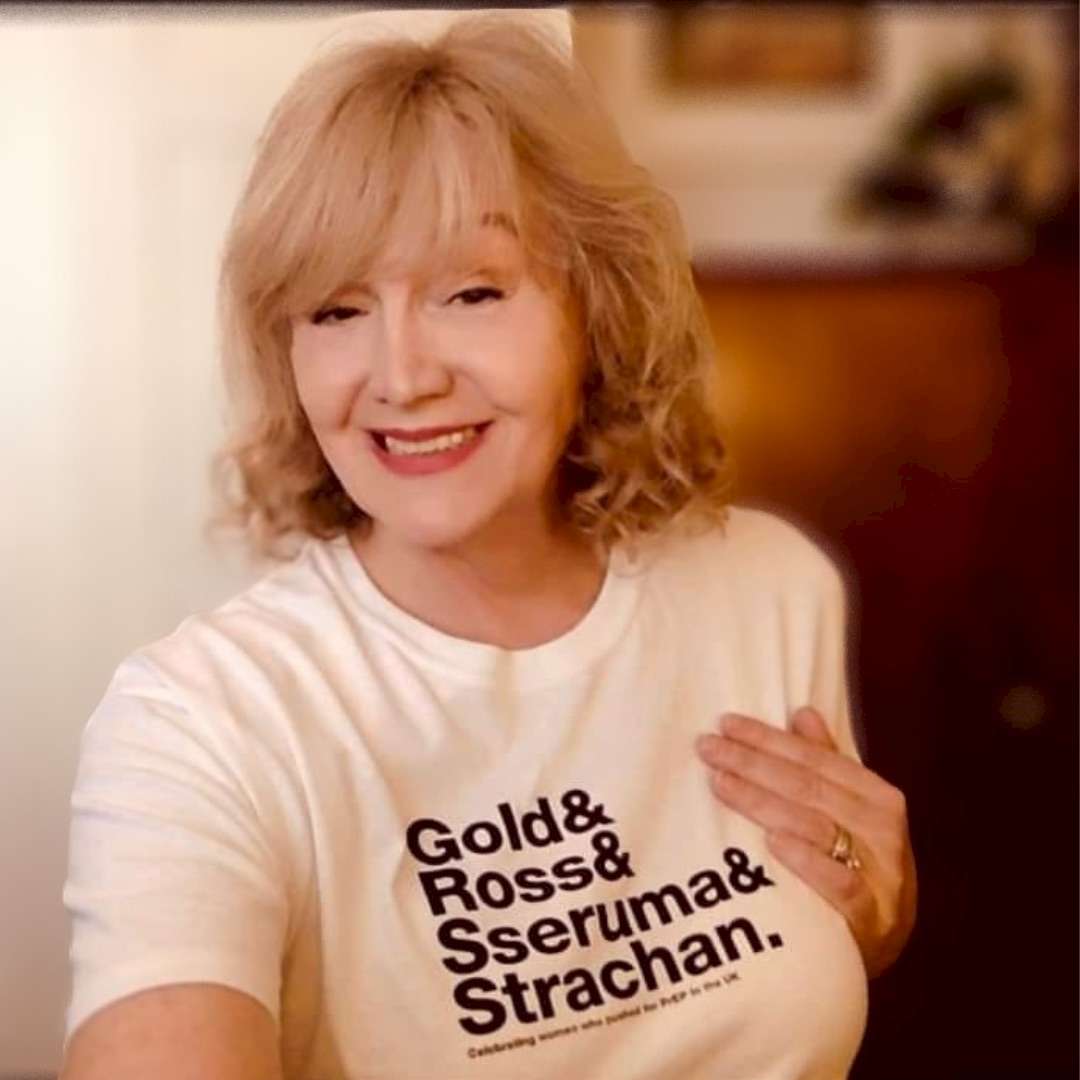
Michelle Ross, Founder of CliniQ and Director of Holistic Wellbeing Services
To mark Transgender Day of Visibility, an annual event occurring on 31st of March, we're celebrating the outstanding contribution to improving the provision of health and wellbeing services in the UK for trans, non-binary and gender diverse people of Michelle Ross (she/they), founder of CliniQ and director of holistic wellbeing services.
Michelle has been involved with sexual health, HIV & well-being for over 34 years. She is a member of IRGT: A Global Network of Trans Women advocating for trans issues in the international HIV response.
CliniQ is the UK’s first sexual health and well-being clinic aimed at supporting the trans community and their partners. Since its inception 10 years ago, CliniQ's trans-led team provides sensitive sexual health screening and access to counselling, drug and alcohol support and advocacy in a safe, confidential space for those who may not feel comfortable accessing mainstream services.
London Friend has proudly supported CliniQ since its launch and continues to take referrals for counselling and drug and alcohol support for CliniQ clients.
We asked Michelle to talk about her work on trans sexual health and wellbeing and the successes of CliniQ
I am very much involved in making PrEP available to all who need it. I was on the Advisory Board for the PrEP Impact Trial, this was before PrEP was available on the NHS. My focus for 34 years has always been on HIV. I was becoming a psychotherapist because of my involvement with HIV at Terrence Higgins Trust from 1988 for 27 years.
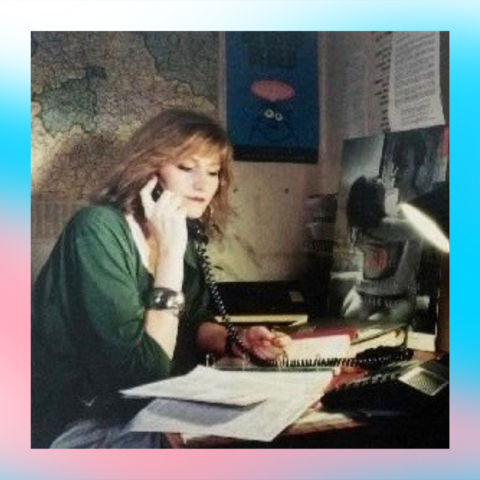
Photo: Michelle Ross on the Terence Higgins Trust phone lines in 1990
I founded CliniQ because there was a very real need to have a space there for trans, non-binary and gender diverse people to have informed services for and by trans folk. I and CliniQ are very much involved in ending HIV by 2030 which means ending new HIV transmissions by then - we all, the HIV and Sexual Health sector are working hard to bring this about!
CliniQ was set up in 2012 although I had the idea for such a space since 2010 as it took a couple of years to formulate such a service and how it would be delivered. So CliniQ is now 10 years old! We have worked in Bangkok, Durban South Africa, and Amsterdam mostly at International AIDS conferences. I know that CliniQ has inspired others to set up similar services - it is what we wanted: Local Services by Local People.
What is the change you’d love to see in our community?
I would like to see trans and non-binary people be able to access services even more local to them - not only in specialist centres. I want people to be told, "Yes, we can do that for you" rather than being told "No, we can’t do that you will have to go to another city miles away!"
CliniQ has a wonderful partnership service with King’s College Hospital every Tuesday - we are also getting involved with other health services there to bring inclusion in all health and wellbeing services. Our therapy services are independent and now online and have been throughout COVID. The need from the communities was huge and still very much is.
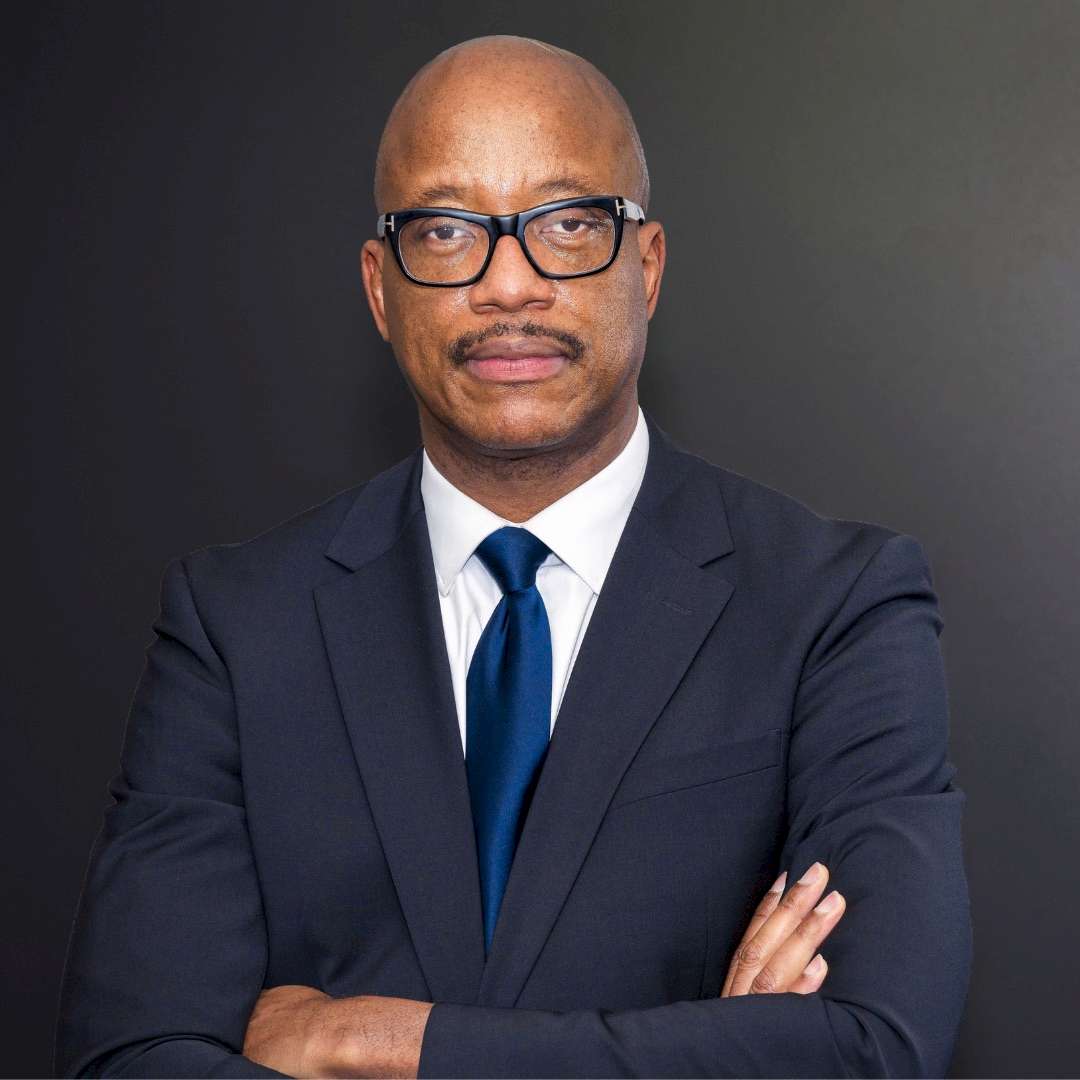
Professor Kevin Fenton, London Regional Director of Public Health, OHID and NHS London, Co-Chair of Fast-Track Cities London
To mark World Health Day 2022, celebrated annually on the 7th of April, we're highlighting the pioneering work and outstanding leadership of Professor Kevin Fenton (he/him), Public Health Regional Director London and Co-Chair of Fast Track Cities in London working to end new HIV infections, stop preventable HIV deaths and eliminate the discrimination and stigma associated with HIV. Professor Kevin Fenton has worked in a variety of public health roles across government and academia, before re-joining Public Health England (PHE) in April 2020 as London’s Director of Public Health. He now holds this role at the new Office for Health Improvement and Disparities (OHID) after PHE's functions transferred there. As Regional Director for London, Kevin will fulfil the role of the Mayor of London’s public health advisor, provide leadership for health, prevention of ill health, health protection and reduction of health inequalities in the capital. He has been at the forefront of London's response to Covid-19. He is Chief Advisor on HIV to Government and Chair of the HIV Action Plan Implementation Steering Group to oversee the delivery of the new HIV strategy for England. He established and led PHE’s Health Equity portfolio with a range of programmes and activities focused on addressing the social determinants of health and promoting place-based approaches to health improvement.
We asked Kevin to talk about his work in London for health prevention and improvement and reduction of health inequalities for London’s LGBT+ communities
I am a British/Jamaican public health physician and infectious disease epidemiologist and have worked in the prevention and control of HIV/AIDS for over three decades. My early experiences of caring for some of the first cases of AIDS in Jamaica inspired my choice to specialise in infectious disease epidemiology with a focus on HIV/STI prevention and control. I am currently the Office for Health Improvement and Disparities Director for London, NHS London’s Regional Director of Public Health, and the Statutory Health Advisor to the Mayor of London. I am actively involved in supporting HIV prevention policy and programmes in London as one of the two co-chairs of the Mayor of London’s Fast Track Cities Initiative. There have been so many advances in the management of HIV/AIDS in London that I have had the privilege of being involved with or leading including the MAYISHA studies of sexual attitudes and lifestyles of Black African communities; the NATSAL II study which studied racial/ethnic differences in sexual attitudes and lifestyles; developing the specification for the routine commissioning of HIV Pre-Exposure Prophylaxis in England; establishing Public Health England’s HIV prevention innovation fund; expansion of community HIV testing; and most recently being appointed the government’s Chief HIV Advisor charged with overseeing the implementation of the 2021 HIV Action Plan.
What is the change you’d love to see in our community?
HIV, and more recently COVID-19 as global pandemics have taught us that social injustice anywhere results in social injustice everywhere. I am keen to see policy makers, programme implementers and communities everywhere truly understand and respond to the pervasive and detrimental effects of inequalities, and renew their advocacy, policies, and programmes to help eliminate them.
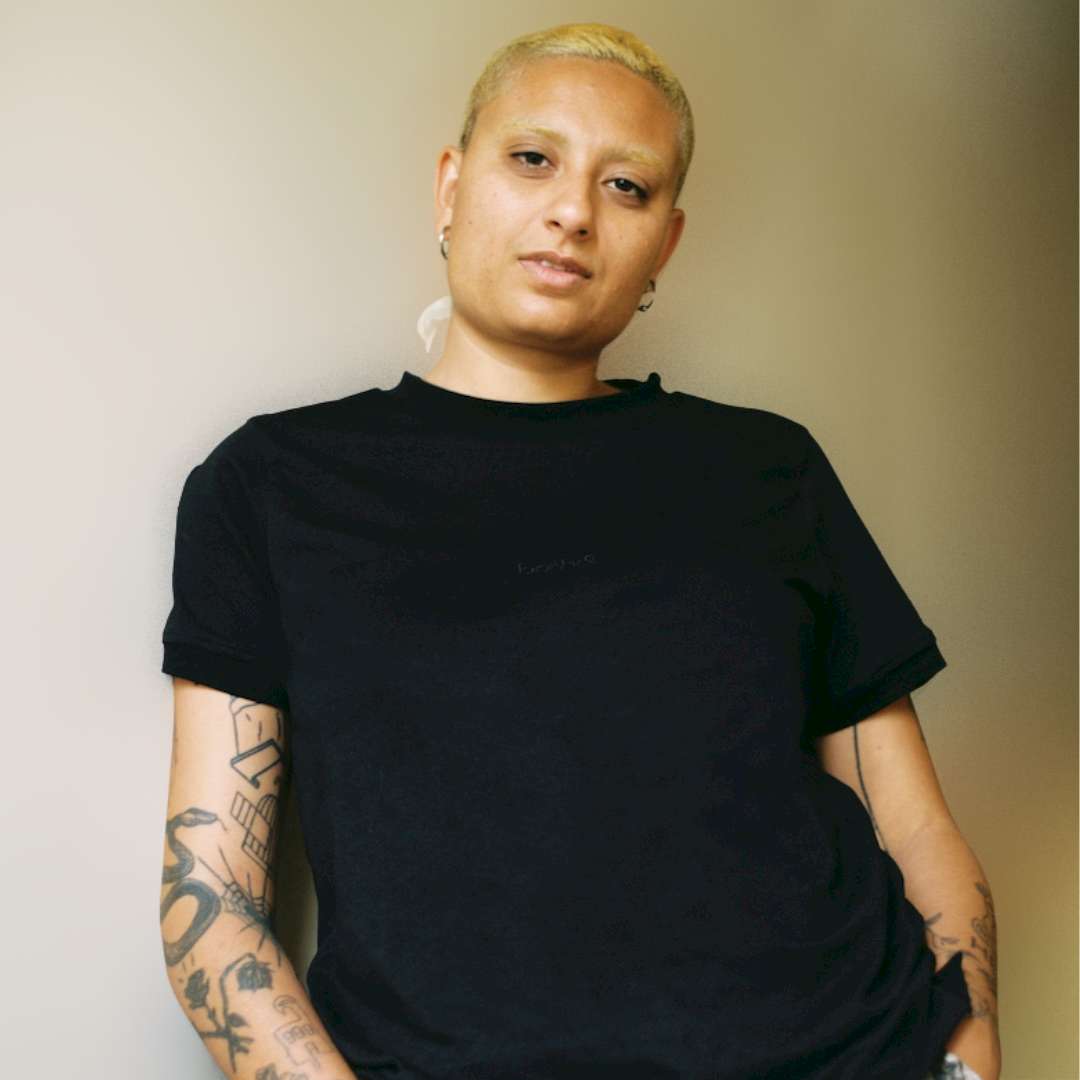
Aisha Mirza, writer, DJ, counsellor and creator of MISERY, a sober club night and mental health club for queer, transgender, intersex and non-binary Black people and people of colour (QTIBPOC)
Aisha Mirza (they/them) writes about mental health, sex, race and gender and has written for BuzzFeed, gal-dem, The Guardian, The Independent, Black Girl Dangerous, Media Diversified , Open Democracy, The New York Times and others.
Their article, 'Staying Alive Through Brexit: Racism, Mental Health & Emotional Labour' was published in an anthology of essays by British Muslim writers called ‘The Things I Would Tell You’ in April 2017 (saqi books).
They are a DJ and founder of MISERY, a mental health hub and sober club night for QTIBPOC. Aisha is also a trained sexual assault, domestic violence and suicide counsellor and Indian head masseuse.
They are interested in body hair, madness and race and the impact of microaggressions on the psyche of queer black and brown people.
We asked Aisha to talk to us about their work on championing and promoting mental health, sex, race and gender awareness for QTIBPOC as the creator of MISERY and advice columnist at gal-dem zine
I write a monthly advice column for gal-dem, answering questions about queer love and life. I am also a co-creator of Misery, a mental health arts charity and sober rave based in London. As a writer, DJ, survivor, community organizer, artist, anti-capitalist, club kid, counsellor, mad person ~ misery is the place everything I love meets. It’s the thing that has taught me the most, about friendship, self-preservation, community care, cruelty & love. Thank God my journey with mental health which began overmedicated in psych wards a decade ago, has brought me here. In 2014 I won a scholarship to study mental health & art at New York University. I went on to work as a social worker, supporting people with complex mental health needs across the city. At night, I worked at Bellevue hospital as a domestic violence & sexual assault crisis counsellor. In 2018, a crushing depression & no health insurance brought me back to London, where after another stint in hospital, Misery was created. These days, Misery is my primary mental health offering, outside of which I choose to spend as much time as I can nourishing my other livelihoods & passions; music, writing, minding my own business, being in & around water, giggling with my wife & friends.
What is the change you’d love to see in our community?
I dream of worlds where every queer, trans, intersex black, brown, and indigenous person has easy and welcoming access to a choice of knowledges, resources, communities, and health care services that they need to sustain their wellbeing.
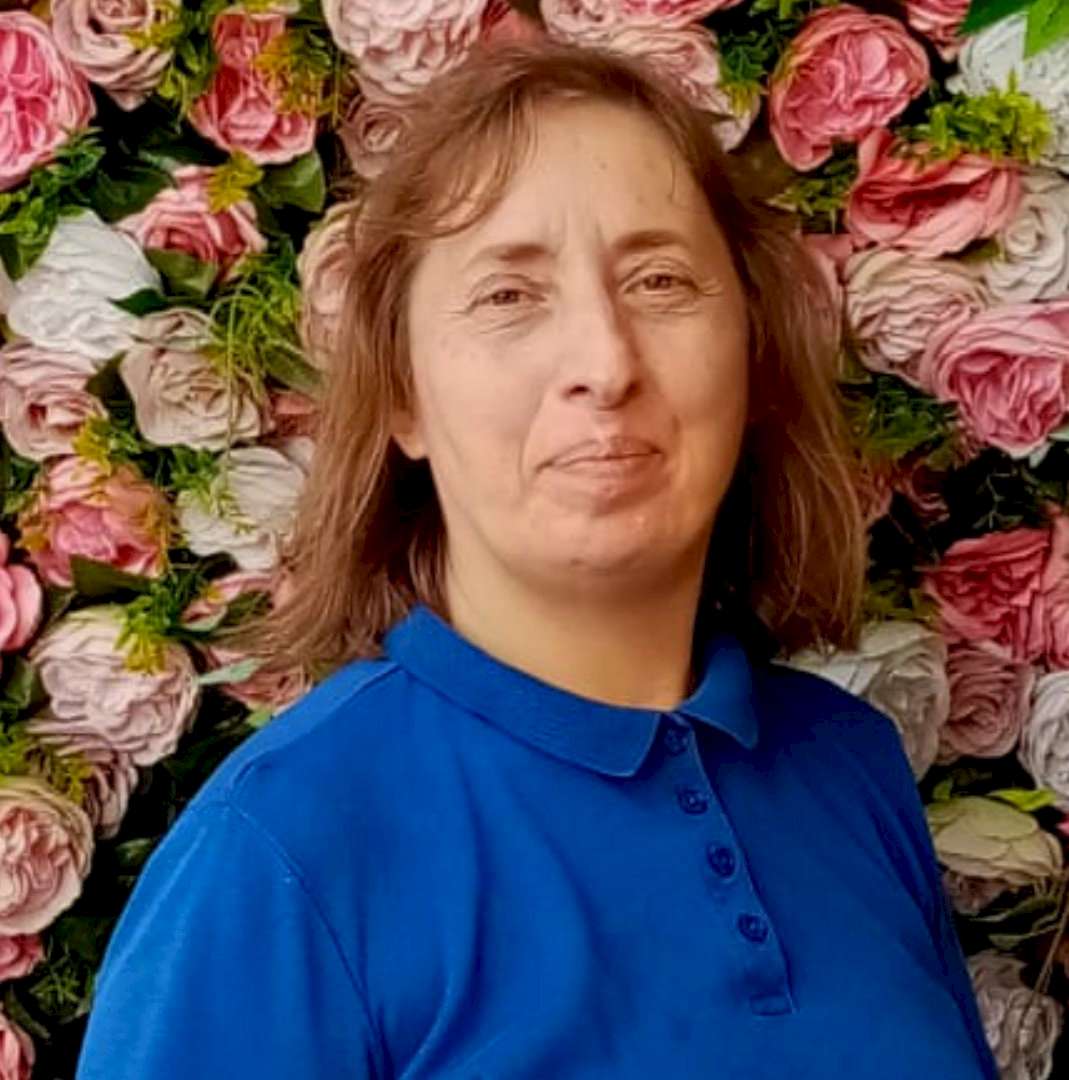
Angela Gibson, London Friend's second longest-standing volunteer
Angela (she/her) is our second longest-standing volunteer who has supported London Friend's groundbreaking LGBTQ+ drug and alcohol service Antidote as a lead volunteer for over two decades! Her immense contributions started since Antidote's inception in 2002 with her involvement in harm reduction interventions at first as a reflexologist and later on as a key worker and auricular acupuncturist. She is currently supporting the Antidote team by being the first point of contact for anyone reaching out for support and information about the range of services provided.
We asked Angela about her role with London Friend and her work to support the LGBTQ+ community in London
I've been with Antidote, part of London Friend since its inception in 2002. Antidote began as the LGBT+ service within a generic Turning Point drug and alcohol service.
In the early days of our service supporting 'club drug users', at a one night a week drop-in alongside interventions I provided reflexology. Later, I upskilled as a key worker and auricular acupuncturist. Things started to change in the late 2000s with our clients taking very different drugs and using them for sex and what is known as 'chemsex'.
Consequently, we pioneered new approaches and with the extended range of services provided now, I'm the lead volunteer for Antidote with a more supervisory/admin role liaising with our service manager Toni Hogg.
What is the change you’d love to see in our community?
That we listen and learn from each other. To ensure that the different identities within our community are truly represented and celebrated.
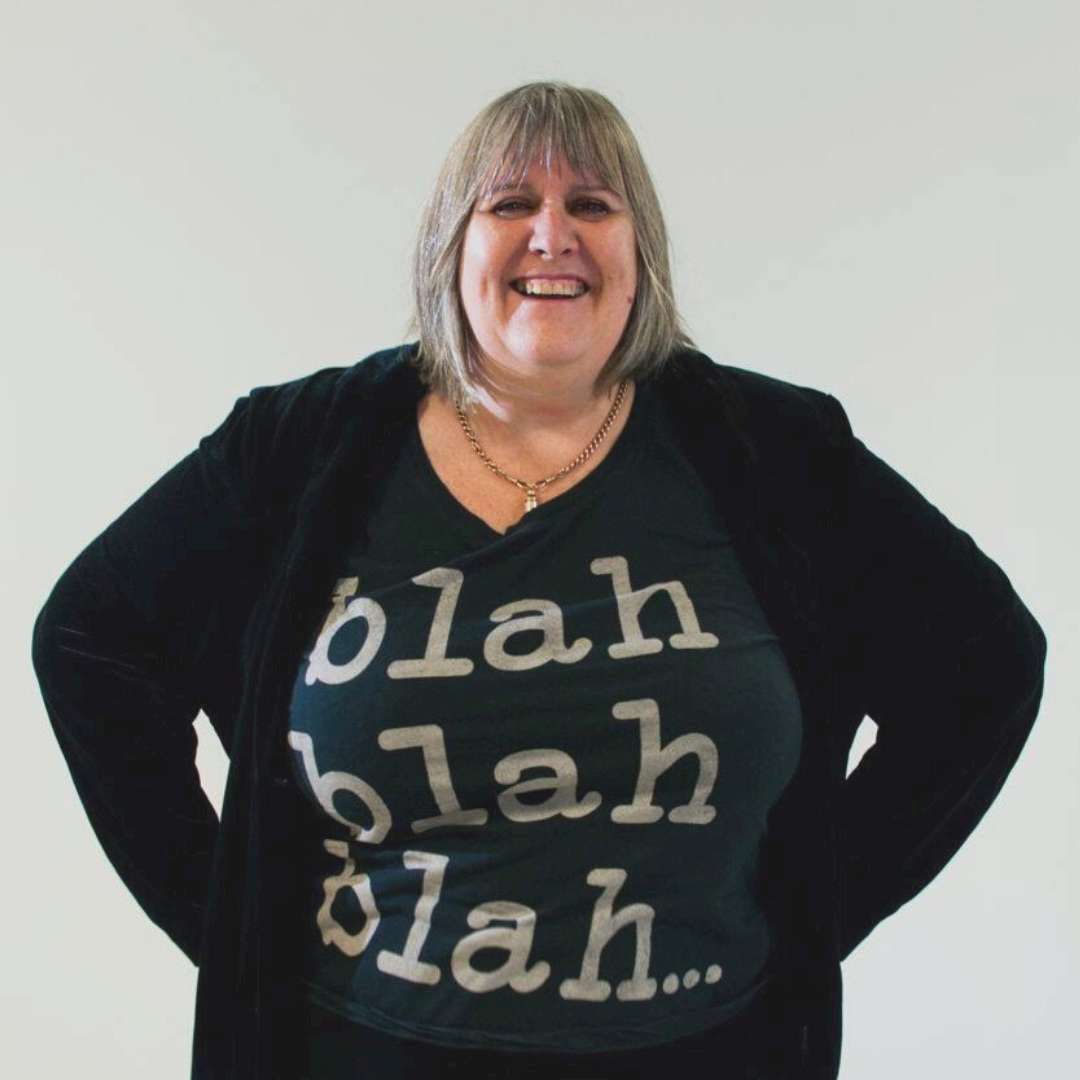
Lisa Power, HIV and queer rights activist and campaigner, Chair of HIV Justice Network, co-founder of Stonewall and Pink Paper, former Policy Director of Terrence Higgins Trust, Queer Britain Trustee
To celebrate Lesbian Visibility Day we're highlighting the outstanding contribution of Stonewall co-founder Lisa Power (she/her) to British sexual health and LGBTQ+ rights.
Lisa is a force of nature to be reckoned with: one of the most prominent activists and campaigners in the LGBTQ+ community over the last 40 years, an outspoken lesbian and role model since the 1970s, a humanitarian who has changed countless lives and worked tirelessly to advance HIV and queer rights and services.
We asked Lisa to talk to us about her work and activism on championing and promoting LGBTQ+ sexual health and queer rights, challenging HIV stigma and amplifying marginalized voices in our communities
I'm a dyke who’s been around for donkeys’ years, as I often say. I came out in the 1970s, came to London and spent 14 years on Switchboard helpline and 17 years with Terrence Higgins Trust, becoming their Policy Director. I was active in the fight against Section 28, going on to help found and launch Stonewall. I was the Secretary General of the International Lesbian & Gay Association and was the first openly queer person to speak for our rights at the UN in New York.
A historian by training, I wrote a very lively oral history of London’s Gay Liberation Front “No Bath But Plenty Of Bubbles” and am now a Trustee of Queer Britain, the London-based LGBTQ museum. I’ve been a historical advisor to and participant in many documentaries and dramas about queer and HIV history, including Its A Sin, Positive, Rebel Dykes and Gateways Grind. I'm still active in HIV and queer rights and services, both in London and Cardiff.
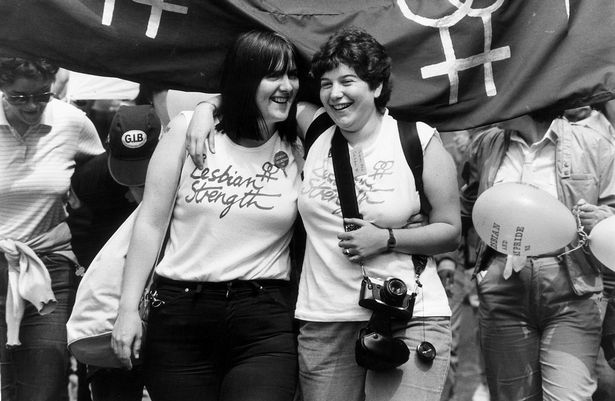
Photo: Lisa Power in 1983 marching with the Gays The Word Lesbian Discussion Group. (Image: Lisa Power)
What is the change you’d love to see in our community?
One change I’d like to see in our community is that some people of my generation need to quit thinking that nothing should ever change and that younger generations are doing it all wrong, because they "don’t understand it". Can you hear yourselves? You sound like the old people you despised when you were young yourself.
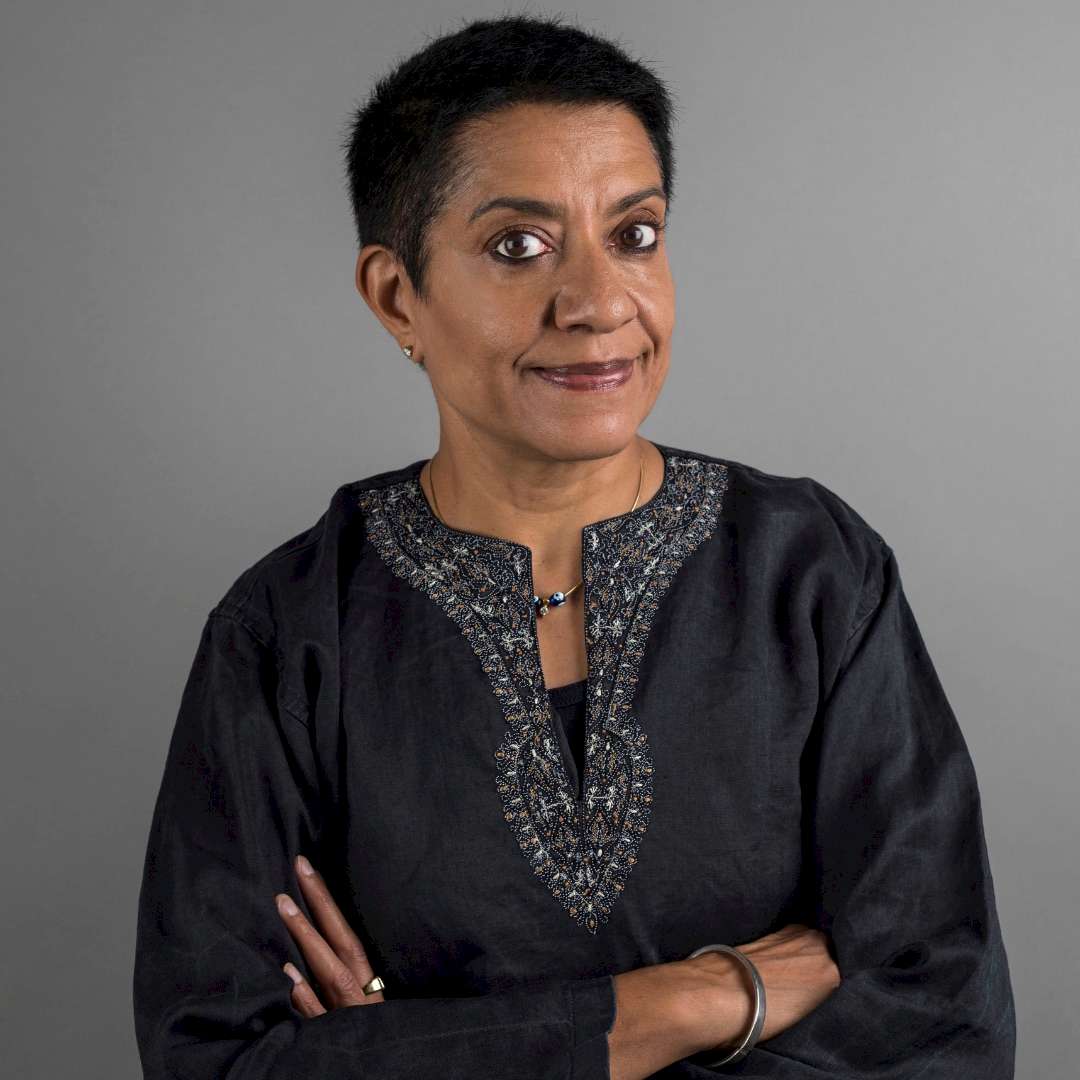
DJ Ritu, co-founder of Club Kali, Globe-trotting DJ, Award-Winning London Disc-Jockey & Trailblazing Broadcaster
DJ Ritu (she/her) began her turntablist career at The London Lesbian & Gay Centre in Farringdon in 1986. This iconic venue attracted 400 customers every Saturday night to its basement ‘disco’ where Ritu played chart music from the 1960’s to current day classics. She took up residency at many women’s clubs like The Drum in Clerkenwell, London Women’s Centre (Holborn) and guested at The Pied Bull, Chats Palace, Emma Peel Fan Club, and numerous LGBT Pride events across the capital.
Ritu’s world music residencies began at Asia and Shakti in 1988, reflecting her off-stage work as a diversity champion for all equalities. In 1991 she was voted Pink Paper DJ Of the Year and later went on to achieve many other awards on numerous circuits.
After joining the BBC in 1992, and forming Outcaste Records in 1994, Ritu began touring the world and performed in over 30 countries, solo or with her bands. She created the UK’s legendary Asian music monthly night, Club Kali, in 1995 where she’s still resident, and then Turkish/Greek/Arabic/African music night, Hoppa in 2000.
Currently, Ritu pops up at special events at Tate Britain, The BFI, Science Museum, Southbank Centre, Wellcome Trust and various international festivals and nightspots, to spin a ‘world set’ or one encompassing her first loves - Disco, Soul, Pop and Motown. Ritu is the voice behind the UK’s definitive global music radio show – A World In London, a panelist for the European World Music Charts, and a member of the Mayor’s London Music Board. In 2015 Ritu was added to the Independent Newspaper’s Rainbow List.
We asked DJ Ritu to share her memories about the South Asian Lesbian and Gay group Shakti's very first gathering at London Friend back in 1988 ...
I certainly recall the very first, and then subsequent Shakti meetings that I attended at London Friend. The initial one was completely life changing. It was the first time I sat in a room with other South Asian LGBTQ+ folks (about 20 of us) and felt like I wasn’t so alone anymore.
From that point onwards, I wanted to immerse myself in the group and be part of the Shakti family all the time. It helped that we were in a space which felt safe (though I’d been to London Friend for other meetings/groups/organisations) and Shivananda Khan – Shakti’s founder – made everyone feel completely welcome.
... that led to her joining its management comittee and setting up the world’s first ever South Asian LGBTQ+ club event
In just a short space of time, we had many more meetings, coffees, and samosas at London Friend, and soon I joined the management committee. We cooked up a fundraising plan by creating the world’s first ever South Asian LGBTQ+ club event, so that we could publish a monthly newsletter, cover support & counselling calls, help members with HIV education and resources, and steer towards providing housing support too.
Hence, Shakti Disco was born at the LLGC (London Lesbian and Gay Centre) in Farringdon, and became the most incredible, culture-connecting, monthly event of its time.
At this point, in 1988, the new LGBTQ world music club, Asia, had also opened at the Paradise Club in Islington, and as one of the resident DJs there, it was an exciting era with steep learning curves. I had to completely diversify my soul, disco, Motown, and Pop sets and begin to incorporate Bollywood, Bhangra, Gidha, Garba, and more…
For this reason, I built up not just an eclectic record collection, but also, a colour-coded set of record boxes, catering for a range of genres and club residencies. By the time Club Kali opened in 1995, playing Bollywood to Hollywood as a DJ, felt like second nature to me.

Photo credit: Nicolas Chinardet
Tell us more about your work as co-founder of Club Kali and what inspired you to create a club night for South Asian queer folks
There were a number of reasons for co-founding Club Kali: As a DJ and eclectic-music lover, I wanted to play somewhere that reflected the diversity of my record collection, and where there was an equally diverse crowd.
In retrospect, I realise that bringing people together from different backgrounds was integral to almost everything that I created, whether that was clubs, radio series’, bands, or CD compilations.
A sense of community and inclusion has always prevailed in my ‘work’, and of course, the desire to create safe spaces for women, people of colour, LGBTQ+ folks, and anyone under-represented, marginalised, or excluded. On a personal level, this was as much about where would I feel safe or comfortable too. I was also on a mission to decolonise dancefloors and provide alternatives for increased cultural exchange in queer clubland – ASIA, the LGBTQ world music club I’d been resident at between 1988 and 1991 was particularly inspirational in this respect. Shakti as well, but the dynamics had changed in the organisation after Shiv moved away to concentrate on the Naz Project, so I had to move on too.

Photo credit: DJ Ritu by Mahaneela Choudhury-Reid - Levis Gal Dem party June 27 2019
How has the queer night and club scene changed since you started as a DJ at Shakti?
Queer nightlife has changed or evolved in numerous ways over the decades. In the 90s we saw a decrease in local authority funding and the rise of a much more ‘commercial’ scene. For example, post-Pride events becoming ticketed Pop star concerts rather than free, community-orientated park gatherings, the growth of privately-owned bars & clubs in Soho, the dominance of house and techno all-nighters and the drugs that came with the music.
Everything changed rapidly and distinctly from the 70s and 80s. By the time we reach 2010, the beginning of the decline of clubland (queer and non-queer + international) and the growth of social media, dating apps, and property developers swallowing up legendary venues like The Black Cap.
At Club Kali specifically, we’ve been part of people’s lives for 27 years and grown up with different generations. It’s been a privilege to do so!
Why do we need to protect our LGBTQ+ venues in London and beyond?
Over the last decade, I’ve heard some people say that LGBTQ+ venues aren’t a necessity any longer because society is much more queer-friendly and fluid now. I firmly disagree with that notion, especially at a time when hate-crimes are on the rise. We still need LGBTQ+ spaces and there will always be a proportion of our ‘community’ that can’t survive without them.
What is the change you’d love to see in our community?
I’d love to see our community accept ‘difference’ more easily, engage in healthy debate, if need be, and not be divided. Together we are stronger.
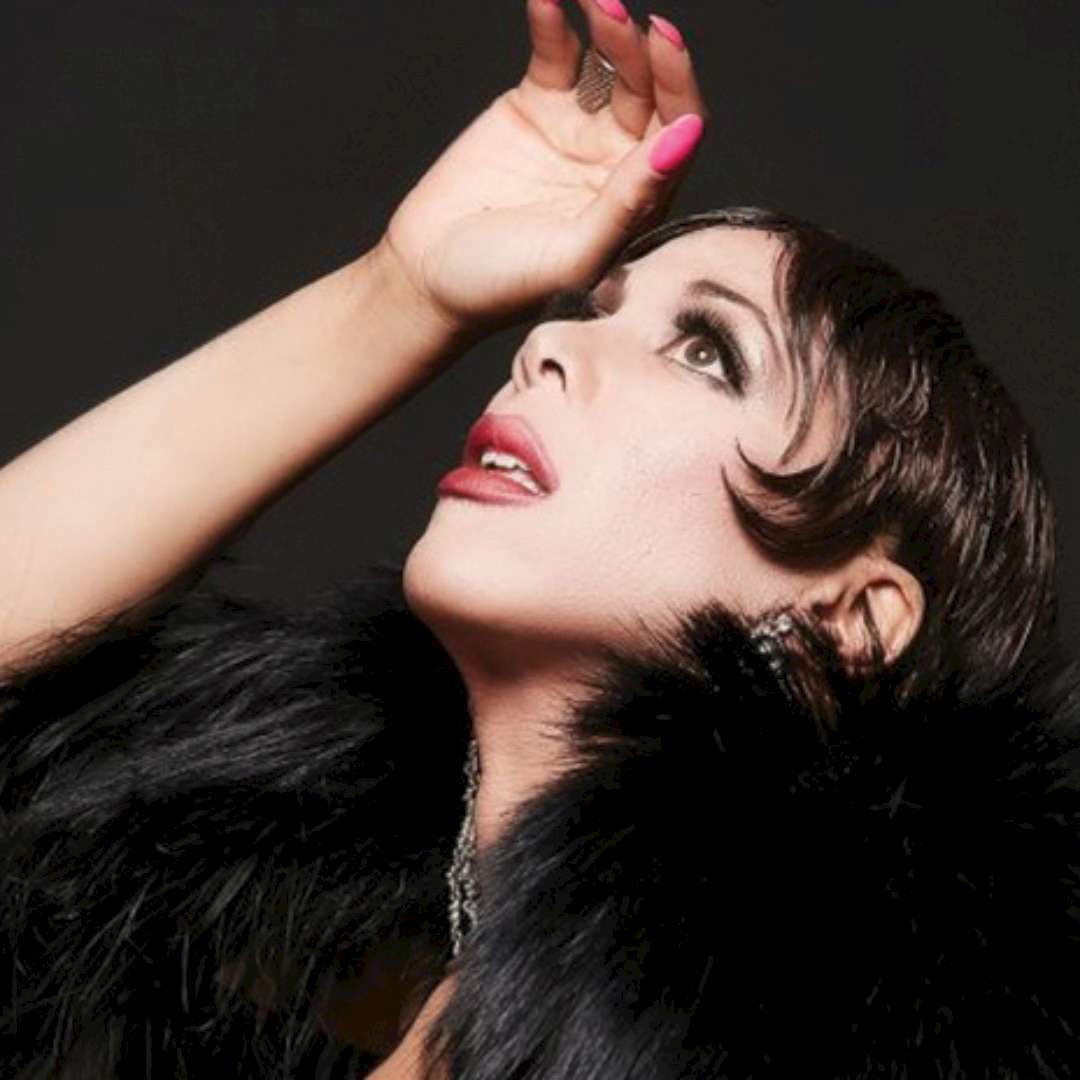
Mzz Kimberley, singer, actress, cabaret performer, fashion icon, LGBTQ+ activist, patron of cliniQ, ambassador for ParaPride, patron of AIDS Memorial UK, director of Mzz Kimberley's Life
Mzz Kimberley (she/her) also known as the fierce and glamourous Kim Tatum is one of the UK’s most fashionable artists, an outstanding actress and cabaret performer, a passionate activist for the LGBTQIA+ community, patron of cliniQ, the health service for the trans and non-binary communities, ambassador for ParaPride supporting the disabled community, patron of AIDS Memorial UK, and director of Mzz Kimberley's Life.
Kim is a regular on the main stage for London Gay Pride and head judge for ‘Pride’s Got Talent’. She is also Brighton Gay Pride and Brighton Trans Pride host.
Her accolades include the ‘10/10’ award at the House of Lords from The Naz Project, presented by Baroness Liz Barker, she has also made the 2020 and 2021 LGBT Power List.
In 2020, Kim was the first trans woman to present the first LGBTQ+ Champion award for the ‘Black British Theatre Awards’ for Sky television.
She founded Mzz Kimberley’s LIFE, a trans, non-binary and intersex led production company to amplify marginalised voices across the entertainment industry and create a platform for the community to evolve, thrive and educate society.
Kim started her career in show business as a student in musical theatre at the City Lit Institute in London and acting at the New York Academy of Theatre Arts under the direction of Philip Nolan. Her exceptional talent as a singer with a powerful voice and broad vocal range led to her astonishing career as a cabaret performer in iconic venues and festivals such as The Glory, The RVT, Club Wotever, Shoreditch House, Barbican, The Cellar Door, Arcola Theatre, Café De Paris, National Theatre, Royal Festival Hall, the Edinburgh festival.
She has also worked and collaborated on many film and TV projects from Cold Feet, EastEnders, Wave Lengths and the new American sitcom; The Finellis.
Kim’s theatre credits include ‘Trans Scripts’ playing Zakia which toured England, Rikki Beedle Blair’s production of 'Summer in London' at the Stratford East theatre‘, the lead in “The Vampires of Sodom “, performed in New York, directed by childhood friend Daniel Both to name a few. Kim returned to the cast of ‘Straight White Men’, at the Southwark Playhouse Theatre in 2021.
In 2021 Kim starred in 2 short films, ‘Child of Polycitus’ directed by Lauren Jones and ‘Still I Thrive’ directed by Campbell X.
In 2022 Kim joined the cast of ‘Transpose" at the Barbican directed by Tabby Lamb and curated by Campbell X.
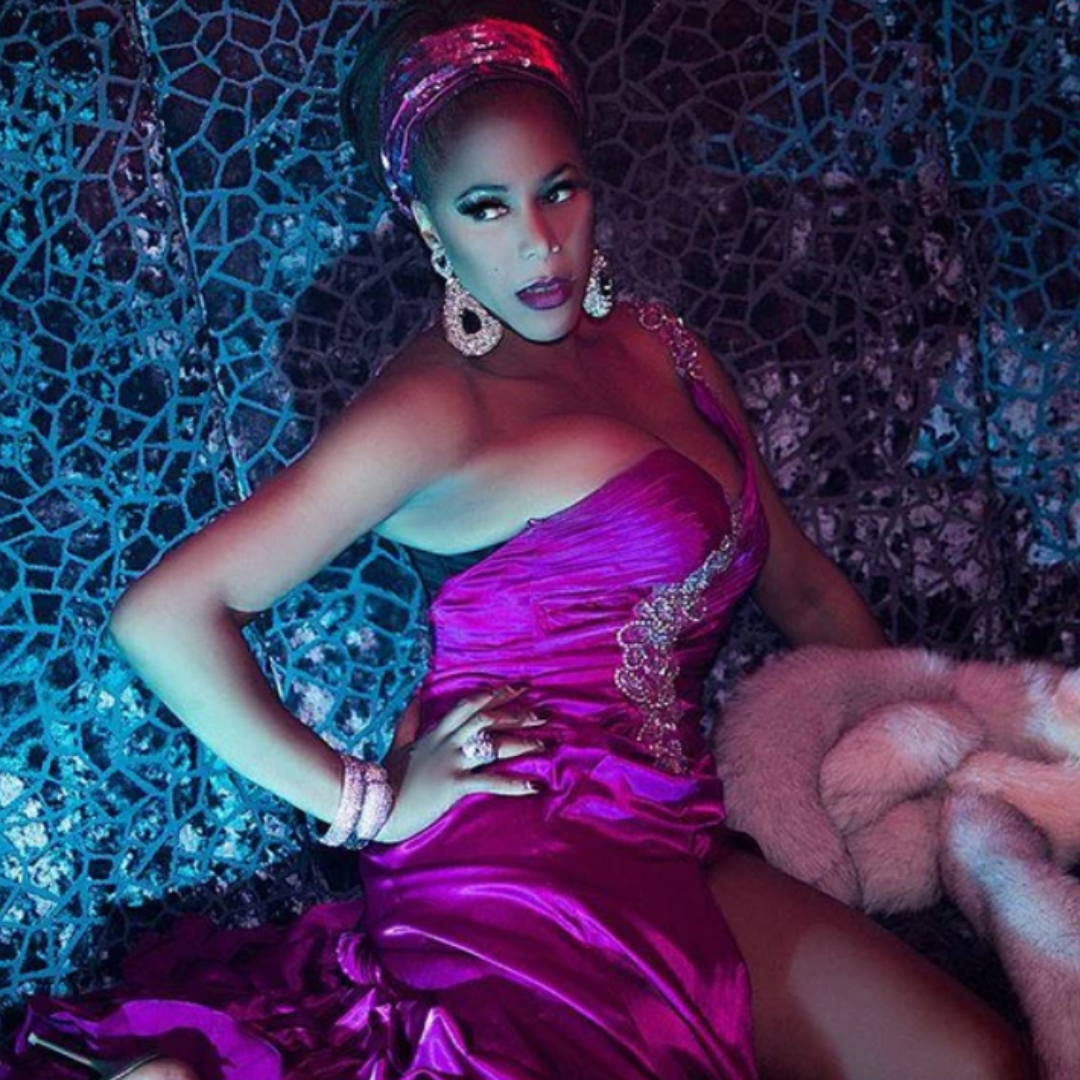
Photo credit: Adam Khadaroo
We asked Mzz Kimberley what inspire her to amplify the voices of trans, non-binary and disabled queer people and how her commitment to supporting marginalized communities informs her work as an artist and performer
What inspires me is being a member of a community that has been oppressed from every angle and not letting those actions deter me from being forced to think I'm not worthy. I created the trans fashion show to send a clear message that, we are here, we are beautiful, and we deserve to live in peace.
I also wanted the cis able-bodied community to realize that we are just your average everyday people who deserve to walk on this planet. Becoming a patron of ParaPride was very important to me as I had already seen discrimination. It is my belief that all marginalized communities should learn to embrace each other so we can support and help each other.
What is the change you’d love to see in our community?
Over the recent years, it has become apparent how divided our community has become. In the 90s when I was coming up our community was more together. Now there's so much hate and false propaganda within the LGBT community which plays straight into the hands of our oppressors. We need more respect for each other. We will never fully agree with each other but we must remember that this is not a green light for hate.
We need to get our community back on track. Conversations need to be had without shouting and dictating to each other. Our rainbow was put in place for all and we must remember that.
We are stronger when we are all together.
One problem I think we face is not knowing each other. We think we do but we don't. We must step out of our bubble and talk to someone with a different prospectus, life experience, and ideologies. We need to learn from each other so we have a better understanding of each other which could be a better future for all. James Baldwin once said, “Not everything that is faced can be changed, but nothing can be changed until it is faced.”
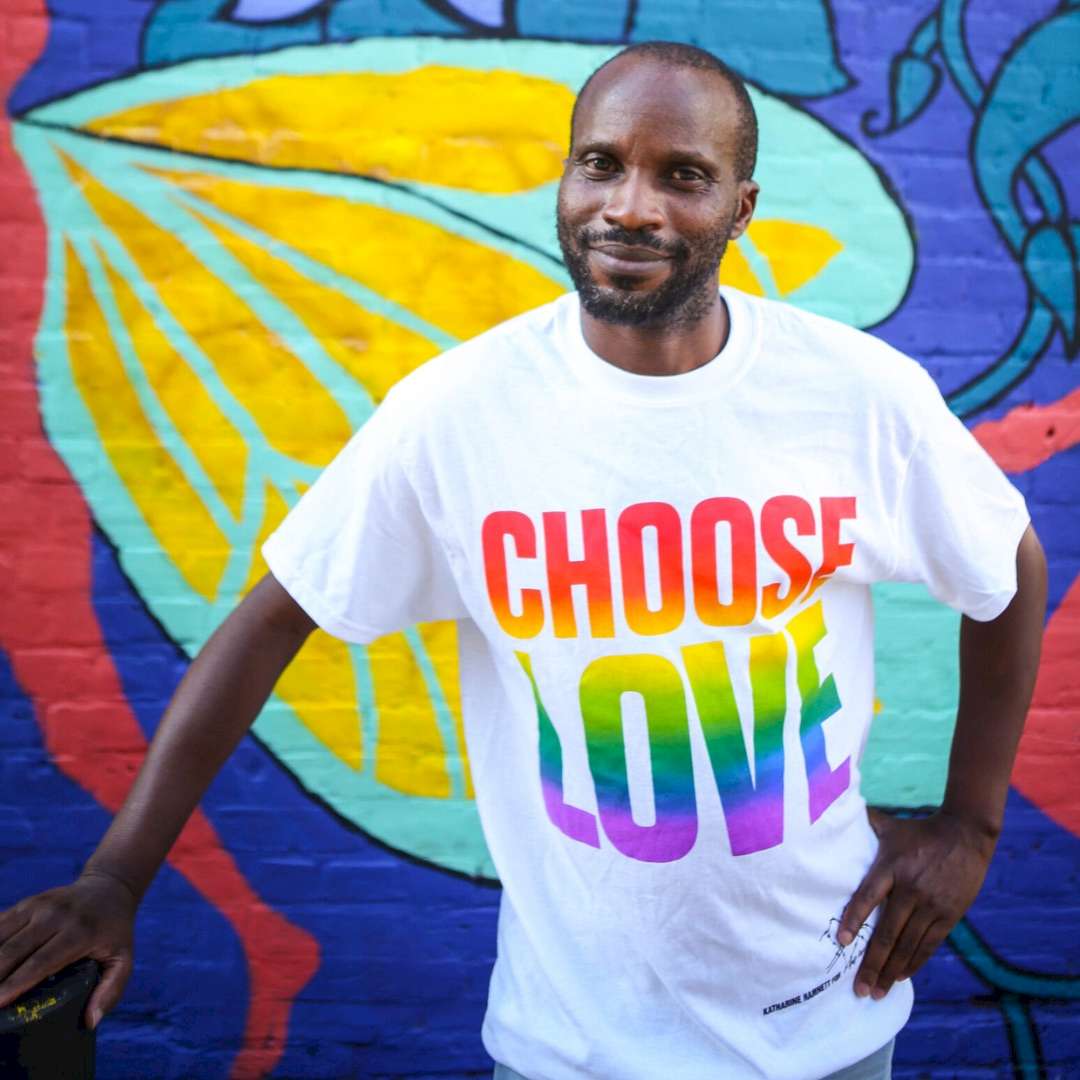
Aloysius Ssali, founder of Say It Loud Club
Aloysius Ssali (he/him), a proud member of the LGBTQ+ community, is the founder and leading member of the Say It Loud Club, a grassroots charity providing practical support and a welcoming environment to LGBTQ+ refugees and asylum seekers in the UK. Aloysius founded the club in 2010, having finally been granted asylum in the UK. As well to running the club, Aloysius used to work with the NHS providing healthcare services to the British public.
We asked Aloysius to share what has inspired and motivated him as the founder of Say It Out Club, and to talk about his commitment and work to providing support and advocacy for LGBTQA+ refugees and asylum seekers in the UK
I understood the disturbing challenges that face LGBTQ+ refugees as they transit from their country of origin to find a secure and safe place in the UK. Having lived through this experience, I knew right away that it was my responsibility to use my experience to help others in similar situations.
I had also realised that there were few role models for gay refugees to relate to, particularly those of Black, Asian, or Minority Ethnic backgrounds. Perhaps it is because of long-standing cultural restraints, but there are few well-known openly gay black men or women in the UK.
I felt my path would have been easier if I had someone I could relate to, and so when I was granted asylum, I decided that I would be proudly gay and support anyone coming to the UK dealing with their sexuality or identity.
Shortly after I had founded the Say It Loud Club, people started coming to me asking for support as they felt inspired and empowered and to many, they felt comfortable talking to someone that they can relate to especially since many of our members are from countries especially Africa and Asia where hostile attitudes towards LGBTQ+ people are prevalent. And for that reason, for these members, SILC gave them a unique opportunity to compare experiences and confront mutual challenges.
As the club continued to grow, however, there were challenges, especially in finding a safe space where our members could feel comfortable talking about their experiences.
How did London Friend support the Say It Loud Club in its early days of becoming the community of LGBTQ+ refugees and asylum seekers?
By this time, I approached London Friend, having met them at a London Pride where we shared space for our stalls. I didn’t know what to expect when I approached London Friend for help, especially since we had struggled to find support and solidarity from various mainstream gay organisations before.
It was clear to me right away that London Friend was ready to listen and spend the time to understand our needs. They opened their doors to our community and allowed us to use their facilities for free. For the first time, we felt part of British society, which enabled us to organise more social and educational events.
In addition to the provision of free facilities, London Friend also provided access to counselling services through their volunteering projects, and this proved quite an important aspect of our project given the difficulties our members faced in trying to access mental health support.
London Friend gave opportunities to our members, to build a bridge and create trust between members and the mainstream, reduce mental health issues (e.g., Depression & Anxiety), open discussion on sexuality to improve self-confidence as well as use London Friend’s capacity in facilitating inclusion in society after asylum. Before this, our members were isolated and suffering from loneliness. After moving into our new home, our members continued to be referred to London Friend’s counselling services as there is already a relationship of trust which is vital to our community.
What is the change you’d love to see in our community?
Marking the 50 years of London Friend reminds us of our duty to protect those who are persecuted and in need of protection including promoting policies that protect LGBTQ+ refugees.
It is even more important to reflect on London Friend’s achievements over the past 50 years especially in welcoming and supporting ethnic minorities. In return, LGBTQ+ refugees have embraced the UK as their home and are now contributing to social and economic developments.
Times have changed since London Friend was founded 50 years ago and although there have been significant achievements for LGBTQ+ people’s rights, the need to campaign for fair policies and the promotion of equality has not. Those needs are still very much relevant now as it was 50 years ago and therefore crucial that London Friend continues to use their capacity and vast experiences in working with LGBTQ+ as well as providing leadership to defend those very principles that have transformed lives.
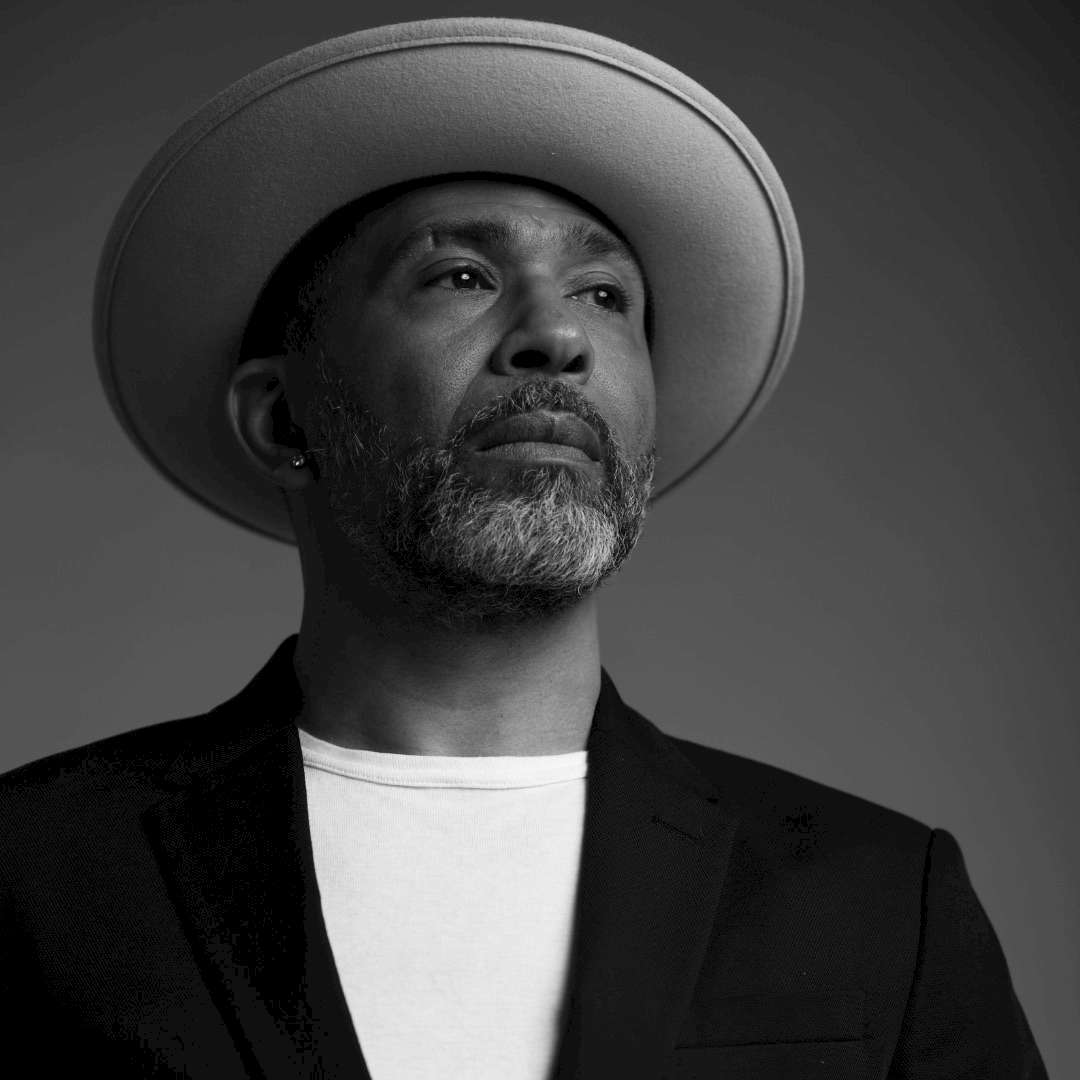
Marc Thompson, activist, health promotion specialist, podcaster, co-founder of Prepster, co-director of The Love Tank CIC
Marc Thompson (he/him) is an activist, health promotion specialist and podcaster. He has been living with HIV since 1986 and has been at the forefront of HIV activism and prevention in the UK for over 30 years.
Marc has worked in several key roles in organisations including the NHS, The Royal Borough of Kensington & Chelsea, Terrence Higgins Trust, Gay Men Fighting Aids and Big Up and Positively UK. He is the co-director of The Love Tank CIC, a community interest community that promotes the health and wellbeing of under-served communities through education, capacity building and research. He is also the co-founder of Prepster.info, a community-based intervention that aims to educate and agitate for PrEP access globally and was the co-founder of Blackout UK, a movement dedicated to working with and building safe spaces for black gay men.
His work has focused on Black and queer communities, sexual health, HIV, and community building with a particular interest in the intersection of race, sexuality, and HIV.
Marc has recently featured in the BBC2 series Saved by a Stranger and The Guardians Outspoken series. He currently co-curates the digital archive ‘Black and Gay, Back in the Day’ documenting Black LGBT life in Britain since the 1970s and hosts the podcast series We Were Always Here, which tells the story of the UK HIV epidemic through unheard voices.
We asked Marc to talk about his 30 years of activism challenging the health inequalities experienced by Black gay men and his work to improve the provision of sexual health services and support for Black gay men, queer men of colour and men who are migrants, still disproportionality affected by HIV
I started working and volunteering in sexual health and HIV prevention a few years after my own HIV diagnosis in 1986. As a young Black gay man, I was motivated by the lack of representation, work and support for Black gay men affected by HIV at the height of the epidemic. I felt that we needed a response that was culturally sensitive and appropriate to meet the very specific needs of men in my community.
In the past five years, we have seen and continue to see huge drops in new HIV infections in the UK. This is great news and a real testimony to the hard work of activists, our health service and great community organisations who have fought long and hard to change the narrative on HIV testing, and raise awareness about U=U (Undetectable=Untransmittable) and make PrEP available on the NHS.
However, 35 years after my own diagnosis, queer men of colour and men who are migrants or whose first language isn’t English are still disproportionality affected by HIV. The COVID pandemic highlighted the health inequalities experienced by communities of colour. Therefore, it should come as no surprise that queer men of colour will also be impacted by these inequities, and that they will expand to HIV and sexual health.
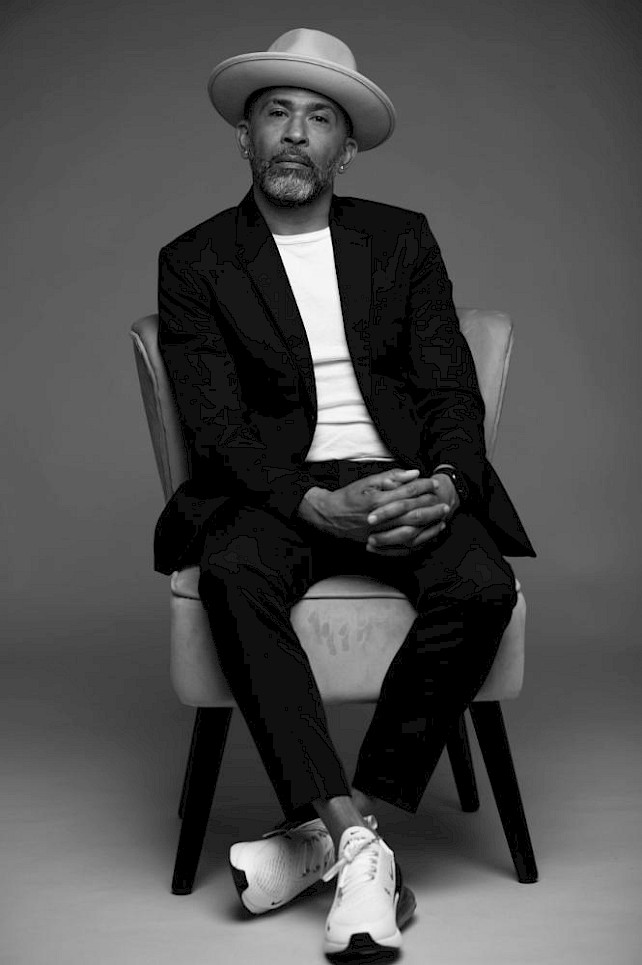
I’m proud of the work we did at PrEPster that contributed to PrEP now being available for free on the NHS. Yet queer men of colour and men whose first language isn’t English still experience barriers and are less likely to be accessing PrEP, which is unacceptable in 2022. I love my work but my activism to tackle the same issues I faced when I was diagnosed is needed now more than ever.
What is the change you’d love to see in our community?
Growing up in a heteronormative world where queer love and desire have been criminalised or seen as a taboo has left many of us with shame about who we love.
The poor sex education we receive at school is inadequate and far from inclusive of the needs of LGBTQ+ people leaving many people without the tools to negotiate and develop healthy relationships. The HIV epidemic has cast a long shadow over our community and continues to leave some of us with a fear of sex and intimacy.
I want our community to be empowered, be sex positive and have all the tools, knowledge and skills to enable us to have the best sex with the least harm to ourselves and others.
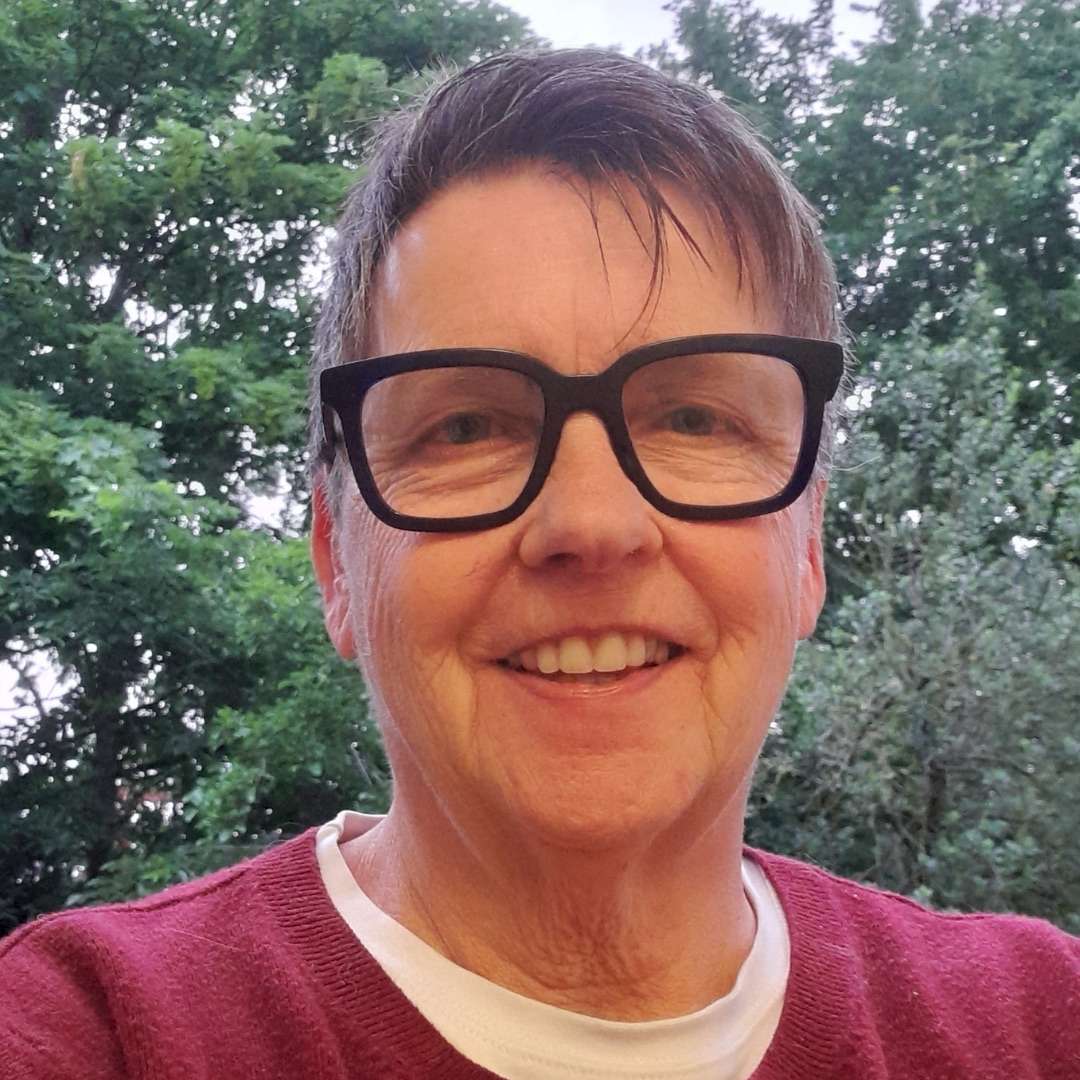
Rita Mcloughlin, former Volunteer Coordinator at London Friend
To mark Volunteers' Week 2022 (1-7 June), an annual event in recognition of volunteers' contributions to our communities, we're celebrating the work of our former Volunteer Coordinator Rita McLoughlin. Rita (she/her) has recently retired after 12 years of outstanding and inspiring work at London Friend. During her service with our volunteer-led charity, she has contributed immensely to the recruitment, development, and engagement of our 100-strong network of committed volunteers which led to London Friend's receiving The Queen's Award for Voluntary Service in 2016. The Queen’s Award for Voluntary Service is the highest award given to local volunteer groups across the UK to recognise outstanding work in their communities and is the equivalent of the MBE for voluntary groups.
We asked Rita about her role with London Friend and her work to support the LGBTQ+ community in London
I worked for London Friend for 12 years as the Volunteer Coordinator, before retiring in 2021. London Friend has always been a support to London’s LGBTQ+ communities, but with the merging of Antidote (our Drug and Alcohol service) and the further development of the counselling service, we saw the organisation develop into the force it is today. Over the 50-year life of the charity, hundreds of LGBTQ volunteers have given their time and commitment to the organisation delivering services across London Friend. When I started at London Friend, only 23 volunteers were actively contributing to the services. When I left, it was close to 100. I feel privileged over my years as a Volunteer Coordinator, recruiting and organising (some would say bossing), to have met and learnt from so many amazing people. One of the most rewarding aspects of my work was meeting Londoners who had found London Friend in their own time of need – when they were coming out, wanting to explore their sexuality or gender or to seek support for their mental health or addictions – and who wanted to give back to the communities and the organisation who supported them.
What is the change you’d love to see in our community?
What would I wish for all LGBTQ communities in the future? Coming together to continue to campaign together for equality for all.
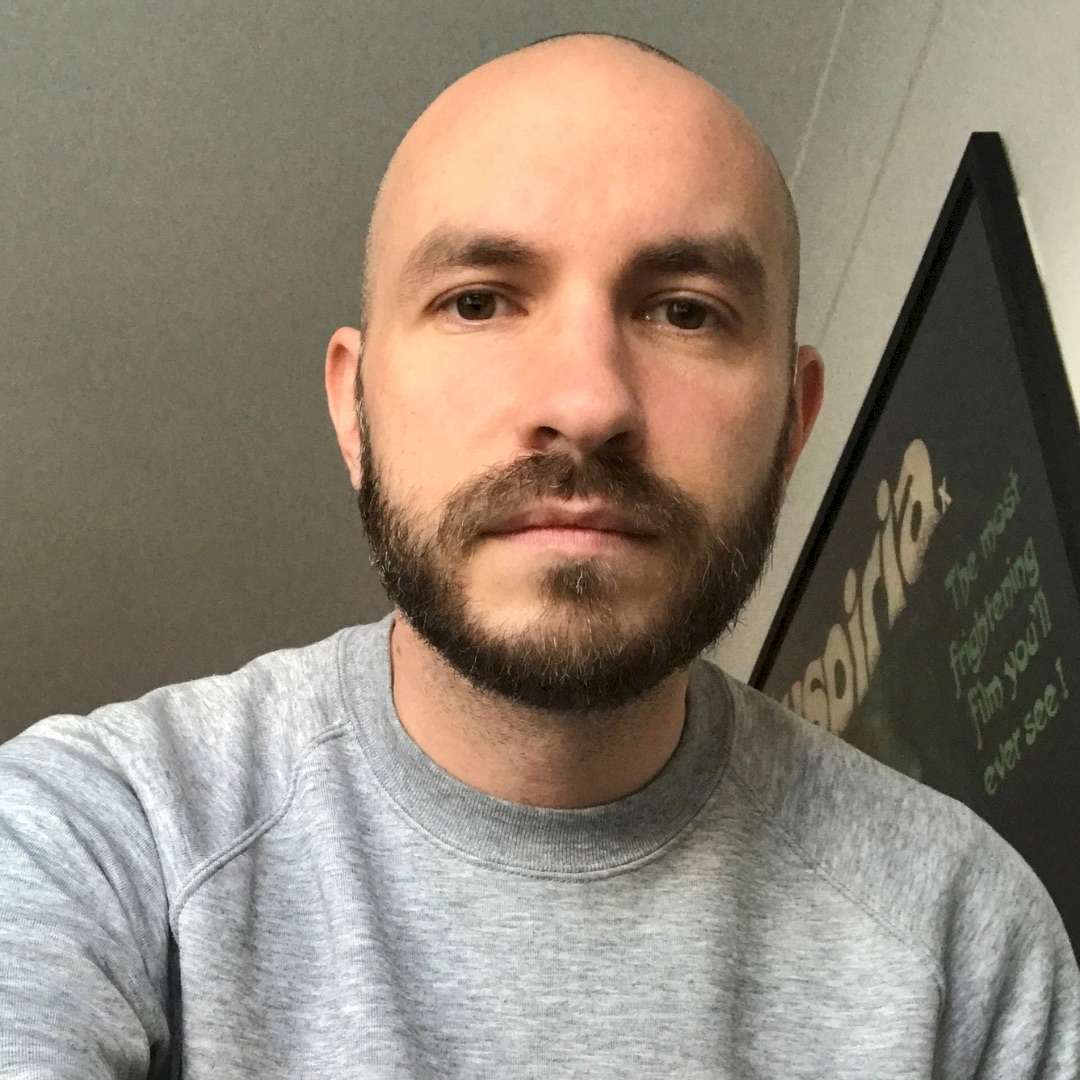
Michael Blyth, Senior Film Programmer for the BFI London Film Festival and BFI Flare: London LGBTQ+ Film Festival
Michael Blyth (he/him) is a film programmer and writer who works at the BFI (British Film Institute). As Senior Programmer for BFI Festivals, Michael leads the curatorial team for BFI Flare: London LGBTQIA+ Film Festival, the largest queer film event in the UK, which takes place over 12 days each Spring.
Formerly known as the London Lesbian and Gay Film Festival, BFI Flare has been running for 36 years, showcasing the best in contemporary queer cinema from across the globe, in addition to a selection of archive screenings, talks and discussion events, and club nights.
Since 2015, BFI Flare has collaborated with the British Council on Five Films For Freedom, a global initiative which makes 5 short films available for free online for the duration of the festival. Over the 8 years in which the scheme has been running, over 17 million people have watched the films in over 200 countries and principalities, including many parts of the world where access to LGBTQIA+ content is heavily restricted or where homosexuality is criminalised, and in some cases, punishable by the death penalty.
Another major scheme for BFI Flare is its annual mentorship programme, in partnership with BAFTA and BFI NETWORK, which showcases and supports the next generation of LGBTQIA+ filmmakers working across film and television, with year-round mentoring, career coaching and development opportunities. Since its pilot programme in 2015, the programme has supported 48 LGBTQIA+ filmmakers working towards their debut feature length project or major broadcast/online commission. The programme aims to strengthen professional networks, create new pathways to the industry and offer a space for discussion around the opportunities and challenges facing LGBTQIA+ filmmakers, both in the UK and the global marketplace.
We asked Michael about his work as a Senior Film Programmer for BFI Flare: London LGBTQ+ Film Festival and the importance of representation on screen.
I’ve been obsessed with film for as long as I can remember, and in my teens, queer cinema played such an important part in helping me understand my sexuality at a time when I so often felt isolated and afraid.
I’ll never forget watching Gregg Araki’s Totally F***ed Up when I was around 15. It was the antithesis of all the teen films I had seen before. I was faced with young, queer characters who were angry, depressed, and defiant – they felt like me. I think that was the first time I truly realised the importance of seeing yourself reflected on screen and all the ways in which that can be such a positive and cathartic experience for queer people.
What is the change you’d love to see in our community?
Although we have seen more queer content hitting screens over the past few years, we still need to see more difference and diversity in the stories that are being told. Gay men continue to dominate in terms of on-screen representation, and we need more lesbian stories, more films that explore bisexual, asexual and fluid identities, and more work which centres on QTIBPOC identities.
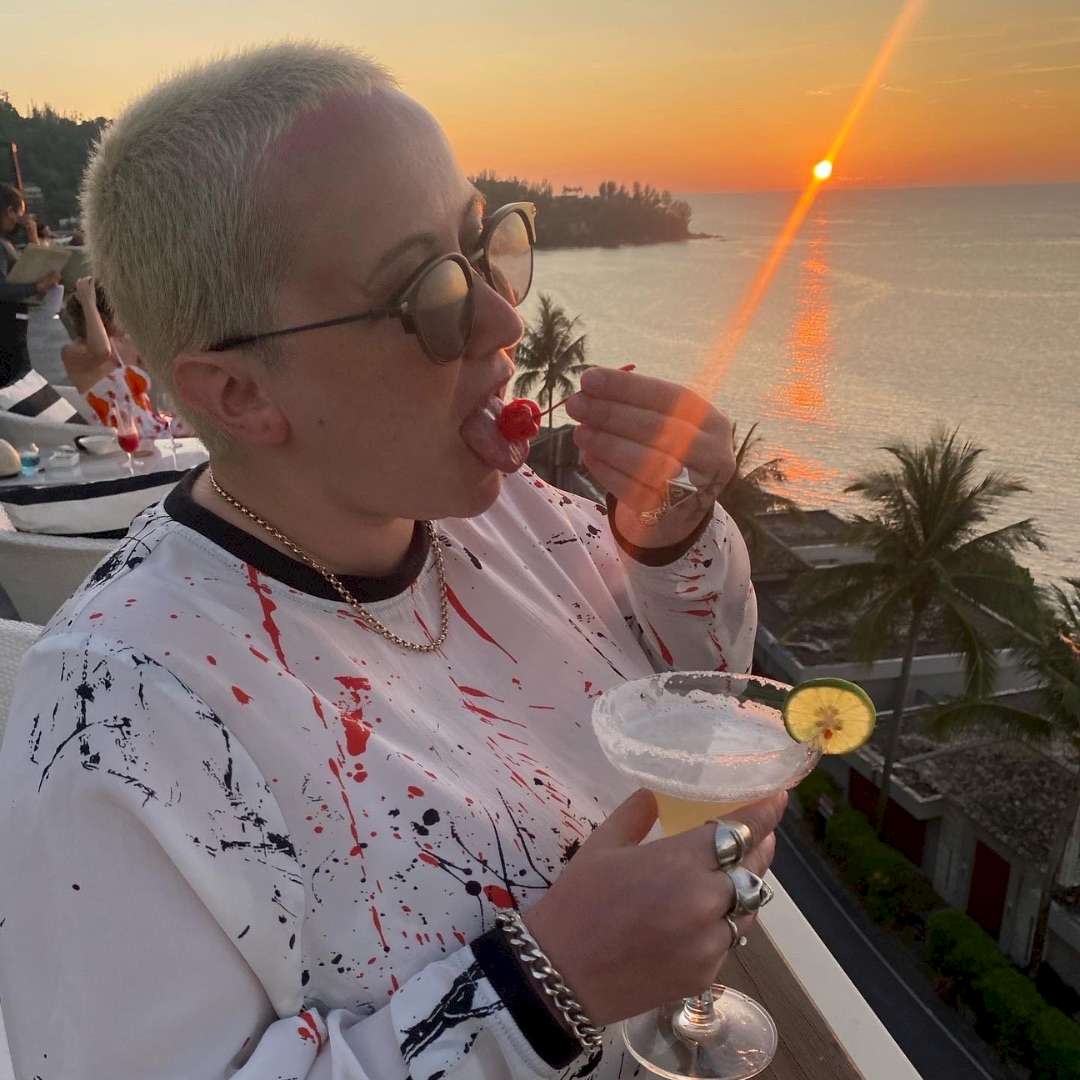
Carla Ecola, queer homelessness activist, founder/director of the Outside Project, London's LGBTIQ+ Community Centre, Shelter and Domestic Abuse Refuge
Carla Ecola (they/them) is the founding Director of The Outside Project, an LGBTIQ+ Centre based in Borough, London. The Outside Project opened the UK’s first LGBTIQ+ Shelter in 2017. They also founded the UK’s first LGBTIQ+ Domestic Abuse Refuge - STAR Refuge - during the COVID19 pandemic.
The Outside Project is an LGBTIQ+ Community Shelter, Centre and Domestic Abuse Refuge in response to those within the LGBTIQ+ community who feel endangered, who are homeless, ‘hidden’ homeless and feel that they are on the outside of services due to historical and present prejudice in society and in their homes.
The project was inspired by Carla's own experience of homelessness in London for several years during their twenties and seeing its impact on the community as a homelessness outreach worker in their mid-20s. Setting up Britain's first Shelter for LGBTQ+ people has been done in consultation with a range of organisations in the sector such as Stonewall Housing, Housing Justice, and Homeless Link, along with Carla's colleagues who worked in the sector.
We asked Carla to talk about their inspirational work as a queer homelessness activist and campaigner for safe queer spaces provision
The Outside Project is a mix of different spaces that would’ve helped me and my own queer family at different stages of our lives had they existed. I re-imagine life visiting Cafe Queero, living at the Shelter, visiting our LGBTIQ+ Centre for dinner, making positive friendships, joining the sports, creative or support groups and then making my own space with the help of Queer Leaders Forum. We started this project when I was 30 years old, so it is definitely growing with me. People walk into The Outside Project, check what’s in the fridge and take their shoes off. I love that. I’m really pleased to see people finding their own queer family and having a more positive journey. I love being a part of this growing community and I’m excited about our future adventures.
What is the change you’d love to see in our community?
Radical kindness towards outsiders. How do we have this mantra in our community of ‘live your authentic life’ and then treat people so wildly different? Strength to set boundaries, challenge behaviour and look out for each other in order to make our community a safer space.
Keep safe
- If you are experiencing domestic abuse contact the National LGBTIQ+ Helpline (Galop) on 0800 999 5428 or email help@galop.org.uk. See www.galop.org.uk
- London Friend provides free specialist counselling to LGBTQ+ people who have experienced domestic abuse. Email Jaye, our domestic abuse counsellor, for more information or to sign yourself up for Domestic Abuse Counselling.
- If you are homeless because of domestic abuse, then go directly to Stonewall Housing www.stonewallhousing.org
- Star Refuge, opened by the Outside Project, was a covid project open for 18 months - they are currently looking for a new permanent building to reopen this project. Contact Maari@lgbtiqoutside.org for more information.
- Find out what sports, support and creative groups are happening each week at The Outside Project LGBTIQ+ Centre based in Borough www.lgbtiqoutside.org/Centre
Other useful links:
Links to affordable hotel / backpackers: London Hostel Association OYO Hotels
- Streetlink : www.streetlink.org.uk
- Next Meal : www.nextmeal.co.uk
- The Pavement : www.thepavement.org.uk
- Women’s Aid : www.womensaid.org.uk
- Refuge : www.refuge.org.uk
- Mankind Initiative : www.new.mankind.org.uk
- LGBT Switchboard : www.switchboard.lgbt or 03003300630
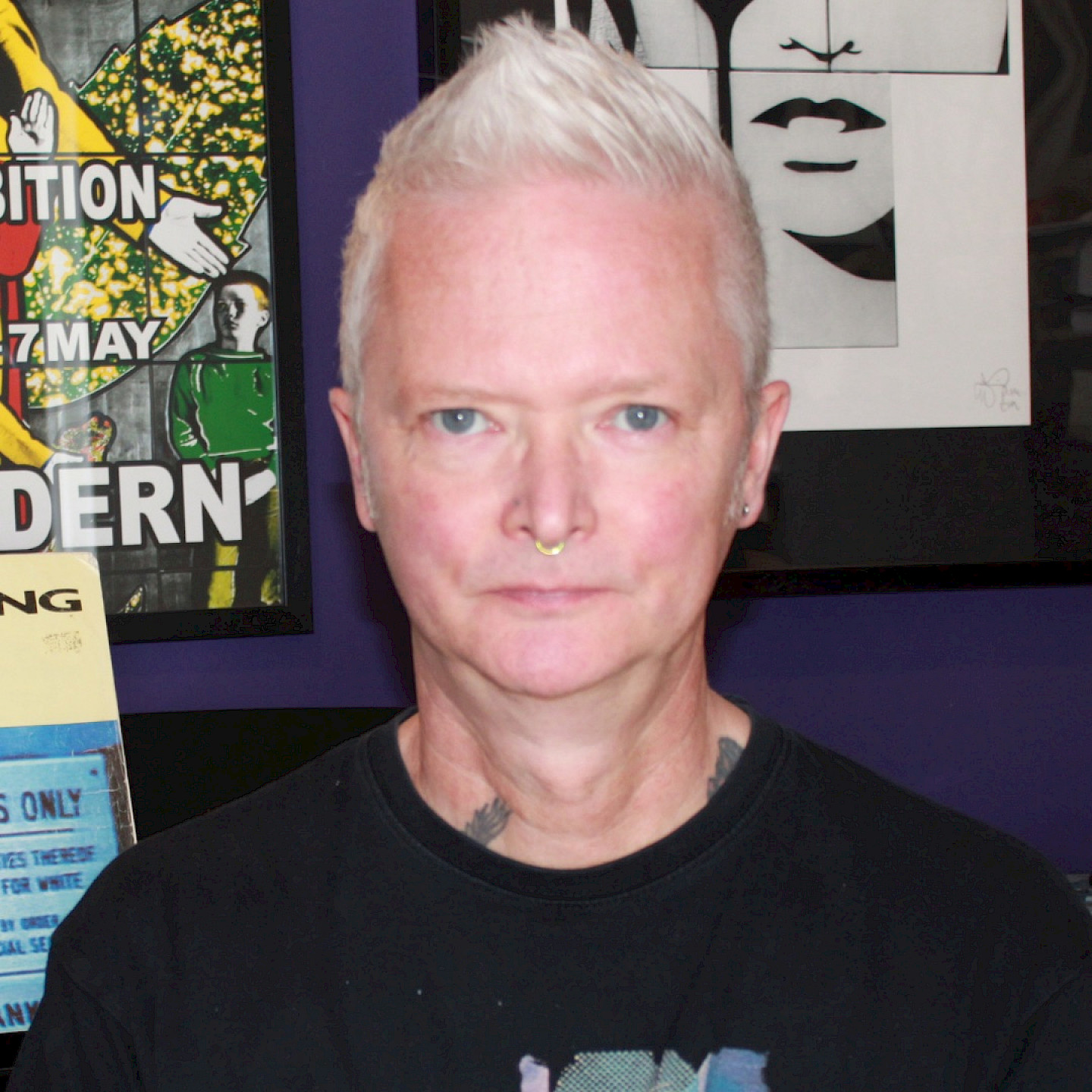
John Yates-Harold, former volunteer at London Friend, UK Primary Schools Diversity Trainer at Empowering Diversity, Hate Crime Advocate
John Yates-Harold (he/him) is a former London Friend's volunteer, a progressive educator and independent consultant specialising in effectively challenging prejudice-based bullying and a hate crime advocate and campaigner.
John worked closely with Stonewall on their “Different Families” resources and then on their “FREE” DVD for which he wrote lesson plans.
Ofsted recognised John’s work at Jenny Hammond as an example of good practice in their report, “Wouldn’t It Be Boring If We Were All The Same?”
In 2006 he was promoted to Deputy Head Teacher at The Jenny Hammond Primary School. He was among 16 school practitioners from across the country who took part in the “No Outsiders” project. This 28-month project sought to effectively challenge homophobia in primary schools through age-appropriate picture books.
John was honoured to be included on the inaugural World Pride Power List in 2012 being described as a “progressive educator”. He has delivered training at Stonewall’s Education Conferences; NUT/NASUWT Conferences; to PGCE students at the University of East London; and several primary schools in London.
Aside from teaching, John co-founded the London Gay Men’s Chorus (now ‘Choir’) in 1990. He edited and contributed to a book of poetry: “How Can You Write A Poem When You’re Dying of AIDS?” (publ. Cassell 1993). He composed a requiem mass, “Undying Heart: A Requiem for AIDS” which was performed at the Free Trade Hall in Manchester in 1993. He has written 2 ½ operas for children including “The Story of the Eldest Princess” as well as countless songs in English, German and Spanish.
John recently left London for the country and now lives in Derbyshire, with his husband and two children. He is looking forward to sharing his experiences in effectively challenging homophobia with schools, universities and other settings.
We asked John to share his story and experience of joining London Friend as a volunteer at the Thursday night men’s group, “Junction” in the 90s...
I came to London Friend as a broken man. I had endured an intense, violent, abusive relationship for more than 2 years and, when my ex had rearranged my face, I finally fled. I packed whatever I could into a friend’s car and moved out of London to Watford to live with someone I worked with.
I found London Friend through the listings in ‘Gay Times’ and decided I needed to heal by being with my community. I decided to volunteer and attended an initial meeting and then several training days. I found my tribe. I found where I belonged and threw myself into volunteering at the Thursday night men’s group, “Junction”. I quickly made friends with other volunteers and enjoyed working with them and the variety of service users who came along hoping to make friends over a cuppa and biscuit. I really enjoyed the mix of the social side as much as the interesting topics we discussed in the back room. I had been at the group for a few months and had begun to feel like my old self again. The group really helped me to build back my self-esteem and self-confidence.
... that led to the fateful evening of meeting his lifelong partner of 32 years Steve

Photo: John with his husband Steve at London Friend premises, 86 Caledonian Road, 4th August 2021 (Image: John Yates-Harold)
One night, I happened to open the door to a new service user; made him a cup of tea; and then stood with him for the whole night telling him my life story. The following week he came back, and I apologised for stopping him from socialising with others and attending the back-room discussion. We chatted again briefly and, again, a week later he came back. This was Steve and I felt like I’d known him for ages.
As volunteers, we needed to maintain proper boundaries between ourselves and service users. I had a serious conversation with the group lead as I realised, I was starting to have feelings for this new service user. He listened and we discussed with London Friend how this situation could be properly managed. With permission, we began to explore our relationship outside of the organisation.
He called me and we arranged to go out on a date. A few weeks passed, and we went on a few more dates before he came over to Watford for dinner. The next morning, I asked him if we might continue seeing each other and perhaps start a proper relationship. That was August 4th, 1990, and we’ve been together ever since. Steve and I celebrated our Civil Partnership on August 4th, 2006, and we extended our family by adopting our two children in 2014.
John, tell us more about the momentous year of co-founding the iconic London Gay Men’s Choir
1990 was a massively important year. Not only had I left my abusive ex; found London Friend; found the love of my life; but also, this was the year I co-founded the London Gay Men’s Choir with another group member, Louis Loizou. A few of us met at the group and rehearsed in the basement of London Friend. We performed our very first concert on the ground floor at Christmas 1990 singing Christmas Carols accompanied by Jack on the accordion.
I was already working as a Music Teacher at a primary school down the road in King’s Cross, so I became the Musical Director of the choir while Louis became the conductor. Very quickly, the choir grew in numbers with more people joining from “Junction” as well as friends and acquaintances. We moved to rehearsal spaces at the Holborn Centre for the Performing Arts and then as the choir grew even further, we moved to a more permanent home in the basement of Finsbury Library.
In 1992, I began writing my requiem mass, “Undying Heart: A Requiem for AIDS” specifically for the choir. This was performed at the Free Trade Hall in Manchester on October 30th, 1993, with performers including Peter Tatchell, Jimmi Harkishin, Gordon Warnecke and Georgina Hale reading poetry. I had set to music in between the movements of the mass. It was a successful evening and I have a wonderful live recording of the event which I treasure.
That week in October was momentous. Not only did we perform my requiem but, the week before, on Sunday 24th of October, the choir sang “Go West” with the Pet Shop Boys on stage at the London Palladium as part of The Equality Show, a fundraising event in aid of a new charity that was being set up which you may have heard of: Stonewall, campaigning to equalize the age of consent for gay and heterosexual people in Britain.
... followed by years of inspirational work and immense contribution to the LGBTQ+ community in London and beyond as a 'progressive educator' and a former hate crime advocate for Derbyshire LGBT+ (former Derby Friend)
My work with the choir came to an end in the summer of 1994. I devoted my time to writing and performing mainly in fundraising concerts at London Lighthouse. My most recent musical project has been a collection of songs in Spanish which I wrote, lyrics and music. This is available to listen to via Spotify. Type my full name in and search for “Diez Canciones Españolas”.
In more recent years, my classroom teaching career blossomed into Deputy Headship, and I began working more intensively in the area of equality, diversity and inclusion initiatives through the original “No Outsiders” project.
After we adopted our two children in 2014, we decided to leave London. We now live in Derbyshire and ironically, my life has come full circle as I have worked for Derbyshire LGBT+ from 2018-2022 (formerly Derby Friend). I run groups for the over 50s which is very reminiscent of the volunteer work I did at London Friend, and I also occasionally run our Thursday evening men’s group, “Reach Out”. I deliver training in schools with my resource, “Kings, Princesses, Ducks and Penguins”, which uses picture books and short novels to explore gender and sexuality. Recently, I also launched our accreditation scheme, the “Rainbow Partnership”.
Had I not found London Friend when I was at the lowest point of my life, I can honestly say that I wouldn’t be where I am today: I have the husband I always dreamed of; the children I always hoped for, and a job I love more than any other I’ve ever had.
What is the change you’d love to see in our community?
It’s not so much the change in our community but the way that others treat our community. We’re still discriminated against in goods and services; hate crime is still a massive issue that affects us all; and, while we have many more Pride events than ever before, for the other 364 days a year, the general lived experience of many in our community is still horrendous.
I don’t want equality, I want equity. I want the needs of our community understood by those who have the power to effect change for the good. I’ve fought all my life for acceptance, for better treatment by the law. We still need to stand strong as a community, standing shoulder to shoulder. Our fight is not over.
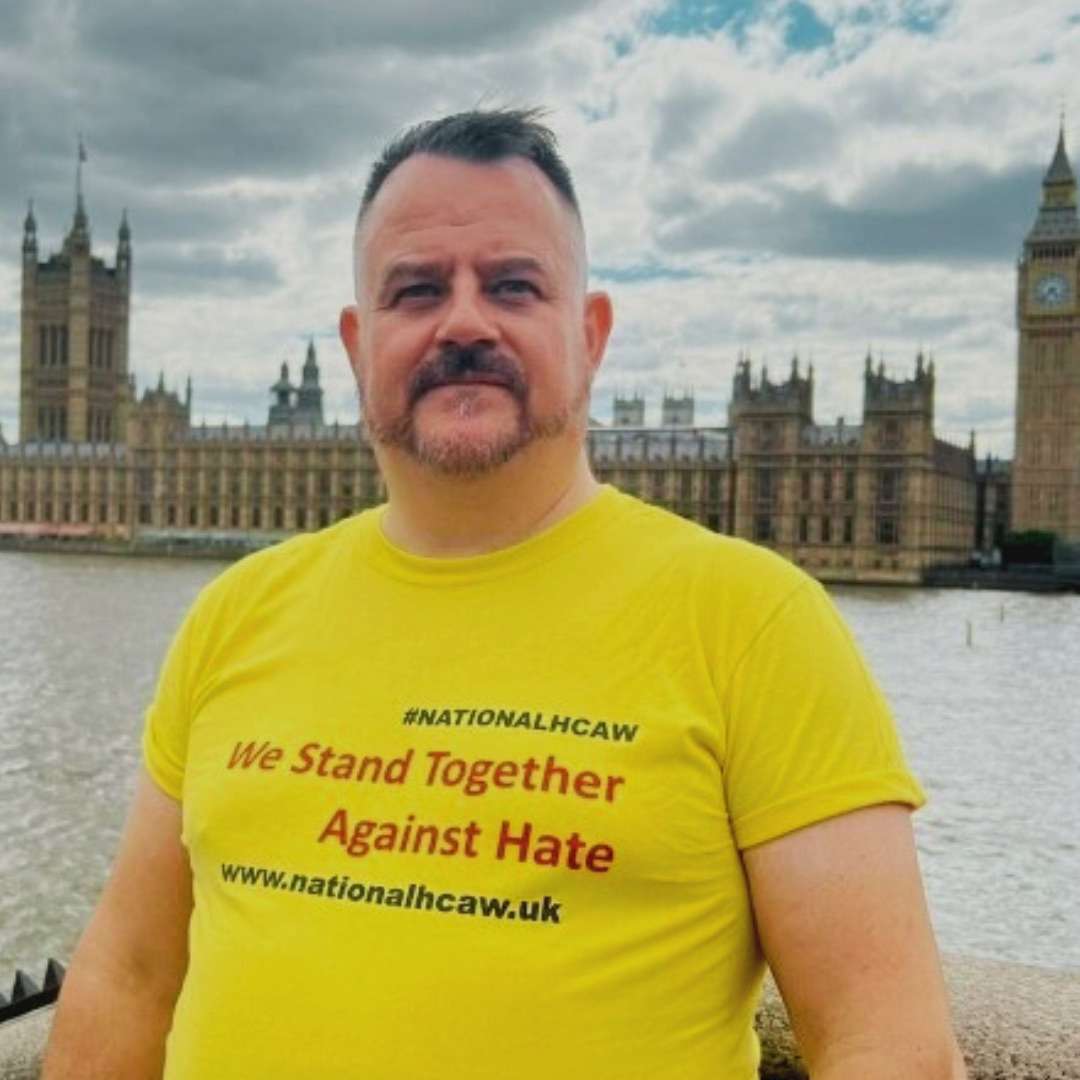
Mark Healey, CEO of anti-hate crime charity 17-24-30 National Hate Crime Awareness Week
Mark (he/him) is a hate crime campaigner, CEO of the remembrance and hate crime prevention charity ‘17-24-30 No to Hate Crime Campaign’ and the founder of National Hate Crime Awareness Week (8-15 October 2022) challenging prejudice and spreading a message of H.O.P.E. HOPE stands for Hate Crime Awareness, Operational Response to Hate Crime, Prevention of Hate Crime and Empowering Communities to Report Hate Crime and Access Victim Support Services.
Mark was awarded the Edwin Shuker Upstander Award at the first National Hate Crime Awards for countering hate, intolerance and prejudice and making a positive difference in communities. The award ceremony was held in central London on the 17th of November 2016.
He also received the Points of Light award in June 2015 for his immense contributions and voluntary work in tackling hate crime in the community and has been included in the Independent On Sunday's Pink List 2012, after he carried the Olympic flame during the 2012 Games torch relay back in July the same year.
We asked Mark to talk about his inspirational work as a hate crime campaigner, and his motivation to raise awareness, tackle hate crimes and prejudice and create a safe space for all in the LGBTQ+ communities.
I’ve been a victim and a survivor of homophobic hate crime and sexual abuse, so I know first-hand the horrific impact that it has on people’s lives. This is why I am passionate about doing what I can to prevent hate crime and abuse, support the development of an inclusive LGBT+ community and signpost people to the advice and support services including London Friend, that they need.
I founded 17-24-30 in March 2009 to mark the 10th anniversary of the London Nail Bomb attacks on Brixton, Brick Lane, and Soho – to ensure that the April Acts of Remembrance mark these anniversaries continue.
It is important to remember those we have lost, stand in solidarity with those who need our ongoing support and educate future generations in the hope that we can prevent these attacks from happening again.
In October 2009, after the death of Ian Baynham following a homophobic attack in Trafalgar Square, I and others organised the first London Vigil against Hate Crime which inspired a number of vigils around the world. In 2012 these vigils evolved into what we now know as National Hate Crime Awareness Week – a national week of action to encourage the authorities (Government, Police and Councils), key partners and communities affected by hate crime to work together to tackle local hate and prejudice across the UK.
As Ian’s mum said after the first London Vigil against Hate Crime attended by over 10,000 people – “At least people cared about my son” – that is what my work is about, ensuring that people know that we care, and we are working to bring our communities together to ensure that there is no place for hate – creating a safe place for all.
What is the change you’d like to see in our community?
The change I would like to see, is an end to hate crime but whilst we work towards that goal, I’d like to see more LGBT+ people and our allies volunteering with us to help build a strong and vibrant anti-hate/inclusive pro-love network across our community so that we can ensure our community’s safety at the worst of times and come together in celebration at the best of times.
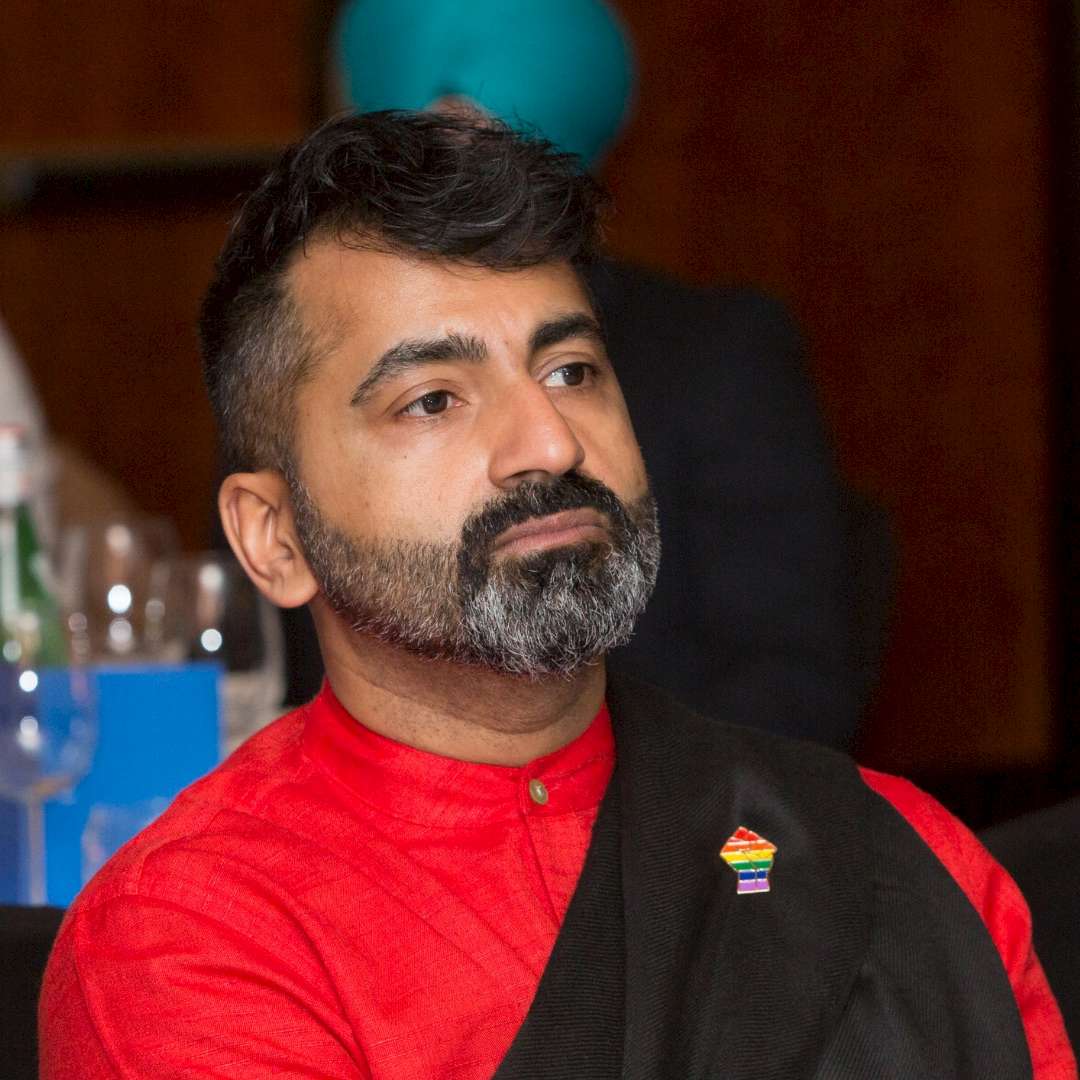
Laks Mann, award-winning Diversity & Inclusion Champion, Mayor of London appointed Equality, Diversity, & Inclusion (EDI) Advisor to City Hall, Trustee and LGBTQ+ Lead for South Asian Heritage Month (SAHM), Trustee for caba wellbeing charity, Founder of Gaysians UK
To mark South Asian Heritage Month 2022 (18th July - 17th August), we're celebrating the outstanding contributions and leadership in increasing the visibility of the South Asian queer community in the UK of Laks Mann, a Trustee and LGBTQ+ Lead for SAHM and Founder of Gaysians UK.
Laks (he/him) is the LGBTQ+ Lead for SAHM, which is a national celebration about reclaiming the history and identity of British South Asians and showcasing how their influences permeate present-day Britain’s DNA.
Laks is a Mayor of London appointed Equality, Diversity, and Inclusion Advisor to City Hall, where he advocates through an intersectional lens of race, ethnicity, faith, LGBTQ+, and working class lived experiences.
Laks is the Winner of the LGBT+ Positive Role Model Award 2020 at the prestigious ITV National Diversity Awards. Laks was a shortlisted Finalist at The Rainbow Honours 2022 and is a Pride Life Global Inclusion Advocate. Laks was listed in the UK’s Top 30 BAME Leaders 2020 by the University of Oxford, House of Commons, and OBV.
We asked Laks to talk about his inspirational work in improving visibility and representation, challenging stigma and the stagnant narratives of South Asian queers and celebrating South Asian LGBTQ+ culture, history, and the community's successes
My work as a Trustee and LGBTQ+ Lead for South Asian Heritage Month has ensured South Asian queer narratives have been interwoven into SAHM's fabric since it launched. My vision for SAHM is for it to be at the vanguard of decolonising mindsets, highlighting the rich history of South Asian queerness, and celebrating the achievements of Brown queer diaspora communities.
In 2019, I attended SAHM’s concept launch at the Houses of Parliament where its ground-breaking potential was obvious. I then reached out, and over chai with a Co-Founder, emphasised how SAHM could seize the opportunity to be inclusive of Brown queers from the outset; a beacon of diversity emitting a powerful signal of desi LGBTQ+ belonging. I later joined SAHM’s team, given my role as a Mayor of London EDI Advisor and the Founder of Gaysians UK, my brainchild from 2013, which I launched at London Pride 2017.
I was determined to launch Gaysians at Pride, as 2017 marked the 70th anniversary of India’s partition and independence/freedom from colonisation. Partition also resulted in the oppressive S377 colonial penal code continuing into India’s newly formed democracy. It was also the year the UK celebrated the 50th anniversary of (partial) decriminalisation of homosexuality in England & Wales. (Note, Delhi Supreme Court’s landmark judgement struck down S377, September 2018.) This juxtaposition of anniversaries galvanised something within me, a British-born gay guy of Indian-Panjabi heritage, who enjoyed legal protections and social freedoms in my birth country, yet who would be criminalised in my motherland because of its inherited discriminatory colonial laws.
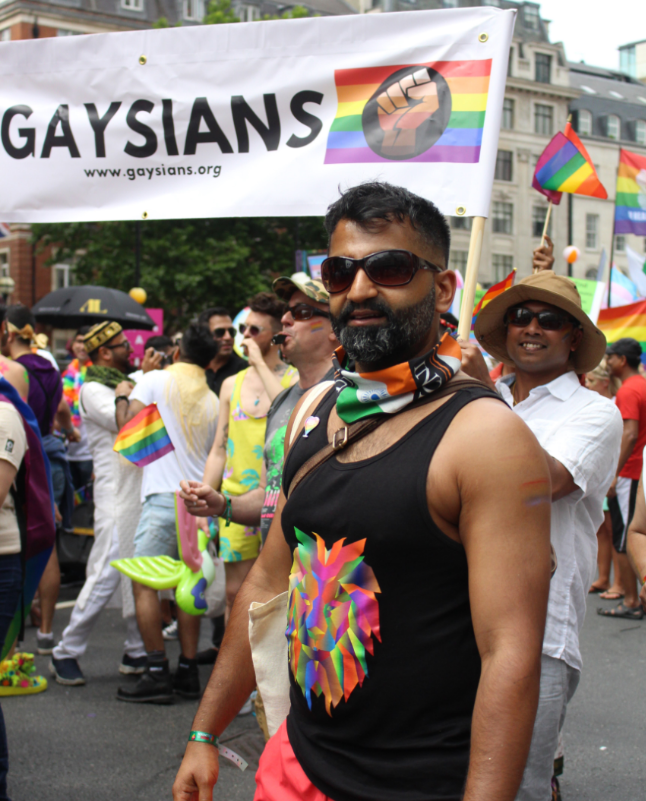
I created Gaysians to amplify LGBTQ+ South Asian narratives under the banner ‘Queer.Asian.Here’, which was a game-changer and pivotal in turbo-charging a resurgent Brown queer movement. Many queer British Asians had links with others, but to me, the community was word-of-mouth. I felt it had never fully transcended beyond regions/groups, and desi queer visibility was not cutting through the stagnant narratives still within our South Asian communities. I also sensed desi queers were becoming more confident, vocal, and visible, with some outstanding work being done by many pioneers. Still, to me, some of these efforts were niche, underground, and were not getting the recognition they deserved from the wider LGBTQ+ community.
I wanted to connect as many people as possible so that collectively we could visibly demonstrate how united, important, and influential the queer British Asian community were becoming. I was all about creating a movement, and I made a critical decision to hard launch in 2018 on a womxn’s platform for our first event. It was branded ‘Desi Lesbians’ and subsequently got picked up by the Women of the World (WOW) Festival!
How has your work supported changing the narrative and challenging stigma in the South Asian queer community?
All-too-often stigma, shame, and peer pressure can shape an individual's sense of belonging, and self-worth, and negatively impact their mental health and wellbeing. To combat this, I have consistently challenged the stagnant narratives of South Asian queers and confronted any negative portrayals of the community.
Through my work with SAHM and building upon the foundations and links established from creating and launching Gaysians, I continue to platform the many charities, community organisations, and support groups that focus on South Asian queers. My activism has been instrumental in shifting the ground towards an authentic representation of Brown LGBTQ+ peoples, positive recognition of their many achievements, and collectively celebrating the community's successes.
What is the change you would like to see in our community?
I would like to see those with privilege, power, and influence increasingly using these levers, to show solidarity with queer siblings and to dismantle the negative impacts of dominant cultures. So, we can have a future where we collectively march in solidarity - where every queer person can blossom into the person they were born to be, and where they can focus on happiness as their main priority.
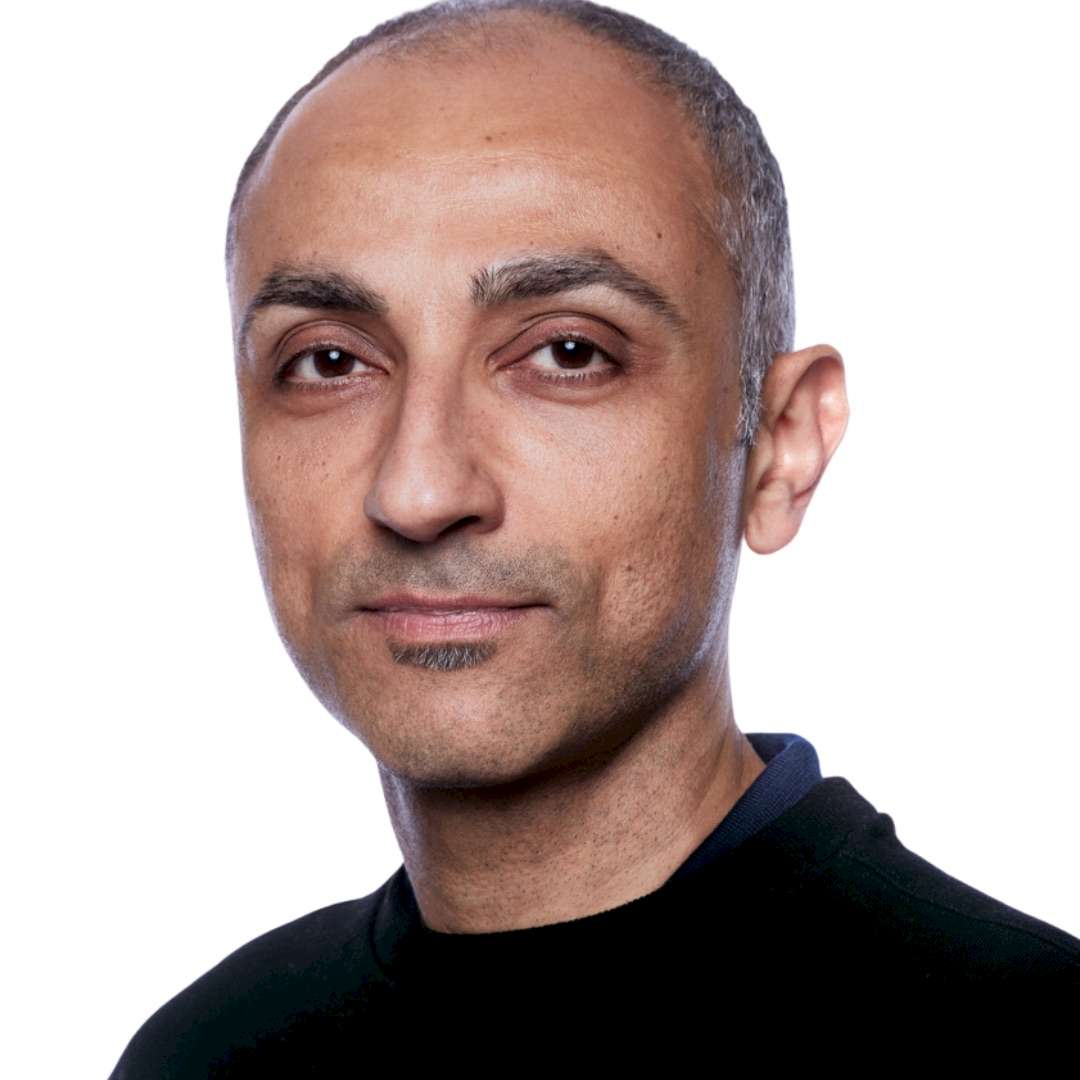
Daniele Lul, Co-Founder and Community Engagement Director at Parapride
Daniele (he/him) is the Co-founder and Community Engagement Director of Parapride, a non-profit organisation that focuses on the intersection between disability and LGBTQ+. ParaPride is an empowering charity working to create inclusive events and social opportunities that cater specifically to the needs of all those living with disabilities, impairments, alternative needs and different health conditions in the LGBTQ+ community. They also work with venues and other social spaces to help them become more aware of the unique needs of the LGBTQ disabled community.
We asked Daniele what motivates his inspirational work and advocacy for inclusion, visibility, and awareness of the needs of all those living with disabilities, mental health and chronic health conditions and impairments in the LGBTQ+ community.
My name is Daniele Lul, my pronouns are he/him. I’m the Co-Founder and Community Engagement Director of ParaPride, a non-profit organisation that focuses on the intersection of being disabled and LGBTQ+. I’m a disabled gay man, a person of colour, I’m an immigrant from Italy, living in London and my ethnic background is from Eritrea. My disability is very physical, I’m a double lower leg amputee and I walk on prosthetic legs. I’ve been an amputee since 2016 after having meningitis and septicaemia. Since acquiring my disability, I became increasingly aware that the LGBTQ+ community often perceives disabled people in society as the vulnerable community in need of special care.
This is not a true reflection of who we are. Our intersectional community has always existed. We are resilient, talented, creative, beautiful, and sexy, and we want to be visible and feel empowered by our differences. My experience in the mainstream gay community - pre-disability - hasn’t always been very positive or welcoming. I could feel the pressure of having to appear a certain way in order to feel included. There was no space for anyone who was disabled, older, etc. Based on my experience it was a very divided community dominated by cis-gendered white gay men who were abled-bodied.
How does the lack of visibility and inclusion in our communities impact the mental health of LGBTQ+ disabled people?
Looks & status have always played a big part in the gay lifestyle. This stereotypical image based on looks & status is often promoted and perpetuated by the media. This can be a very isolating experience for anyone who doesn't fit in the stereotypical image, and this has impacted the lives and mental health of many LGBTQ+ people, particularly the disabled community who is often misrepresented and portrayed as a charity case.
Being LGBTQ+ and disabled can feel isolating, we can feel unwelcome in LGBTQ+ spaces because of our disability, or different from other disabled people because of our sexual orientation or gender identity.
Our disability is still seen as the main cause of us being unable to participate fully in society. ParaPride wants the LGBTQ+ community to embrace and help us promote the fact that we are only disabled by the barriers in society.
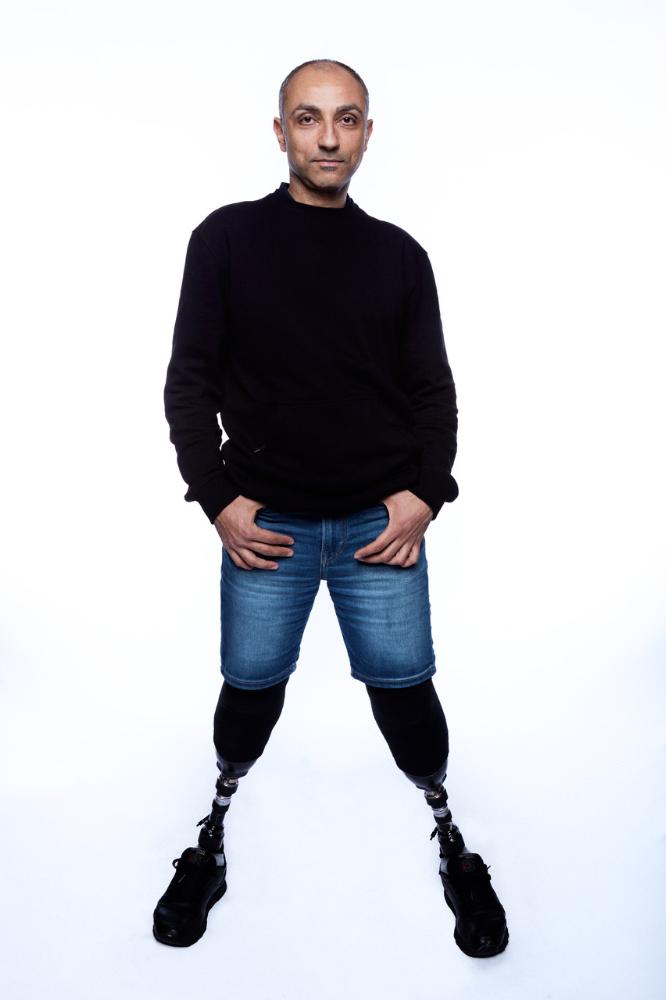
The need for Parapride came from this very evident need to address the lack of inclusion for disabled people within the LGBTQ+ community; a need for more accessible LGBTQ spaces; and a need to promote body positivity and be able to celebrate that.
Today, ParaPride is an empowerment charity that advocates for the visibility, education, and awareness of disabled LGBTQ+ people. We are a young grassroots organisation entirely run by volunteers and our lived experiences stand at the core of our charity values.
We support our work by producing inclusive events that cater for different types of disability; also, by working with venues and other social spaces to produce inclusive events and activities; and by promoting information and resources, and awareness training for better consideration of the obstacles faced by our intersectional community.
Tell us more about organising the first known disabled Pride and about running 'Dis-section' events on disability/LGBTQ+-related topics
In our first year as a newly registered charity (2019/2020), we were able to produce larger in-person events, working with LGBTQ+ venues including the Royal Vauxhall Tavern, and the Stratford Circus Arts Centre. Each event outgrew the previous, we successfully presented the biggest line-ups of disabled queer performers ever seen before. These events helped us establish a strong presence within the LGBTQ+ society and a deep connection with our intersectional community. Most importantly, these events allowed us to create inclusive, accessible social spaces for a majority of the disabled LGBTQ+ people, which hasn’t been done before.
During COVID we didn’t want to interrupt our engagements, so we came up with creative ways to interact digitally with our community.
‘Dis-section’, (Disability-section), is one of Parapride's online series. An inclusive and safe digital space where we converse openly, honestly, and respectfully about topics that are often not talked about in the wider LGBTQ+ community. In these live Zoom events, we are joined by a panel of influential figures from the disabled and LGBTQ+ communities who add that great quality value to our discussions.
The topics of 'Dis-section’ events held so far included: ‘Disability and Sexuality. Promoting Body Positivity’. Sex is a favourite topic among the LGBT+ society, but disability is often left out of the conversation.
Why is disability considered so incompatible with sex-related topics?
It’s really important to talk openly and honestly about disability and sex positivity, intimacy, love, dating, and being able to express these aspects of our lives freely.
‘Our Stories’, Parapride's most recent digital project, can be found on our YouTube channel. A series of video testimonials that feature co-members of our community who identify as disabled and LGBTQ+, talking about disability inclusion in the queer community. In these videos, they share some of their struggles but especially they speak up about their stories of empowerment through their lived experiences. With these projects Parapride aims to change the narrative and challenge the misrepresentation of disabled people that is still so deeply rooted in our community.
What is the change you would like to see in our community?
I would love to see increased awareness, inclusion, and more visibility for disabled queer people within the LGBTQ+ community and in society. In the UK there are still very few accessible spaces for LGBTQ+ disabled people to socialise safely. This needs to change, especially given there is a vast majority of LGBTQ+ people are disabled. At ParaPride, we believe that every LGBTQ+ disabled person has the right to feel safe, welcome, and included.
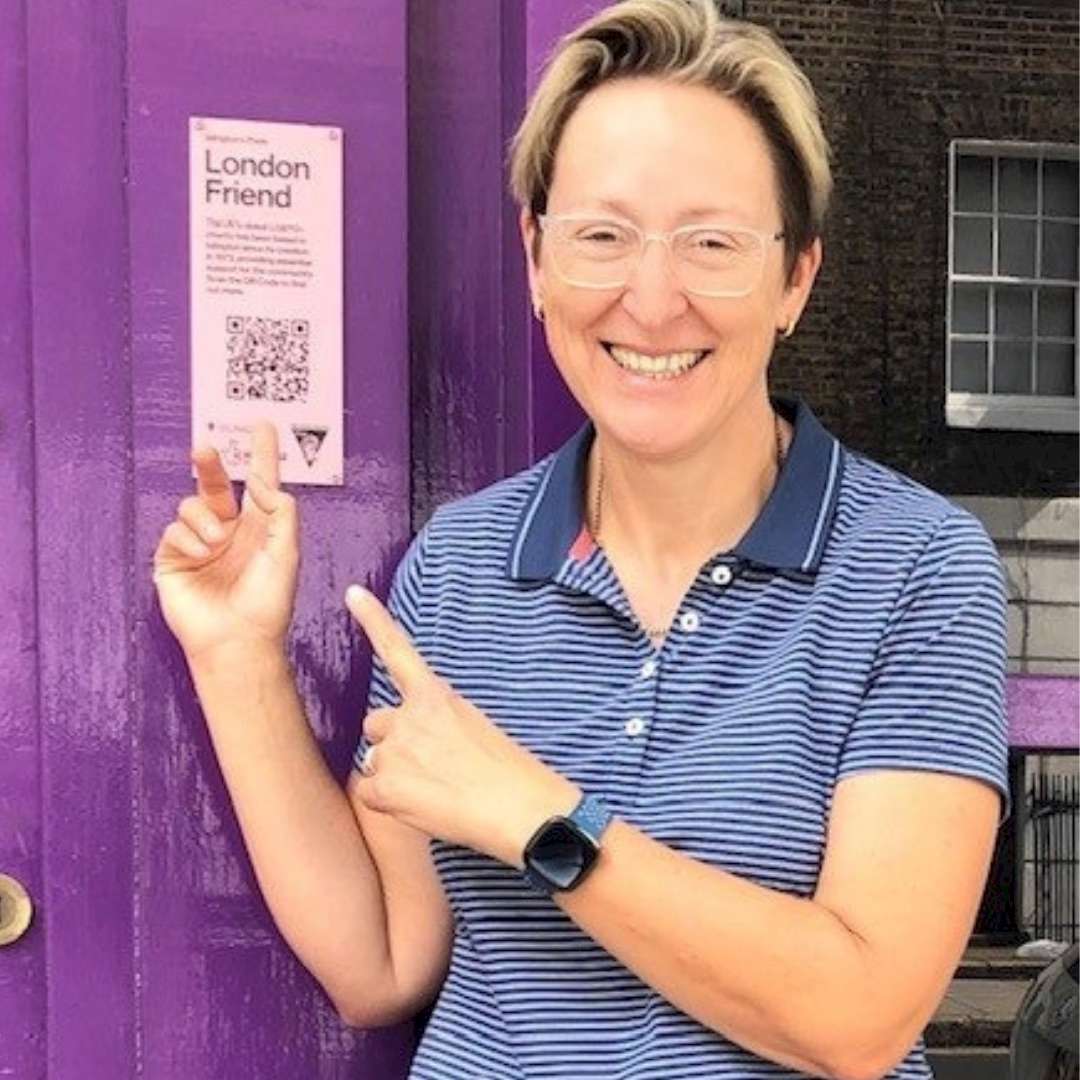
Julie Walkling, former volunteer coordinator at London Friend
Julie (she/her) was Volunteer Services Coordinator at London Friend from July 1991 – Sept 1995, working with 150 wonderful volunteers for 3 days a week. For a while, she was also the cleaner!
We asked Julie to talk to us about her work and motivation to support the LGBTQ+ community in London and beyond
I came out in 1983 at a time when there was much hostility and discrimination toward the gay community. Having had a challenging time coming to terms with my sexuality and with a keen sense of politics, I decided that I would rather ‘die on my feet than live on my knees’ and decided to be very out.
I became a volunteer at Spare Rib magazine in 1984, then in 1985 joined what was then London Gay Switchboard and became a volunteer, licensee and founding member of the Management Committee at the London Lesbian and Gay Centre. I also joined the Lesbian Strength March organising committee and was Head Steward for several years as coming from a Police family, I would be treated with respect, unlike others in those days.
Having had highly valued mental health support from the Bromley Y when coming out, and wanting to give back, in the late 1980’s I started to train as a Counsellor, qualifying in 1991 and working part-time at the Bromley Y alongside my London Friend role. I then moved to the University of North London (now London Met) as a Counsellor and found a new passion for supporting students from less advantaged backgrounds as well as continuing to champion equal rights.
I have now worked as a senior manager in higher education since 1999, with a continued commitment and zeal for the transformational power of higher education as well as the importance of equality, diversity, and inclusion.
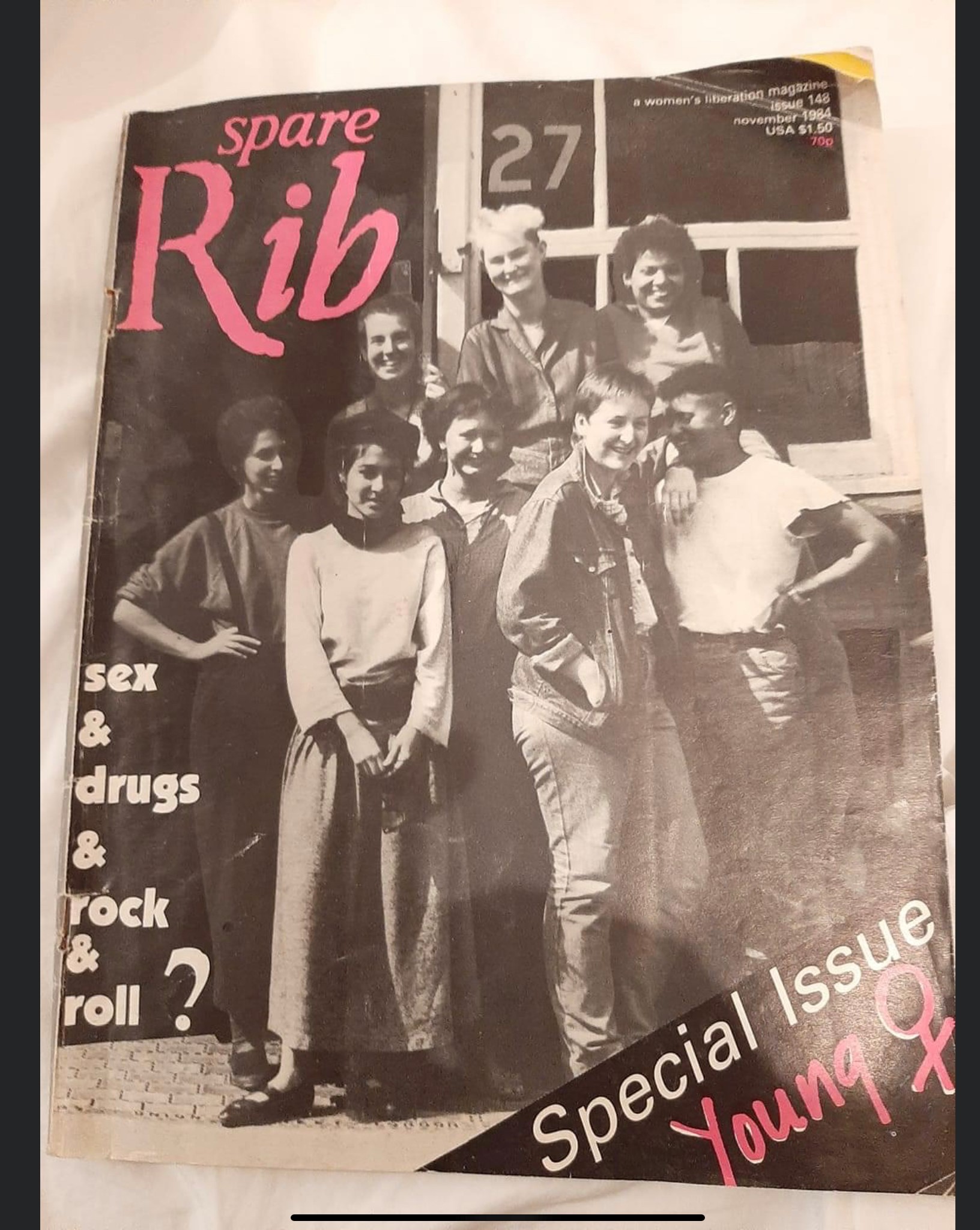
Photo: Julie (the second one from the right) on the cover of Spare Rib Magazine, November 1984. Courtesy of The British Library
What was your experience as a volunteer coordinator at London Friend in the early 90s?
I loved my time at London Friend. It was such a special place as in those days, it was very tough to be open about your sexuality and so many people were isolated. London Friend provided a safe, welcoming, and friendly place to meet other members of our community as well as to seek help. It was such a space of belonging, whether you were a visitor, volunteer, or worker and somewhere you could be yourself and feel valued. I’d also want to give a big round of applause to all the brilliant volunteers who gave their time, energy, and resourcefulness to make such a great place.
What is the change you would like to see in our community?
Despite the progress on equality, there is still a long way to go and there is still no guarantee that we will not have the rights we have won so far, taken away. I hope as a community we can hold onto our common ground, with respect for difference, and continue to fight for a compassionate and inclusive society.
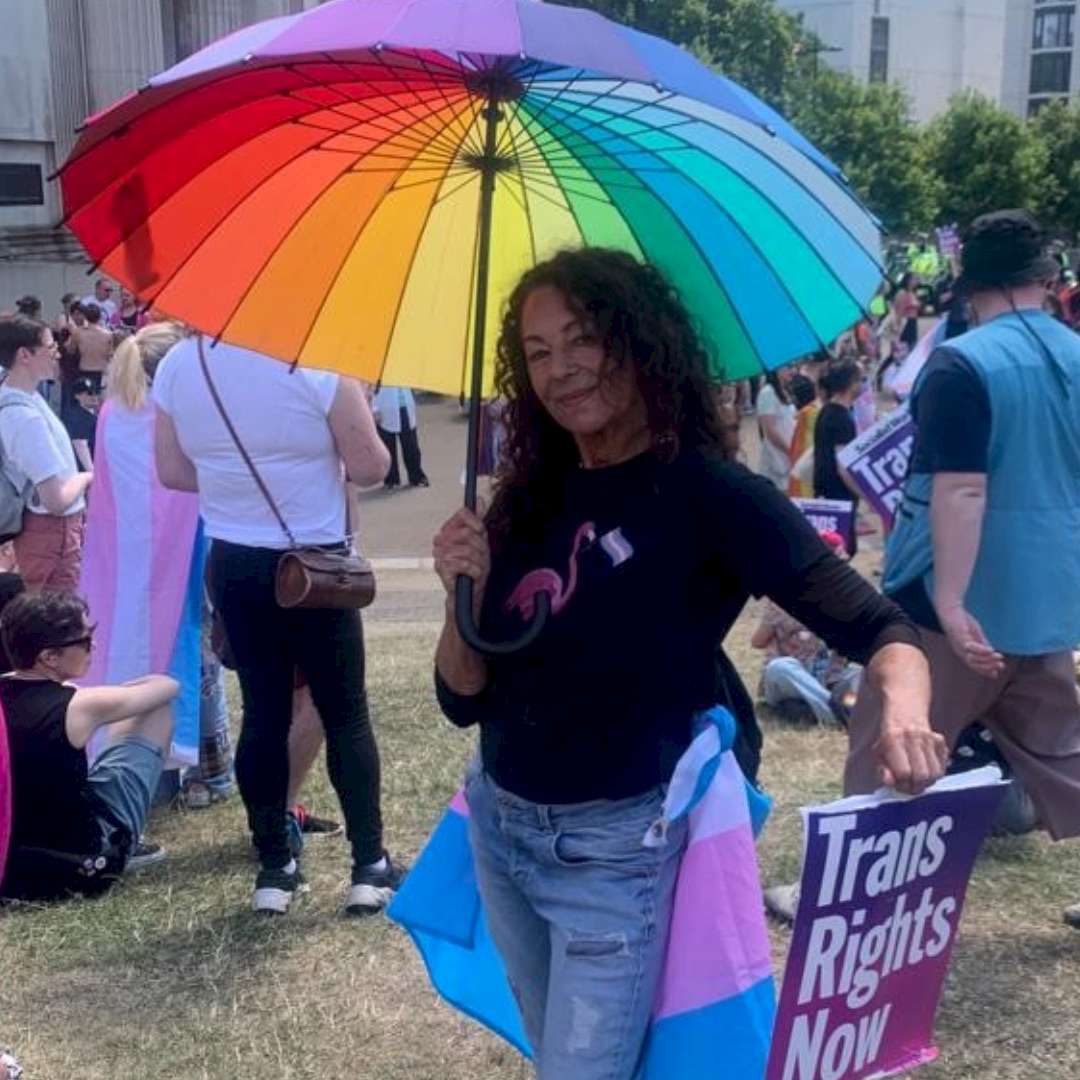
Toni Hogg, Antidote Service Manager & Person Centred Counsellor
Toni Hogg (they/she), BA Hons in Person Centred Therapy, is a BACP accredited counsellor, has a Diploma in Clinical Supervision, and is the manager of Antidote, London’s only LGBT-specific Drug & Alcohol Service.
Antidote works with clients in a client-centred approach around harm reduction. They have 20 years of experience working in the field of substance misuse, specifically with the LGBTQ+ community.
Toni has extensive experience working with sexuality & gender-related issues, childhood abuse, relationships, the impact of living with HIV & Hep C, self-esteem and body image issues. They are also experienced in working with alternative sexual, relational and lifestyle choices.
Toni's leadership over 20 years and dedicated work with a team of recovery workers and volunteers, has paved the way in meeting the new challenges and the risks of newer substances in our community while raising awareness and developing a new approach to supporting service users.
In 2015, Toni won the inaugural Attitude Magazine Pride Award, recognised as one of 12 “extraordinary ordinary” people who embody the spirit of lesbian, gay, bisexual and transgender pride. Later, the same year, they joined London Friend's CEO Monty Moncrieff on The Independent on Sunday’s newly named Rainbow List.
London Friend has become the 2016 GSK Impact Award winner. The judges highlighted Antidote’s work on chemsex, leading the way in identifying ‘chemsex’ as a health issue and developing solutions.”
In 2017 Toni was interviewed by popstar Olly Alexander on his documentary for the BBC Growing Up Gay It discusses LGBTQ+ mental health and follows the story of one of the people Antidote has supported.
More recently, Toni spoke to HuffPost UK about the essential role of LGBTQ+ specific support services like London Friend’s Antidote. They talked about the impact of negative comments about LGBTQ people in the media, at school, and in the workplace; the shame many of their clients are still dealing with and the clear link between the trauma experienced by LGBTQ+ people and addiction issues.
Toni identifies as non-binary queer.
We asked Toni to talk to us about their ground-breaking work at Antidote and what motivates them to support LGBT people with substance use
It has been a real privilege managing Antidote at London Friend, the UK’s first LGB&T drug and alcohol service for the last 20 years. Antidote was set up in 2002 and I initially volunteered while completing a degree in Person Centred Counselling.
I was part of setting up Antidote’s first Drop-in service where clients could self-refer for informal and structured support. In the early days, it was difficult to keep it running through a lack of funding for staff and only having a few volunteers, but I recognised then that it was a much-needed and specialist service for our community and was determined at all costs to keep it running.
In 2003 I started working full-time for Antidote as a drug and alcohol keyworker as well as providing counselling, after achieving my counselling qualification and later, my BACP counselling accreditation in 2006. I’ve always felt passionate about supporting LGBT people, especially with substance use, sexuality and gender identity due to my own difficult journey with all those issues. I knew that Antidote would be a unique service and have always felt so fortunate to be able to do this work within our community.
In 2007, becoming manager of Antidote and the only paid member of staff until 2011, I trained a team of volunteers to ensure the survival of Antidote and over the years it has grown to a service with a staff and volunteer team that supports a large number of people every week with their substance use issues, offering one to one support, group work and programmes, as well as providing training and information to generic services on working with LGBT people.
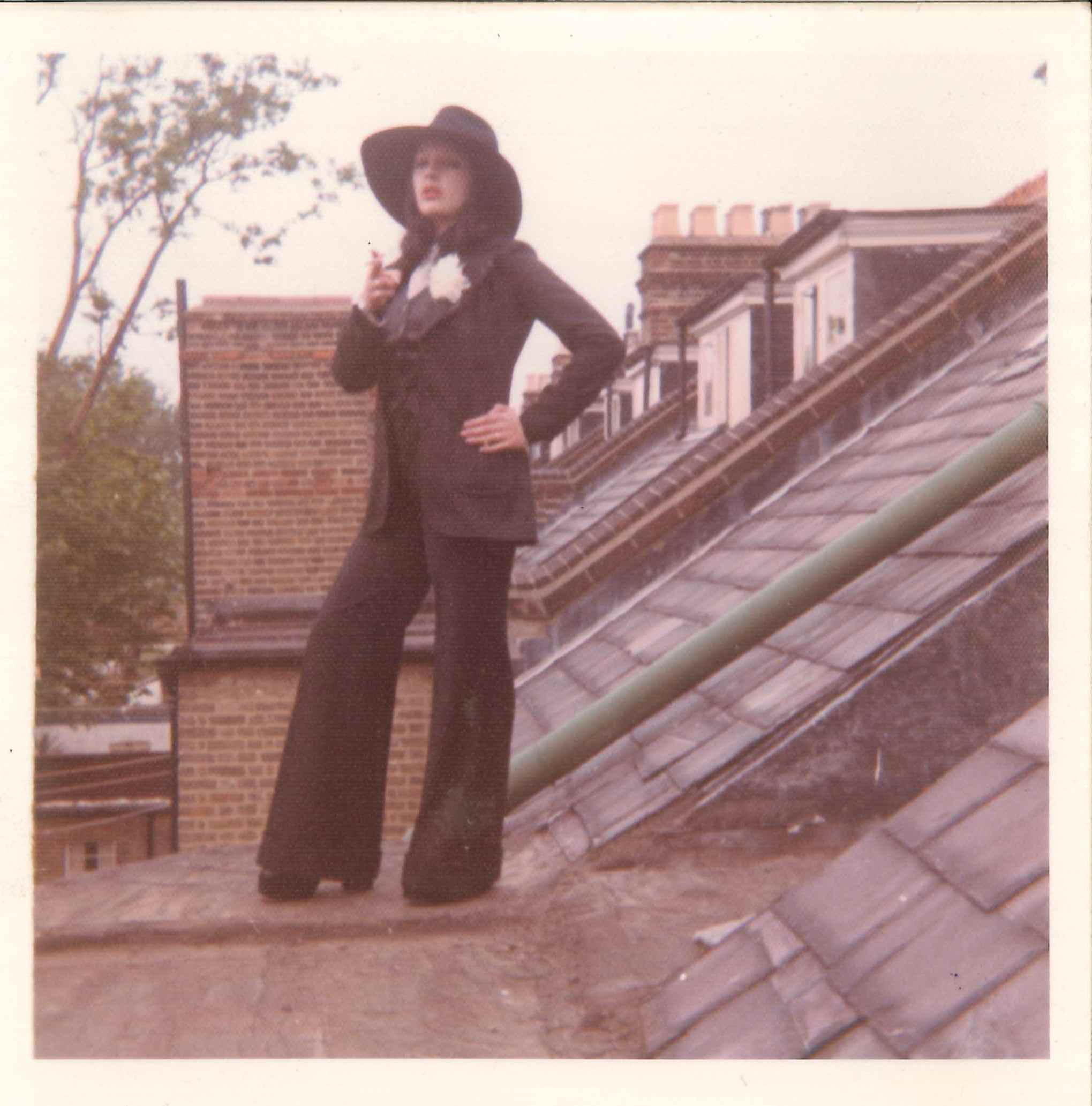
Image: Toni Hogg circa 1971, when they joined the first Gay Liberation Front march in the early ’70s (Picture: Supplied)
My passion for supporting LGBT people and rights started over 50 years ago, when I was a teenager and joined the first Gay Liberation Front march in the early ’70s and then every march and protest thereon, fighting for LGBT rights, Action on AIDS, Clause 28, Trans rights, and later, every Pride celebration.
It has often been a challenging journey. Would I do it all again? Absolutely, I feel blessed to have been in the position to do this work with ‘My People’.
What is the change you would like to see in our community?
I would like to see our community be totally inclusive and supportive of all sexuality and gender identities, race, culture, faith etc. We also need to see more events and venues for queer people of all ages.
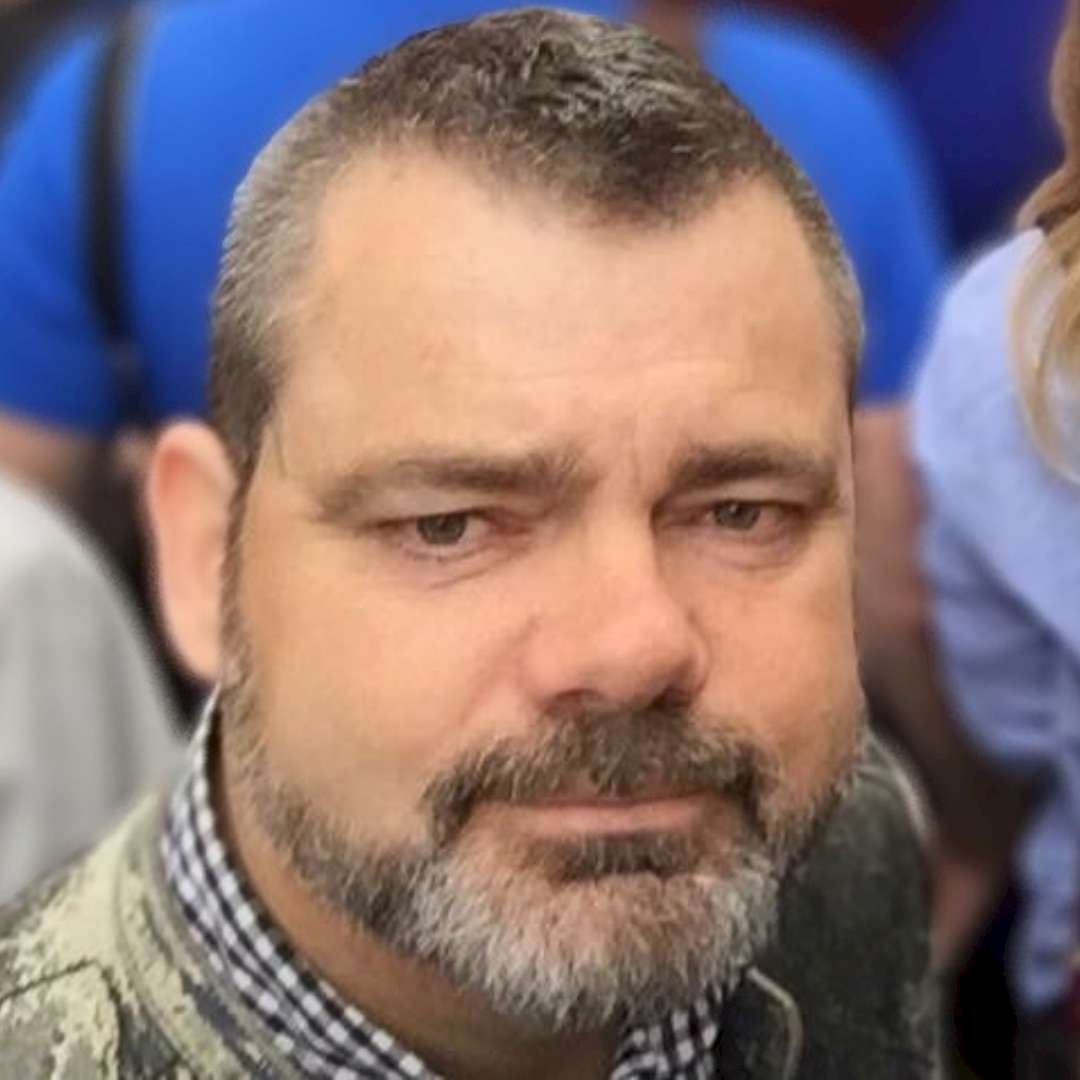
Bob Green OBE, former CEO of Stonewall Housing, Housing and Equalities Consultant
Bob Green (he/him) has worked in various roles within social housing for over 30 years, including 14 years as Stonewall Housing’s CEO. He is currently working for LGBT Foundation with Manchester City Council to deliver the UK’s first purpose-built LGBT Extra Care Scheme. Bob was awarded an OBE for his services to LGBTQ+ communities in the 2017 New Year’s Honours List.
Why it is so important for housing to make LGBT provision a high priority on their agenda?
Despite some advances in equality legislation and the great work done by some social housing organisations, such as HouseProud and Rainbow Roofs, the number of LGBTQ+ people facing harassment, family breakdown and domestic abuse, continues to rise. LGBTQ+ people are struggling to find safe, affordable housing, they are more likely to experience homelessness and, unfortunately, they often miss out on services due to discrimination and the stigma of being homeless.
What are standout moments during your 14 years as the CEO of Stonewall Housing?
I was proud to lead Stonewall Housing with staff and volunteers who worked tirelessly to get people into safe and secure homes. One of the highlights of my job was witnessing LGBTQ+ organisations work together to tackle youth homelessness, domestic abuse and our communities’ mental and physical health needs. It has also been wonderful to see new community groups, like Tonic, Outside Project and Micro Rainbow, develop new solutions to meet our housing needs and aspirations.
Great things are happening in housing for our communities but much more needs to be done because I still meet LGBTQ+ people who are going spare with loneliness or living in fear in their own home. LGBTQ+ groups have the answers, but they need support to make these a reality, in challenging times when our communities are under relentless attack.
What is the change you would like to see in our community?
We cannot say that there is an LGBTQ+ community until we all feel like we belong. Some sections of our communities are more likely to be homeless or live in poverty, feeling isolated and excluded. I would love to see us all become more welcoming so that no one is left out and we can shape our future together.
Stonewall Housing runs a weekly LGBTQ+ Housing Advice Drop In at London Friend

WHAT: Stonewall Housing is a specialist lesbian, gay, bisexual and transgender (LGBT) housing advice and support provider in England. They provide housing support for LGBT people in their own homes, supported housing for young LGBT people, as well as free, confidential advice for LGBT people of all ages.
WHEN: Every Friday from 2pm to 3.30pm. Please contact Stonewall Housing for further information.
WHERE: 86 Caledonian Road
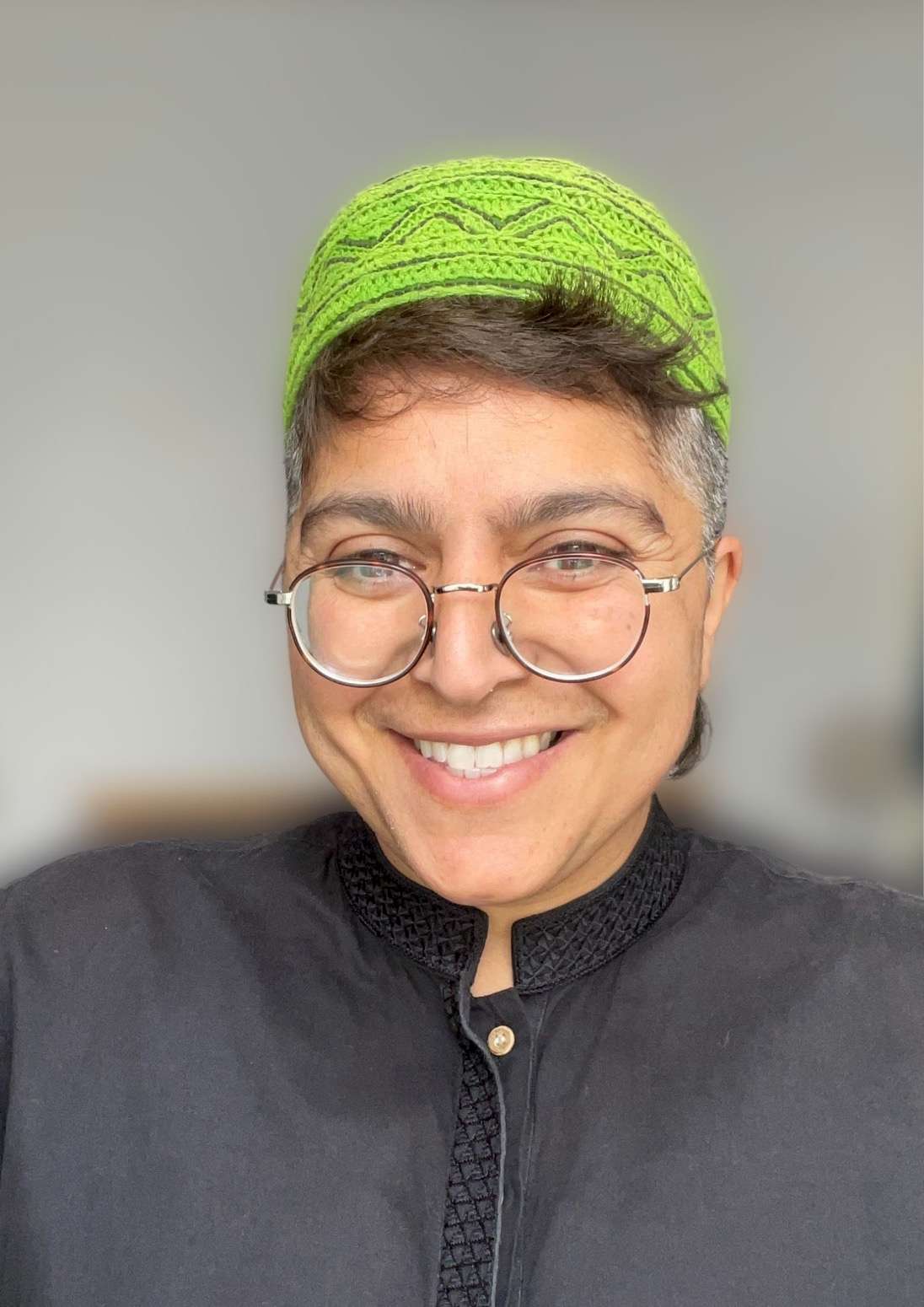
Faizan, co-founder of Imaan
Faizan (they/them) is an LGBTQ+ Muslim community organiser. In 1999, they co-founded the UK's first - and the world's oldest - LGBTQ+ Muslim organisation, Imaan. Recently they curated queer Muslim exhibits for the Barbican, the Bishopsgate Institute and for Queer Britain.
We asked Faizan to tell us about the founding of Imaan in 1999 and the charity’s work to help reconcile faith with sexuality and gender identity.
It started from my personal situation in the mid/late 90s. I was in my 20s and realising that I was queer - something that was extremely difficult to face as someone from a culturally and religiously conservative background at that time. I knew no brown or black people who were queer, let alone Muslim. I was friends with one white gay guy from university, that was it.
As fate would have it a small piece was printed in the Pink Paper (now Pink News) from a gay Muslim activist from the US, asking if there were any gay Muslims in London who wanted to meet up. I went to that meeting in Wardour Street by myself in November 1999 - I was very nervous. There I met about 20-30 other LGBTQ+ Muslims - all strangers to each other but with of course so much in common. The following night, some of us met up again and decided to form a support group for LGBTQ+ Muslims and that’s how Imaan was born - most of us are still close friends to this day.
At Imaan, we recognised quite quickly the power of community - it was validating and healing especially after what we had experienced individually in our lives until that point. We had all faced difficult situations, some had come through forced marriages, others had run away from home and others lived in fear of their families finding out. We found strength and solace in each other and so we wanted to provide that for other LGBTQ+ Muslims - and that became the primary function of Imaan: peer-to-peer support. When you are being supported by someone from your own background it has a greater impact, I’ve learned.
What developments have taken place for Imaan since its inception and how has the current political context influenced them?
We were spurred into action straight away and organised several international conferences which led us to build community with LGBTQ+ Muslims across the globe from the US and Canada to South Africa and across Europe, wherever we could find them via the internet which was still in its infancy in the early 2000’s.
Those conferences gave us a space to explore and resolve important issues relating to LGBTQ+ Muslim identity from queer marriage and marriages of convenience to reconciling faith with sexuality and coming out: the pros and cons.
The political context for Imaan changed dramatically just a year or two into its inception with the horrifying terrorist attacks in New York on 9/11. Until that point Muslims were not a discernible demographic politically or socially in Britain but sadly, Islamophobia reared its ugly head and we were all suddenly confronted by prejudice - now on two fronts.
What is the most common misconception about being Muslim and queer, and how does Imaan address and work towards eradicating Islamophobia in the community?
The most common misconception about being LGBTQ+ Muslim is that there is a universality of experience; that we are all, bar none, oppressed and are in dire need of saving and that that help must only come from white non-Muslim people.
There are over a billion Muslims in the world which means millions of LGBTQ+ Muslims all from different walks of life, all facing different challenges. There are indeed swathes of us living under repressive regimes who need support and assistance on a global level, there are also others leading quiet, happy lives, at peace with the different sides of our identity and managing OK.
I think it’s on us as the more privileged within our communities to offer help to the least privileged amongst us. That’s why one of the things I’ve been most proud of with Imaan over the last twenty years has been bringing queer Muslims from different walks of life under one roof, to break bread together during Ramadan. It fosters community which can lead to great things.
It would be wonderful to see much more collaboration between queer Muslims groups and influencers as well as LGBTQ+ Muslims in leadership positions at the helm of making change.
The other misconception is - still - that we exist at all, that it’s not possible to be LGBTQ+ and Muslim but that idea is (very) gradually being eroded and people are realising slowly that we are actually everywhere!
Tell us about a standout moment/achievement in the LGBTQI community in London and beyond as the co-founder of Imaan and a queer Muslim
At different points over the last twenty years, Imaan has challenged Islamophobia in the wider LGBTQ+ community. That’s what the current Imaan exhibit at Queer Britain is about. It’s three outfits that we wore in 2005 at Pride in London - it was the first time a very visible, in-your-face queer Muslim presence was featured so prominently. We gave a speech to 10,000 people at Trafalgar Square about the scourge of Islamophobia and about how the gay community at that point needed to be more inclusive. But even on that Pride march, queer Muslims experienced Islamophobic abuse, we were called terrorists by other LGBTQ+ people!
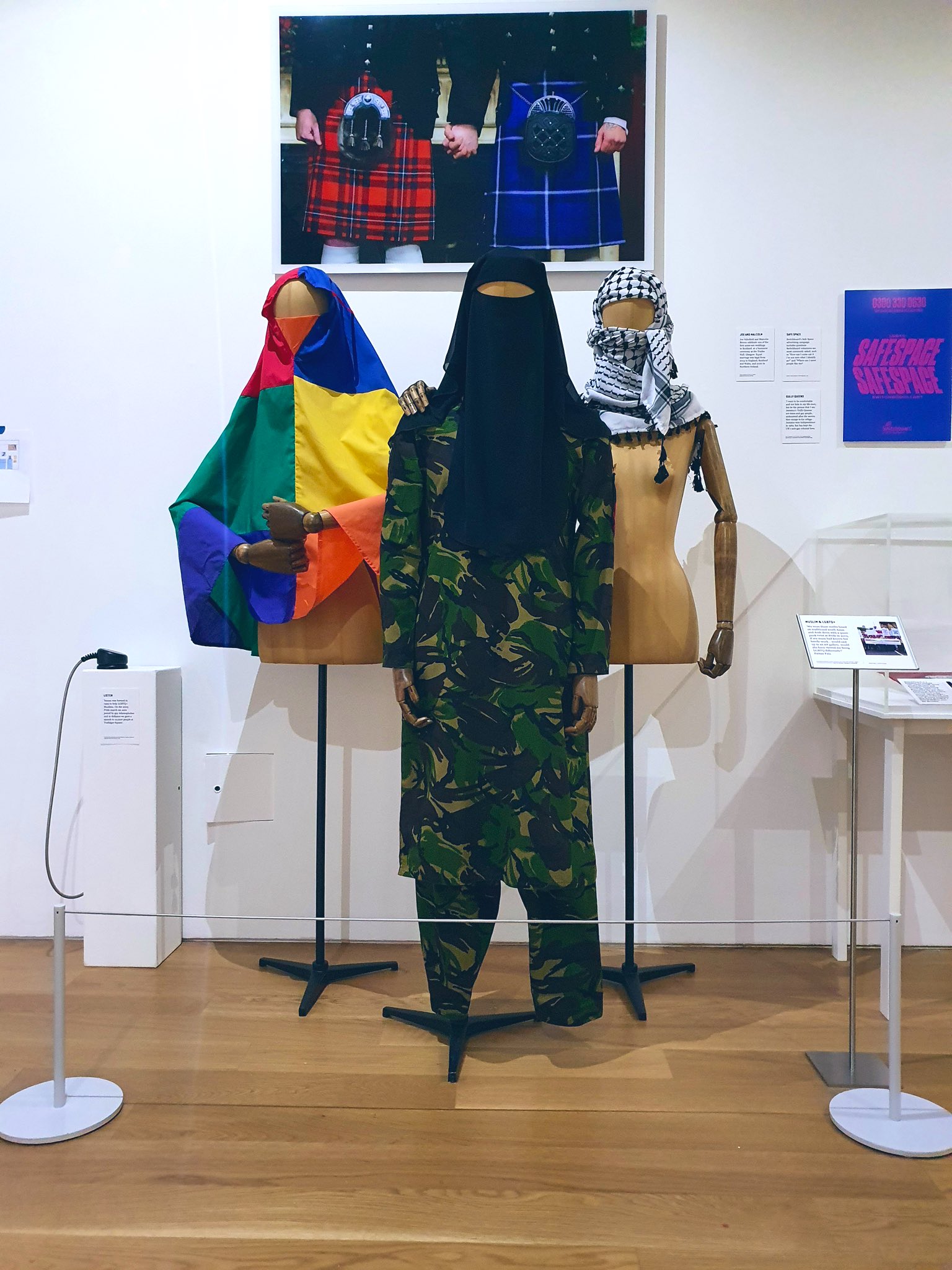
Outfits worn by Imaan members in 2005 at Pride in London, currently being displayed at Queer Britain
Source: @Faizan_Imaan
What is the change you would love to see in our community?
Much more collaboration, cooperation, working towards common goals and being an example to our wider communities, both LGBTQ+ and Muslim.
You can keep up with Faizan’s work on Twitter, Instagram and TikTok.
To know more about Imaan's services, please contact them via email.
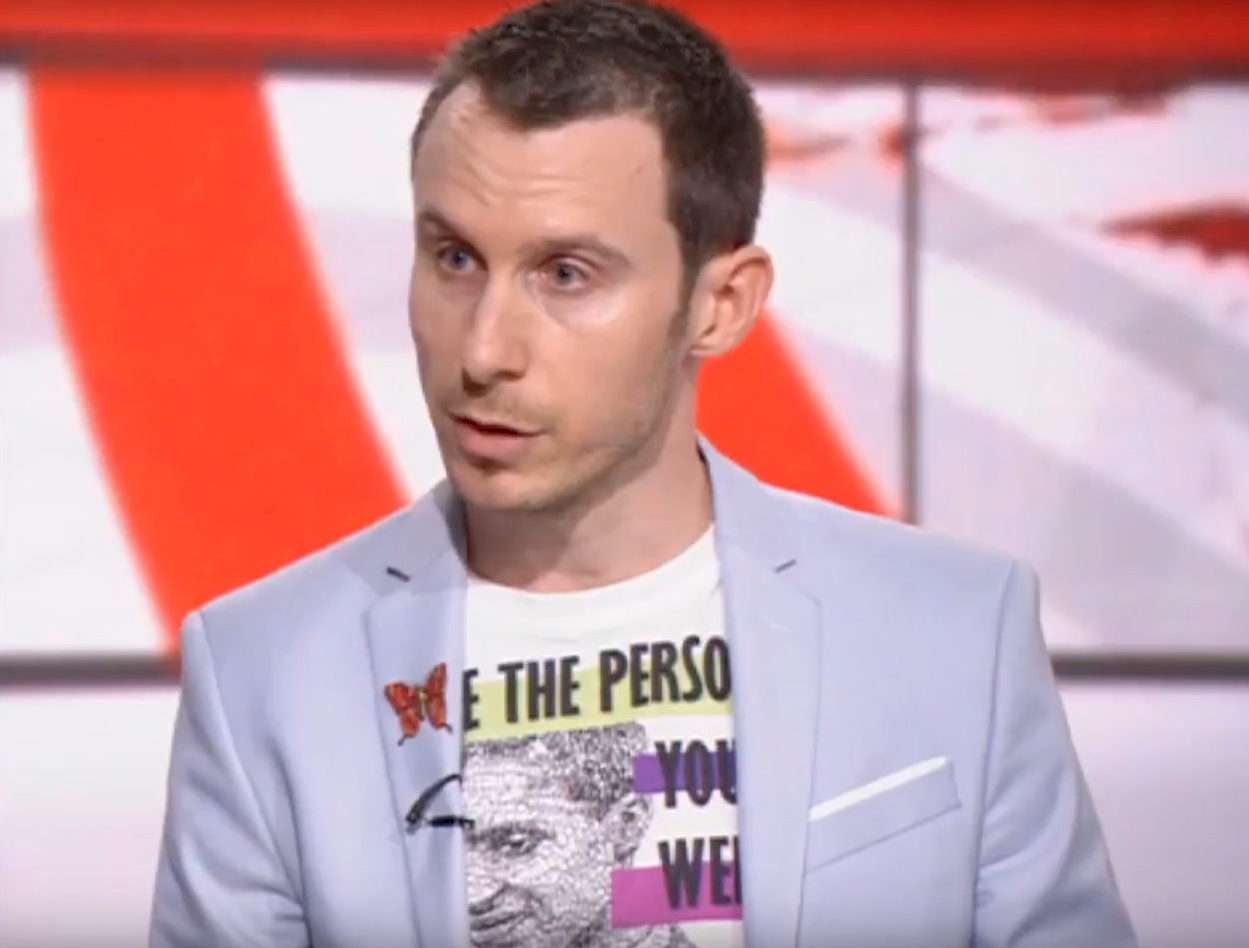
Matt Mahmood-Ogston, founder of Naz and Matt Foundation
Matt Mahmood-Ogston (he/him) is the founder and Executive Director of Naz and Matt Foundation. The award-winning charity tackles homophobia, triggered by religion or culture, to help parents accept their children. The Foundation provides free-to-access support, mentoring, books, videos, and campaigns tirelessly in the local and national media. Their core focus is building bridges of understanding within families where religion or culture is affecting a parent's ability to accept their LGBTQI+ child. The charity was set up in 2014 following the sad loss of Matt’s fiancé and soulmate, Naz, who took his own life two days after his deeply religious family confronted him about his sexuality for the first time.
We asked Matt to tell us about how the Naz and Matt Foundation empowers and supports LGBTQI+ individuals, their friends and family to work towards building bridges of understanding and acceptance
One of the things we do most at Naz and Matt Foundation is listen. We listen to lived experiences shared at events. We listen to real life stories shared online. We listen to the hundreds of traumatic, often horrific experiences that are shared with our charity on a regular basis. It’s critically important for us to understand, as comprehensively as possible, the impact religion and culture is having on the individuals we support. It’s the only way we will ever find a solution.
When we first started the charity, our core focus was not on providing direct support. However, as the months and years went by, we increasingly received requests for help, guidance or support - many individuals being in similar situations to my Naz. Sometimes friends contacted us who needed guidance on how to better understand and support their LGBTQI+ friend. We received requests from parents who wanted to understand their LGBTQI+ child better but didn't know how or where to begin. Schools, social services, police forces, NGOs and even central government departments started to contact us asking for help to better understand religious and cultural homophobia.
The majority of our confidential 1-2-1 support and mentoring services are now provided over the phone; however, we also provide a friendly support group every month. Quite often our support clients are forced to hide their real name and identity, fearing what might happen if their parents find out. Each client can receive an unlimited number of sessions, for as long as they need them. The type of abuse and trauma we work with can take years to resolve or reconcile. It’s important for our clients know we are here to support them... throughout their journey ahead.
What was the inspiration behind the creation of the annual campaign “Out and Proud Parents Day”?
My darling Naz sadly passed away on the 30th of July 2014. Every year after this the 30th of July was an incredibly dark, almost impossible day to get through. As we approached the five-year anniversary of losing Naz, I wanted to do something different - to reclaim the day as something more positive. A day when Naz could be remembered, but also a day that could be used to help others.
Around the same time, we were contacted by a wonderful team of creatives at one of the UK’s largest agencies who wanted to donate their time on a project for our charity. After much discussion we came up with the concept of Out and Proud Parents Day, which launched on July 30th, 2019. One of the main creatives behind the project has since joined our board as a Trustee and now helps lead the event every year.
Out And Proud Parents Day is an annual celebration, held every year on the 30th of July, where we encourage proud, accepting parents to come out on social media, to come out to their community, sometimes even coming out to their own family… to tell the world how much they love and accept their LGBTQI+ child (of any age). We invite parents to share their own photos, videos or messages about their love and acceptance using the hashtag #OutAndProudParentsDay. We also interview a small number of the parents each year on video and share stories across social media.
The celebration is open to all proud, accepting parents, but we particularly encourage parents from religious or culturally conservative backgrounds to take part. Each year the celebration has increased its audience size, with parents taking part across the UK, North America, and India too.
Can you tell us about a standout moment or achievement since the inception of the Naz and Matt Foundation that you’re especially proud about?
I’m so happy to say there are a number of moments and events that make me proud of the volunteers, trustees and community members who support the work of Naz and Matt Foundation. I’m incredibly proud of Out and Proud Parents Day and all the parents who have taken part. I’m proud of the truly inspirational contributors and crew behind our recent award-winning film - My God, I’m Queer - which was broadcast on Channel 4. I’m proud of everyone who chose to march in their very first pride march with Naz and Matt Foundation, some who were forced to wear masks as they still were not out. I’m proud of the brave individuals who have walked hundreds, sometimes over a thousand miles (@gingerbreadharry) to raise money to help support our vital work.
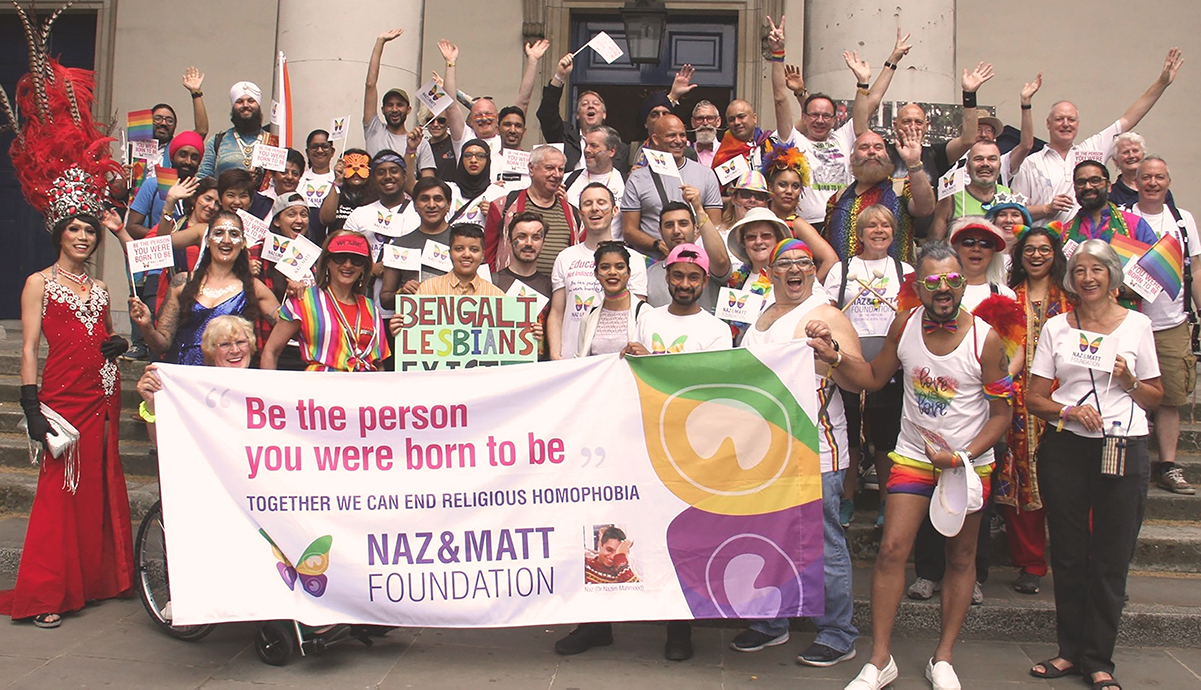
Photo source: Naz and Matt Foundation
But there are two things in particular that make all of our hard work worthwhile:
1) Our LGBT+ clients seeking asylum often face death or imprisonment if sent back to their country of birth. It’s a very happy day when we receive a phone call informing us that they've been granted safety in the UK by the Home Office.
2) When someone gets in touch to let us know that our support service, or our work in the community, has helped them successfully come out to their family and gain acceptance.
What is the change you’d love to see in our community?
I’ve made a lifelong commitment to preventing what happened to my darling Naz from happening to anyone else ever again. Our charity has a long-term mission to remove the barriers that stop parents from accepting their children.
The change I’d like to see most in the community is for every mother and father, from every religious and culturally conservative background, to proudly accept their LGBTQI+ child, for the person they truly are, and the person they were born to be.
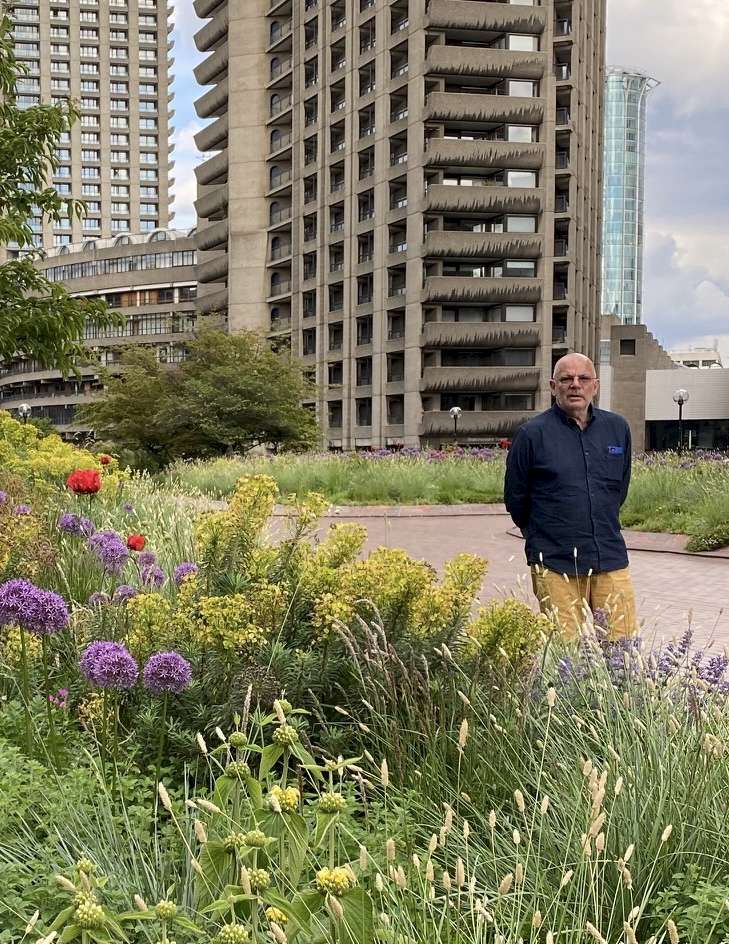
Steven Malies, development worker at London Friend in the 1980's
Steven (he/him) began his involvement with London Friend in 1980 as a telephone befriender. After doing this for two years, he was invited with Ian Woldhouse to look at and revise the training programme for the new telephone volunteers. At the time, he was working as a social worker in North London and worked for a Trade Union in central London.
They devised a six-week programme that met every Sunday, and approached the training using a social work professional development model rather than the traditional chalk and talk one. They visited the gay youth group in Holloway, North London; invited women from Lesbian Line to talk about their work and look at what skills they could bring from their lives and work.
The following year, Steven met with Philip Conn who was supervising the GLC-funded FRIEND and had two part time development workers. The male worker left, and he was then invited to take over the role. The job was part time and had a clear job description: to open up the ground floor of the building on Upper Street during the day as a resource for local LGBTQ people; make contact with the prisons and probation service and then set up a support service for gay men in prison; and install a library of LGBTQ books at London FRIEND.
Steven now teaches Social Work at the Open University.
We asked Steven to reflect on his experience at London Friend in the time of the GLC funding in the 1980s…
The ground floor area was decorated, and the back room downstairs covered with hessian panels to make it at least look habitable. Islington Council gave us some catering equipment and some chairs. The ethos of FRIEND at that time was to look at who the local gay scene and social groups were not really catering for. The focus was on people who were socially excluded and to look at the structural, social, and cultural issues that made folk feel socially isolated and feel there wasn’t a place for them to find friendship and support.
In talking to local social work colleagues, probation service at Pentonville and the Waterloo mental health unit at Whittington hospital, we found that there were groups of people who felt excluded from the commercial gay scene and lacked the confidence to join LGBTQ groups. We advertised the building being open at lunchtime and by week two had a core group of members. We identified some members who worked as greeters and did the teas, coffees, and snacks. I remember coming downstairs after about six months to see a large group of regulars welcoming and chatting to two new members. We did discuss whether we should invite the gay press to ‘cover’ the project, but the members thought it would be too intrusive and did not trust the media to safeguard their confidentiality.
The book/library project involved us looking at the Book publishers guide and writing to all of them with a covering letter. It seemed a lot of gay men worked in publishing, and we received boxes of books – Penguin books sent a van! It was the 1980s and books were a vital touchstone to discover the narratives and stories of LGBTQ folk. Naturally some folk took books and didn’t bring them back, but others searched then local charity and second-hand bookshops to give us donations.
The prisoners support project was an interesting and challenging project. The key to its success was the probation service in prisons and the relationships they had with the prison welfare service. We put out an ad for volunteers to come forward and established a group of ten volunteers. A local probation officer came to see us to guide us through the labyrinth of rules and regulations about letters, visits, visiting orders. We would only be allowed to contact prisoners in low category prisons and men who were about to be released. The main concern was about keeping to boundaries around managing expectations of the volunteers and not to cross the boundaries of then statutory services.
I met with the London probation service who made contact with the London prison welfare and probation services. There were very encouraging and reported that the main issue facing men in prison was social isolation and that the men we could support were only those who had a low tariff conviction such as fraud and theft. This service gave us names of men in prison they knew, and they also put up an info sheet in the prison welfare offices.
The anxiety for us was that some of the volunteers would go beyond the befriender role. So, the volunteers were supervised before and after they made an in person visit and we devised some model letters that they could send to introduce themselves. From the project some of the volunteers were co-opted into local prisoner support projects and one person went on to train as a probation officer.
The project did highlight some issues. The partners of gay men were not offered automatic visiting officers that straight partners would be offered. In the GLC annual report of funded projects I wrote a few paragraphs about this. We did contact some of the men after they had been released and asked what value the project had had for them. The common theme was that they felt isolated with no one to talk to about their lives.
These projects really came to an end once the GLC funded stopped. In the wider gay community at the time there was really very little interest in social exclusion and supporting those who face mental health and drug and alcohol problems. I suppose in writing this the issues facing LGBTQ people have not really changed that much.

Chloe Davies, Director of the London LGTBQ+ Community Centre and Head of Finance at UK Black Pride
As Black History Month is coming to an end, we are delighted to feature Chloe Davies (she/her), a proud Black bisexual woman, mother of two, a creative, global inclusion & belonging consultant, chef and entrepreneur. Her work sees her campaigning for inclusion and equality in social spaces, corporate organisations and the wider community. She spent over 15 years working in retail, artist management and PR before starting her own catering company in 2015.
In September 2021 she took on the role of Head of Social Impact for Lucky Generals – the creative company for people on a mission, where she is responsible, in conjunction with management, for setting the company’s social impact goals and ensuring that they are met in the most effective and creative ways possible. The role is focused on building a sustainable, diverse and inclusive company culture and output.
Chloe volunteers with UK Black Pride (UKBP), The London Queer Fashion Show (LQFS), is a Director for the London LGBTQ+ Community Centre and an Ambassador for Mental Health First Aid England.
In July 2021, Chloe was shortlisted out of 55,000 nominees for The National Diversity Awards – Positive Role Model of the Year – LGBT. In November 2021 she was recognised 53rd in the OUTstanding Top 100 LGBT+ Executive Role Model List.
We asked Chloe to tell us more about her inspirational work in queer spaces, especially as Director of the London LGBTQ+ Community Centre project and volunteer for UK Black Pride...
I have been volunteering in community spaces for a number of years now and this has ways been with a purpose to be in and create positive spaces not only for myself as a Bisexual Black woman but wider for the LGBTQIA+ community, to usualise our experiences with Mental Health and just to have a place to call home and where I felt like I belonged. It was actually 5 years ago yesterday (18th October) that the very first meeting took place for the London LGBTQ+ Community Centre Project. I couldn't be at that one but attended many others, was part of the Community Engagement working group and stayed with the project over a number of years before I was asked to be a Director 2 years ago. We have gone from a 6-month pop up to keeping our doors in our Bankside home open for the next 5 years. The centre acts as a home for anyone within the LGBTQ+ community who has experienced isolation and segregation. We provide solace, support and a place where we can work together as allies.
I'm also a core volunteer for UK Black Pride. I've been with the organisation for 4 years in a number of different positions but what I am now is Head of Finance. This August we made history and I couldn’t have been prouder to be part of it: with attendance at over 25,000 people, we are now the largest Black Pride Celebration in the world. UK Black Pride is a safe space to celebrate diverse sexualities, gender identities, cultures, gender expressions and backgrounds and we foster, represent and celebrate Black LGBTQI+ and QTIPOC culture through education, the arts, cultural events and advocacy.
What is the change you’d love to see in our community?
More collaboration, working together to elevate each other, using our platforms to give space to those who are most marginalised within our wider diverse LGBTQIA+ community. More financial investment into organisations who are doing the work on the ground supporting people. More resource and support and visibility on Mental Health within our community especially the Black LGBTQIA+ communities and more JOY! Lots more JOY!!
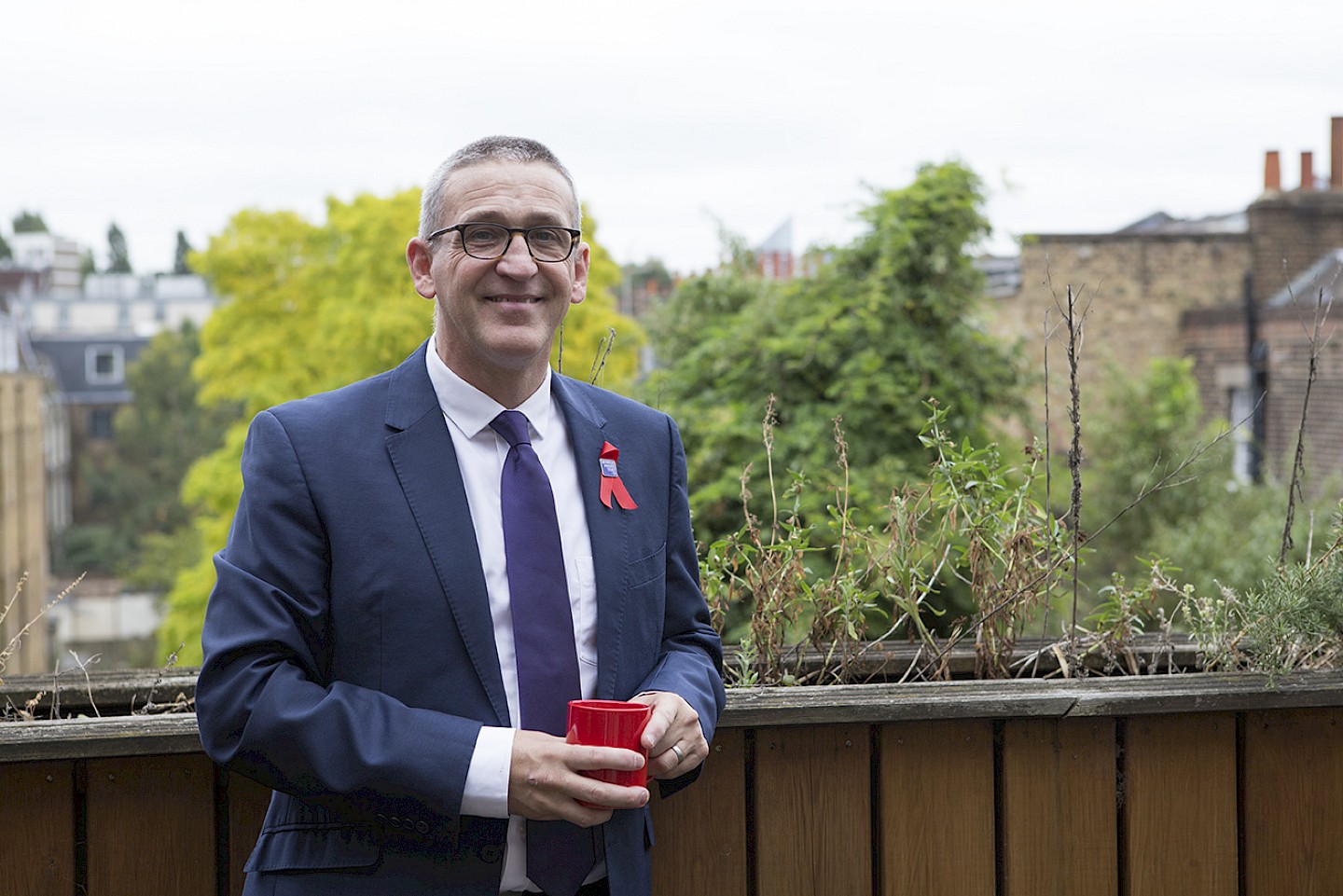
Ian Green, Chief Executive at Terrence Higgins Trust
Ian was diagnosed with HIV in 1996, the same year that effective treatments were first found. He accessed Terrence Higgins Trust’s life-changing services for support with his diagnosis before taking on the role of Chief Executive almost seven years ago. Ian lives with his husband Paul (who Ian can’t pass HIV onto because of the daily treatment he takes to reduce the HIV in his body to undetectable levels) and their two dogs.
We spoke to Ian about his work at Terrence Higgins Trust to support and empower those living with HIV and the ongoing fight against HIV stigma, as well as his own experience living openly with HIV...
Terry Higgins was the first named person to die of an AIDS-related illness in the UK on 4 July, 1982. This year we’ve been remembering Terry and all of the incredible work that’s been done in his name to mark 40 years since his death. Our charity was set up by Terry’s partner, Rupert Whitaker, and their friend, Martyn Butler, to provide information and support – and ultimately to save lives.
We’ve made incredible progress in the fight against HIV in the last four decades with effective treatment meaning you can live as long as anyone else and can’t pass on HIV to your partners. But stigma remains a big issue and that’s something we’re determined to tackle as we won’t end new HIV cases by 2030 without also tackling the stubborn myths and out-of-date information surrounding this virus. For example, it was just a few years ago we found that almost half of people would feel uncomfortable just kissing someone living with HIV. So it’s definitely not ‘job done’ when it comes to HIV and we have a long way to go before all people living with HIV can live well with the virus.
I’m proud – and privileged – to be able to live openly with HIV and share my story to shape hearts and minds. We know that empowering people living with HIV to share their story in the media or online has a huge impact in tackling stigma and smashing perceptions of what HIV looks like. Having role models and visibility is so important if you feel safe and able to do that.
As HIV treatment has improved – changing a HIV diagnosis from a terminal one to a manageable long term condition – so too has our work. We provide holistic support to be there for people living with HIV at any point on their journey, whether newly diagnosed or living with HIV for decades. That includes counselling, peer support via out online community forum, benefits and welfare support, our hardship fund, and THT Direct where you can ask any questions about HIV and sexual health. As well as our sexual health services across England, Scotland and Wales.
My first ever meeting when I joined Terrence Higgins Trust in 2016 was about PrEP and getting it on the NHS without a cap on numbers. It took a lot to get there, but that finally happened in England in October 2020 – making it the last in the UK to routinely provide PrEP. I’m extremely proud of the work we did to make that happen both publicly and behind the scenes, including working with those already benefitting from PrEP to protect against HIV. Having said that, access issues remain and monkeypox is squeezing clinic capacity in many areas – so the work continues to ensure proper, equitable access for all communities impacted by HIV.
What is the change you'd like to see in our community?
I’m a proud gay man and the LGBTQ community has been absolutely crucial in the fight against HIV. But HIV stigma remains in our own communities, as well as in wider society, and that’s something we need to tackle. I’m living with HIV, but I’m not “unclean”. I’m also a strong, unfailing trans ally and firmly believe tackling all forms of discrimination – including transphobia and racism – is crucial to achieve our goals of ending new HIV cases by the end of the decade. As well as being the right thing to do to ensure trans people and people of colour can thrive.
For more information on the services that Terrence Higgins Trust has to offer, check out their website.
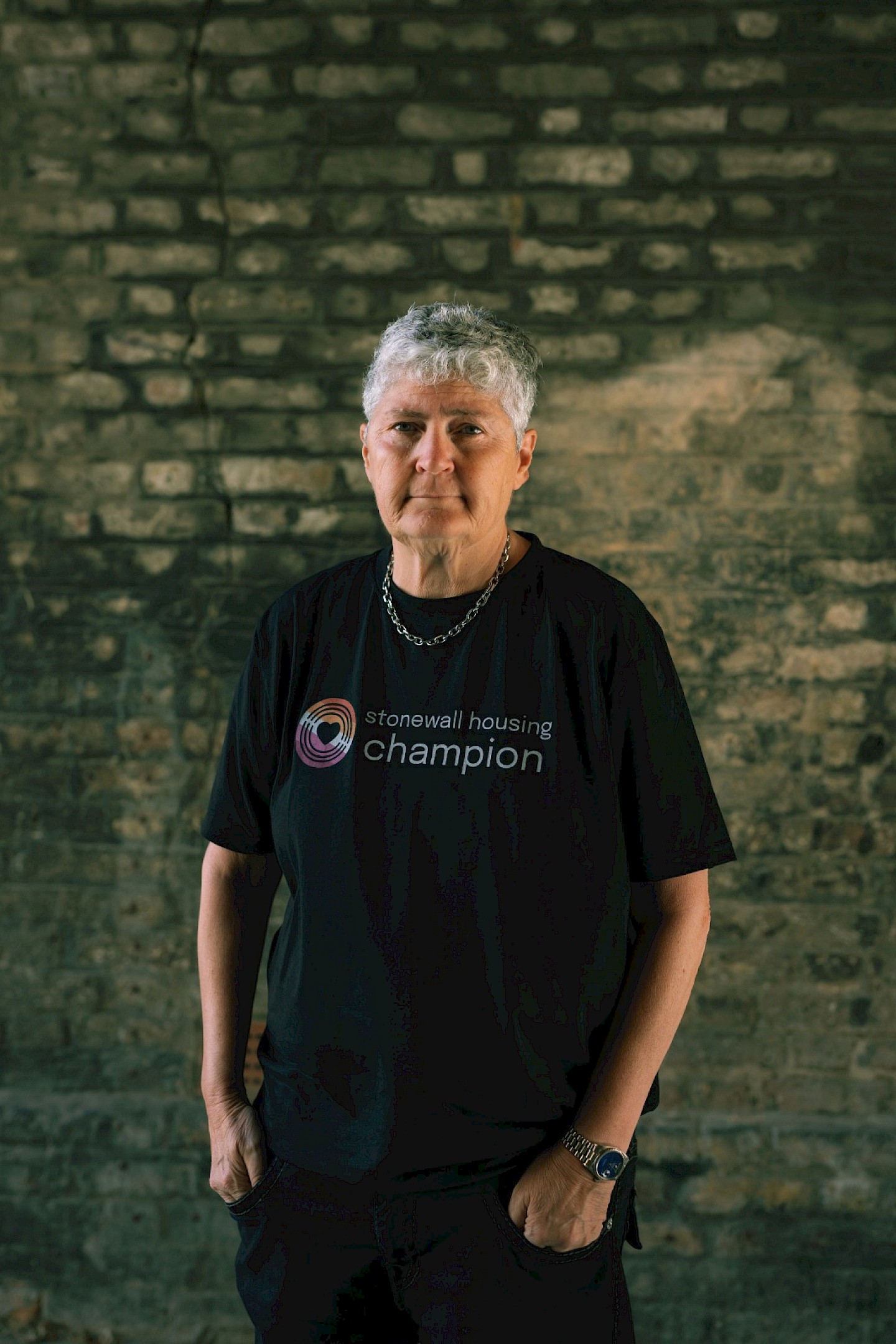
Linda Riley, Publisher of DIVA Magazine and founder of Lesbian Visibility Week
Linda (she/her) began her career in publishing over 20 years ago as joint publisher of both g3 and Out in the City magazine, and started working in diversity related events a decade later. She has become a powerhouse in the diversity and inclusion sector, starting initiatives such as the Global Diversity List, European Diversity Awards, the Pride Power List and many more.
Linda has been publisher of DIVA magazine, Europe’s leading brand for LGBTQI women and non binary people; she is the founder of Lesbian Visibility Week.
Linda is a former Board Director of US based LGBT campaign group GLAAD (2013 - 2019) and Patron of LGBT homelessness charity akt. Currently, she is a Patron of Diversity Role Models, a LGBT anti-bullying charity. Linda is also a House of Stonewall Golden Champion for Stonewall Housing.
In November 2017, Shadow Secretary of State for Women and Equalities, Dawn Butler MP, appointed Linda as the Opposition Labour Party’s LGBT Diversity Lead.
Linda won Trans Ally of the Year at the Trans in the City Awards in 2021. She is also a former Stonewall Award winner and Business Icon of the Year from the Icon Awards 2017.
Linda spoke to us about the developments and changes she's witnessed in the community since the first issue of DIVA Magazine almost 30 years ago, and how they've been influenced by the current political context...
We have seen many changes in the law such as equal marriage and parenting rights. Same-sex parents can now be recognised on birth certificates, homophobia is now legally a hate crime and workplaces are now so much more accepting of the LGBTQIA community than they were 30 years ago. On a personal level, when I first started in publishing with g3 magazine, potential advertisers would actually hang up on me when they heard I was calling about a lesbian magazine! Well, we certainly don't see that anymore - thankfully!
Can you tell us about a standout moment/achievement since you began your career in publishing that you’re the proudest of?
Launching Lesbian Visibility Week at the London Stock Exchange this year was definitely a highlight and something I never thought I would see.
What is your view on how LGBTQI women and non-binary people visibility/representation has evolved?
When DIVA was first published in 1994, it was mainly for lesbians and bi women. That has evolved over time and today it is the world's leading magazine for LGBTQIA women and non-binary people. DIVA is now more inclusive than ever before and that reflects the increased visibility of different identities within our diverse community.
What is the change you’d love to see in our community?
I would love to see our Trans siblings enjoying the same equal rights that many of the LGB community have already.
It's our 50th birthday! Any comments?
That London Friend is still around 50 years from now, so the next generation can celebrate!
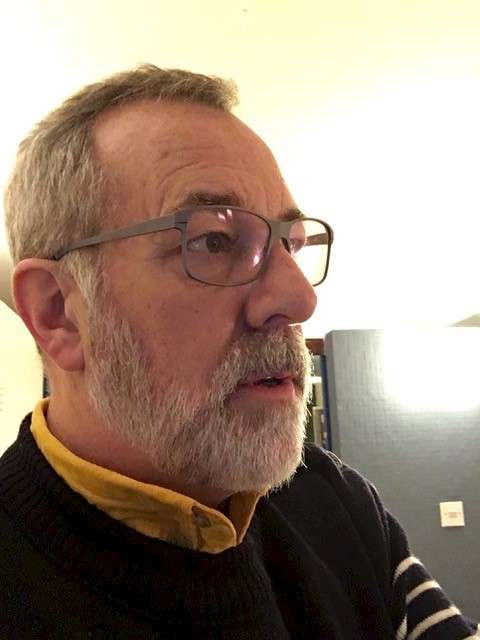
Roland Jeffery, General Secretary of London Friend from 1975 to 1977
Roland Jeffery was the General Secretary of London Friend from 1975 to 1977, and the charity’s first paid worker. After London Friend, he went on to work in Heritage regeneration. He currently is the volunteer coordinator at Isokon Gallery.
What made you apply for the role of General Secretary and motivated your work, at a time when gay people were ostracised and closeted at work?
I came to work for London Friend in September 1975, immediately after university. I was the organisation’s first paid employee and for some reason my post was oddly titled General Secretary. This made it sound like a large organisation and a trade union, so doubly misleading!
For me, it was a question of pursuing gay activism, which I had become involved with as a student, or taking a different direction and going for conventional career track job, as most of my fellow students were doing. I remember sitting in the park with the job offer from Friend in one hand and another for a graduate trainee scheme in the other, and thinking this feels like a fork in the road. I had come out aged 16 at school in Northern Ireland so a large part of my decision was: could I be openly gay at work or would there be hassle, or worse?
Tell us about your inspirational work and a standout moment as a general secretary at London Friend
Friend was a young organisation but already there were fifteen Friend groups across the country; it was an organisation whose moment had come and there was change in the air. All of the groups were entirely powered by volunteers, which was humbling. I was the sole full-time staff member and there was one part timer to help keep the office open daytimes.
The first task I had was moving London Friend’s operations from a temporary office in Westminster that was due to be demolished across to Islington; this was a condition of the grant we had been awarded. Having started out in a corner of a volunteer’s flat in Earls Court three years earlier it felt like a huge jump to an Upper Street, Islington address with a shopfront and three floors of rooms for admin and counselling. Of course, Upper Street was not as smart in 1975 as it is now and the rent on our premises was quite reasonable and the premises had been sitting empty for three years before we took the lease.
We also had to get incorporated as a charity; now we had a little money we had to account for it! The grant was 75% from the Home Office and 25% from Islington. It is easy to forget how even liberal and progressive politicians then saw sexuality as a totally private (and largely shameful) issue, not as a political one or a matter of human rights.
Incredibly this political double-think continued until the early 1980s, in spite of the Jeremy Thorpe affair, and several other scandals. But Islington councillors had the guts to sponsor London Friend’s grant application and Roy Jenkins signed it off as Home Secretary. The fact it went so high in the Home Office in spite of being a minute amount in terms of the Home office budget showed how unusual it was. We were the first gay-led organisation of any kind to get a public grant and that fact alone attracted quite a lot of press attention.
What kind of developments took place for London Friend in this period and how did the current political context influence them?
At that time (1972-75) we branded ourselves as a ‘befriending and counselling’ organisation and a good deal of support we gave was on the phone, rather than face-to-face.
We saw a lot of our work as befriending—today it would be called peer group support—rather than counselling. But alongside telephone befriending we did host several groups in our new premises, including two which had a closed but rotating membership and were led by professionals. Other groups were social discussion groups intended to give those attending the confidence to meet socially outside Friend.
For the great majority of service users we were the first contact people had with openly gay lesbians and gay men. Taking on the Upper St premises meant we could see lesbians and gay men privately as well for more in depth one-to-one discussions. A number of members of the Gay Social Workers and Probation Officers Group joined and helped to build that side; but they came to London Friend as lesbian and gay volunteers first, even though their professional training and counselling skills were greatly valued.
The grant meant we could place paid advertisements in the press. They were only tiny ads in the classified columns, but the response was astonishing. If there was one in the Sun or Daily Mirror, all four phone lines would be ringing off the hook for days after. There was a huge pent-up demand for what we offered. The Daily Telegraph and The Times refused our ads, the latter on the personal decision of the editor, William Rees-Mogg, who also insisted that a news story about Friend put the word ‘gay’ in quotes throughout.
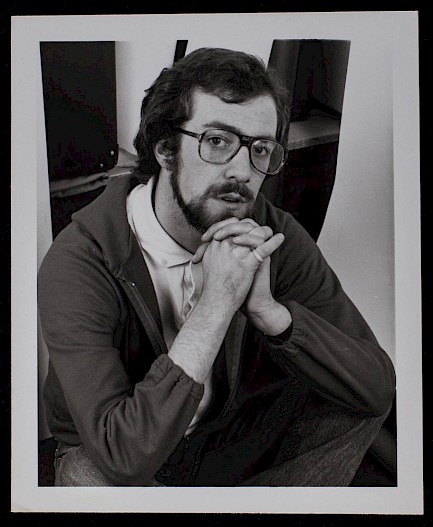
We introduced a more formal interview and selection process for volunteers and it was always axiomatic that they identify as lesbian or gay and were prepared to do so to clients; of course there were volunteers who had been in different-sex relationships, who had children or who identified as bisexual; but it was important that our callers and visitors spoke to us as people living a life as non-heterosexual people. We didn’t expect callers and service users to come out unless they were ready to do so; but we did expect our volunteers to be open about their sexuality. Quite a bit of our befriending was talking people who wanted to come out through the process, especially if they were in jobs where it was not then acceptable to be known to be gay. I still vividly recall conversations I had with a coal-miner, a bus driver and a barrister who faced that situation; I sometimes wonder how things worked out for them in the longer term……
We celebrated Friend’s fifth birthday in our offices with a big party that was filmed by the BBC for broadcast. Maureen Colquhoun MP was supposed to be our guest of honour and her appearance would have amounted to her coming out. Journalists started ringing the office, scenting a hot story, but Maureen’s constituency Labour party threatened to de-select her if she attended and Graham Chapman from Monty Python stood in at short notice. Sadly, Maureen was de-selected as MP anyway, in no small part because she became open about her sexuality.
How was London Friend different from the other gay-led organisations?
We had generally friendly relations with a wide range of other organisations, both those that were led by lesbians and gay men; and mainstream ones too, provided they demonstrated the kind of acceptance of alternative sexualities we expect before we would refer service-users to them. There were one or two professional social work and counselling bodies who declined to engage with us — though I understand they have overcome their institutional homophobia since. Several mainstream ‘agony aunts’ in the national press and on radio gave us fantastic free publicity as an organisation and championed a more enlightened view of human sexuality.
One forgets in this age of self-help and the internet how difficult it then was for anyone to access frank and realistic advice on sexuality and sexual issues. It took the massive, unmissable tragedy of AIDS in the following decade, to break down many barriers like that and force issues of sexuality into public discussion.
What was your experience with London Friend and the people who worked there as volunteers, service users and supporters?
The volunteers at Friend in the short period I worked there were awesome. Many gave so much to the organisation and its service users. It could be really emotionally draining at times, but there was a supportive and energetic team spirit. Most volunteers had jobs and household responsibilities too. There were between 50 and 60 volunteers in London Friend at that time and many gave way beyond the hours that the committee flagged as a minimum commitment. In terms of value for money our small government grant unlocked a huge stock of energy, skill and commitment.
What is the change you’d love to see in our community?
Occasionally I pinch myself that I have been lucky enough to live through the transformational changes since the 1970s. Many of us fought and took risks for change, but there were some set-backs and real moments of doubt: progress is never inevitable. I’d like to see the same kind of progress in those countries and regions where homophobia is still the norm. We need to support those fighting for change in those parts of the world—some of which are in Europe!
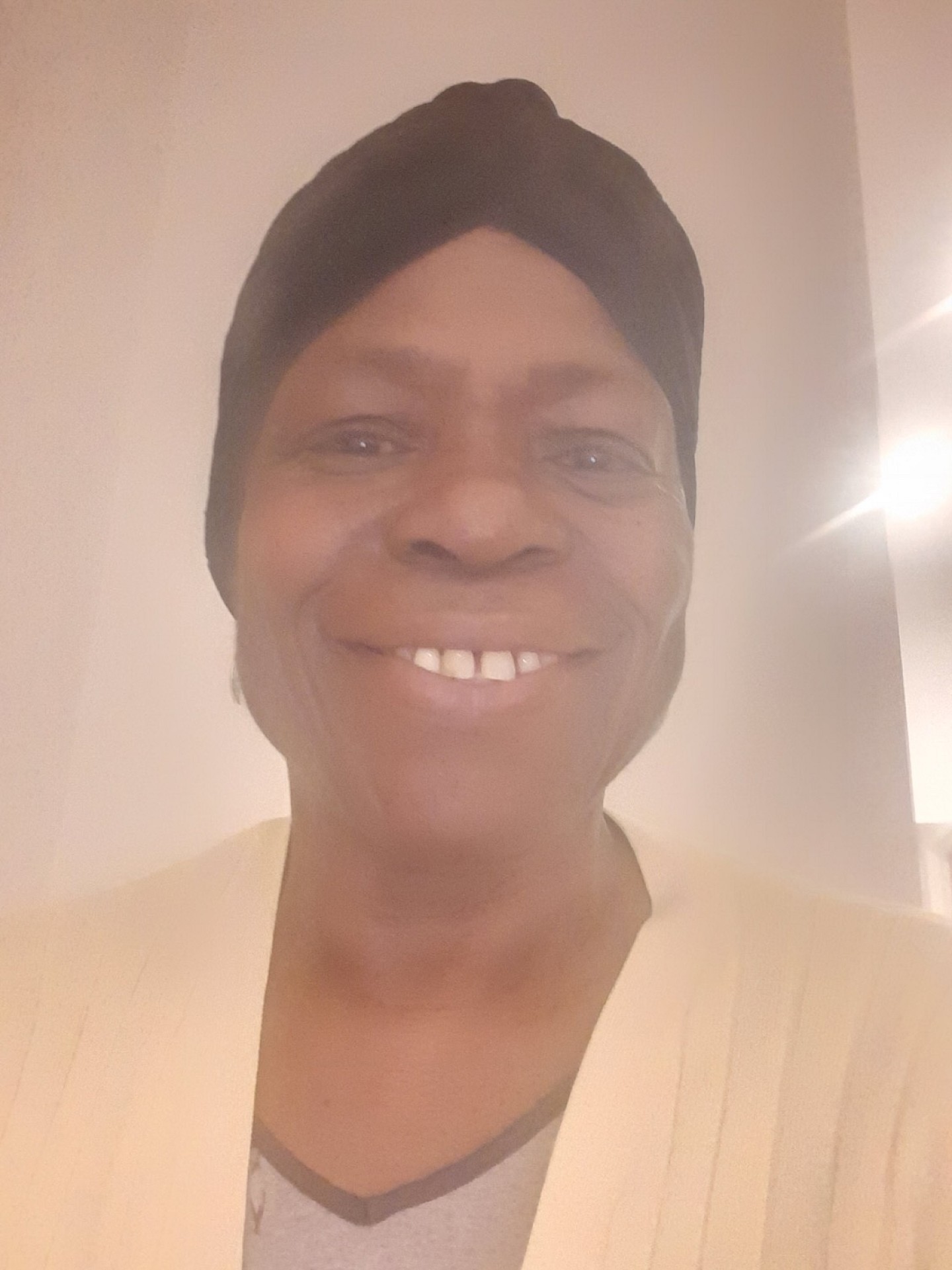
Olivette Cole-Wilson, helpline counsellor at London Friend in the 1980's-90s, founder of Lesbians at Friend on Sundays, and founding member of Stonewall
Olivette (she/her) joined London Friend in the autumn of 1988 as part of her Social Work course, which required her to undertake two work placements. She stayed at London Friend until 1991, when her daughter arrived. During this time, she became a helpline counsellor and founded the group Lesbians at Friend on Sunday (LAFS). She is also one of the founding members of the Stonewall charity.
We asked Olivette to reflect on her experience working at London Friend in its early days...
I did not enjoy my first work placement, so decided to find the second placement myself. After some research, I came across London Friend and was really excited to be working in a lesbian and gay environment. I was not disappointed!
There were two paid members of staff at that time, as far as I can recall: Chris Payne and David Samson. Both Chris and David were warm and welcoming, extremely encouraging and open to new ideas; they helped to make my time at London Friend a really educative, challenging, rewarding and enjoyable experience.
Initially, I undertook basic duties, welcoming people who came to access the drop in facility, helping to sort out books for the library and generally getting a feel for the centre. Subsequently, I was inducted into the telephone counselling team, and this formed a large part of my work for several months.
I then undertook a short counselling course external to London Friend and thus a few months down the line I was able to join the face-to-face counselling team.
Working therapeutically at London Friend was a real eye opener for me. Talking to people on the phone from across the country who were struggling to access appropriate facilities nearer to home or who wanted to remain anonymous, particularly people who lived in small communities where their every move appeared to be under scrutiny, was at times a real challenge, but also a great privilege.
Seeing people face to face was an enlightening experience, partly because I had led a rather sheltered life up until that point but also because, for me, a lot of sensational media stereotypes were debunked.
I met couples who had been together for decades, both men and women, some of whom had to hide their true relationship and were generally seen in their own communities as 'friends' sharing a house or flat.
There were people looking for meaningful relationships and friendships, people who were struggling to meet other people in what they often saw as a hostile and intolerant society, and others who just needed a space where they could relax and be themselves.
During my time at London Friend the situation for lesbians and gay men was, to say the least, challenging: there was a culture of 'outing' people and Section 28 was in full force which meant that many individuals working for public services, the NHS, in Education, the Forces, etc. were forced back into the closet.
London Friend provided a friendly, safe space for people who wanted companionship, someone to talk to in confidence, to explore issues relating to sexual identity, discuss relationship issues or just have a bit of fun in a relaxed atmosphere.
There were several groups London Friend ran during the time I was involved, including a coming out group for men, a coming out group for women, a support group for members of the Asian community and a social / discussion group for lesbians.
I helped for a while with Changes, the coming out group for women, and set up along with a couple of other volunteers the group LAFS, which stood for Lesbians at Friend on Sundays.
LAFS was a vibrant group where we had different guest speakers and extremely lively discussions.
Drop ins were also quite popular at the time with people who were passing just popping by for a quick chat; and if my memory serves me right there was also a small library and always a welcoming cup of something and a friendly ear.
There was also at least one book launch, a book about telephone counselling which was quite pertinent at that time.
London Friend was a forerunner in providing a friendly, warm, supportive space for the LGBTQ+ community, so it is encouraging and exciting to know that it is still going strong after 50 years.
What is a change you'd like to see in our communities?
Ideally, I would like to see the LGBTQ+ community working towards unity, cohesion and collaboration, supporting one another and putting an end to the numerous divisions.
I believe the way forward for our communities is to embrace difference and help those who are in need - whether physically, emotionally, financially or spiritually.
Discrimination on every level needs to be eliminated and it would be great if we could work towards an inclusive, accepting, nurturing, caring, compassionate society.
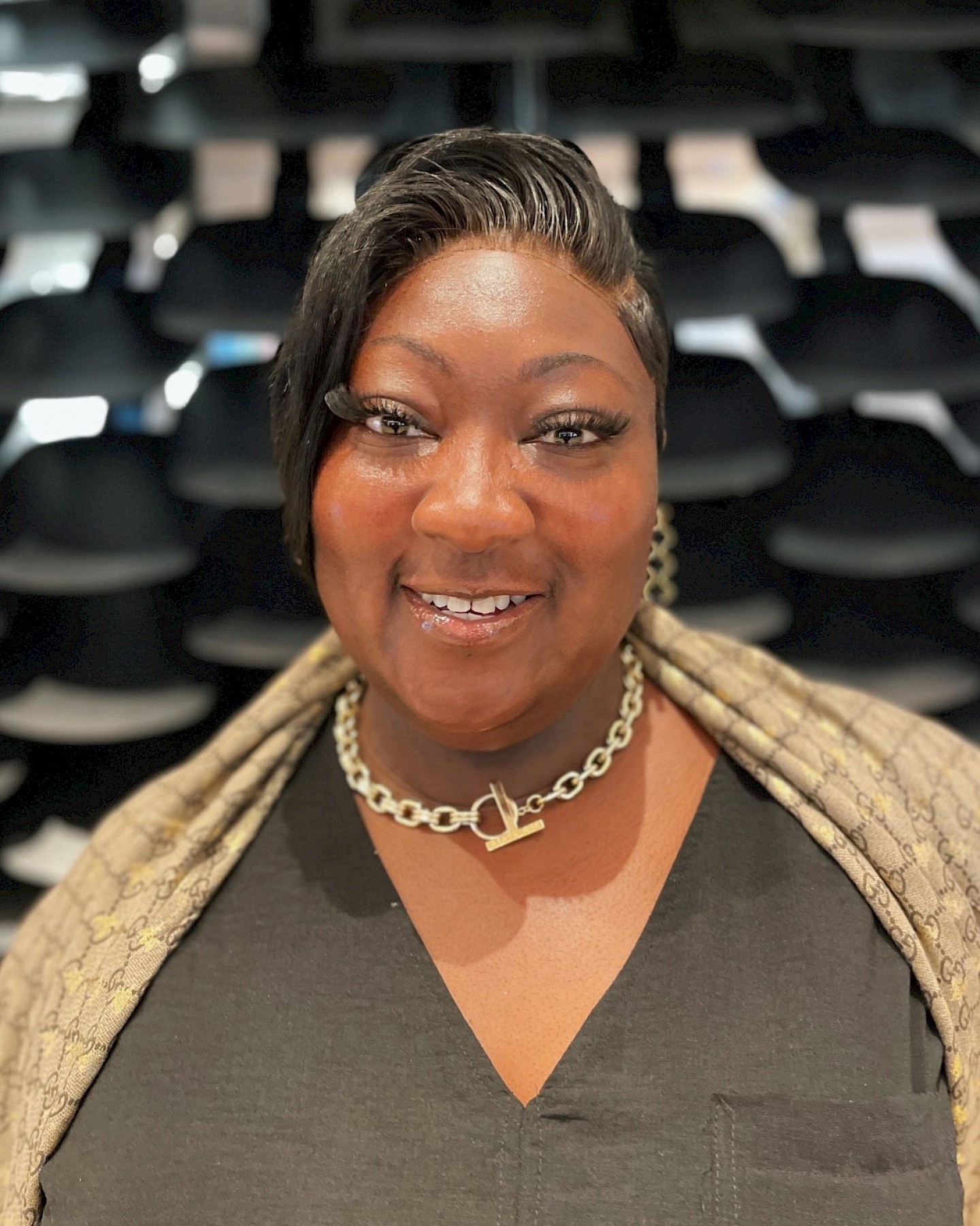
Lady Phyll, Executive Director and Co-Founder of UK Black Pride
Phyll Opoku-Gyimah is the nucleus of the award-winning celebration and protest that is UK Black Pride. Widely known as Lady Phyll – partly due to her decision to reject an MBE in the New Year’s Honours' list to protest Britain’s role in formulating anti-LGBTQI+ penal codes across its empire – she is also the executive director of Kaleidoscope Trust, an organisation working to uphold the human rights of LGBTQI+ people around the world; a community builder and organiser; an Albert Kennedy Trust patron, and a public speaker focusing on race, gender, sexuality and class. She's regularly called upon to advise nascent LGBTQI+ organisations around the world to help leaders create cogent organising strategies, establish robust partnership networks and work effectively in service of the LGBTQI+ community.
We spoke to Lady Phyll about her activism on race, gender and LGBT+ rights in London and beyond, the issue of racism in the LGBT community, the importance of intersectionality, and the need for a black LGBT pride event...
Activist and activism are labels, and while I am an activist, it’s not something I would call myself. There are so many ways to make change, to fight for what you believe in, to do what you’re passionate about, and sometimes the label of activist is a little vague. Say what you do. For example: my name is Lady Phyll and I build movements for equality. UK Black Pride began because we wanted a pride space to call our own. As LGBTQ people of colour, we are so often forgotten about or purposefully excluded, in society and in mainstream pride celebrations, and we deserve — and need — spaces that centre us and our lived experiences, without explanation or apology.
And as we continue to figure out, together and in deep solidarity, how we build a future worthy of the depth and breadth of LGBTQ communities, I remain convinced that it is our differences that make us so strong together and which will make the ultimate difference to the world. After all, as we’ve learned from Audre Lorde, “Unity implies the coming together of elements which are, to begin with, varied and diverse in their particular natures.” The Black women like Audre, queer and not, who have held me – to high standards, with love and accountability – never asked me to be them; they demanded I be me. My place as one among many has always been affirmed and it’s my job to demand the same from those I’ve convened around me.
What is the change you’d love to see in our community?
I would love to see more intersectionality, accountability and action from organisations charged with supporting and empowering our communities. In order for us to get at the heart of what our communities need to thrive, we must have and organise around a really robust understanding of intersectionality. Too often, we see intersectionality utilised in ways that erase the systems and structures that intersectionality helps bring into the light. Communities are more likely to respond to your call if they know they can count on you and that means you must be accountable to them; what we see is that many brands and organisations speak at our communities, but not with them. What would the world look like if more organisations understood accountability as a rigorous organisational value? And when we understand communities through an intersectional lens and once we establish how we expect to make ourselves accountable to varied communities, we can then take action. Our actions and interventions in support of our communities are of such urgent importance. What will you do?
Keep up with Lady Phyll on social media:
Twitter: @MsLadyPhyll
Instagram: @ladyphyll
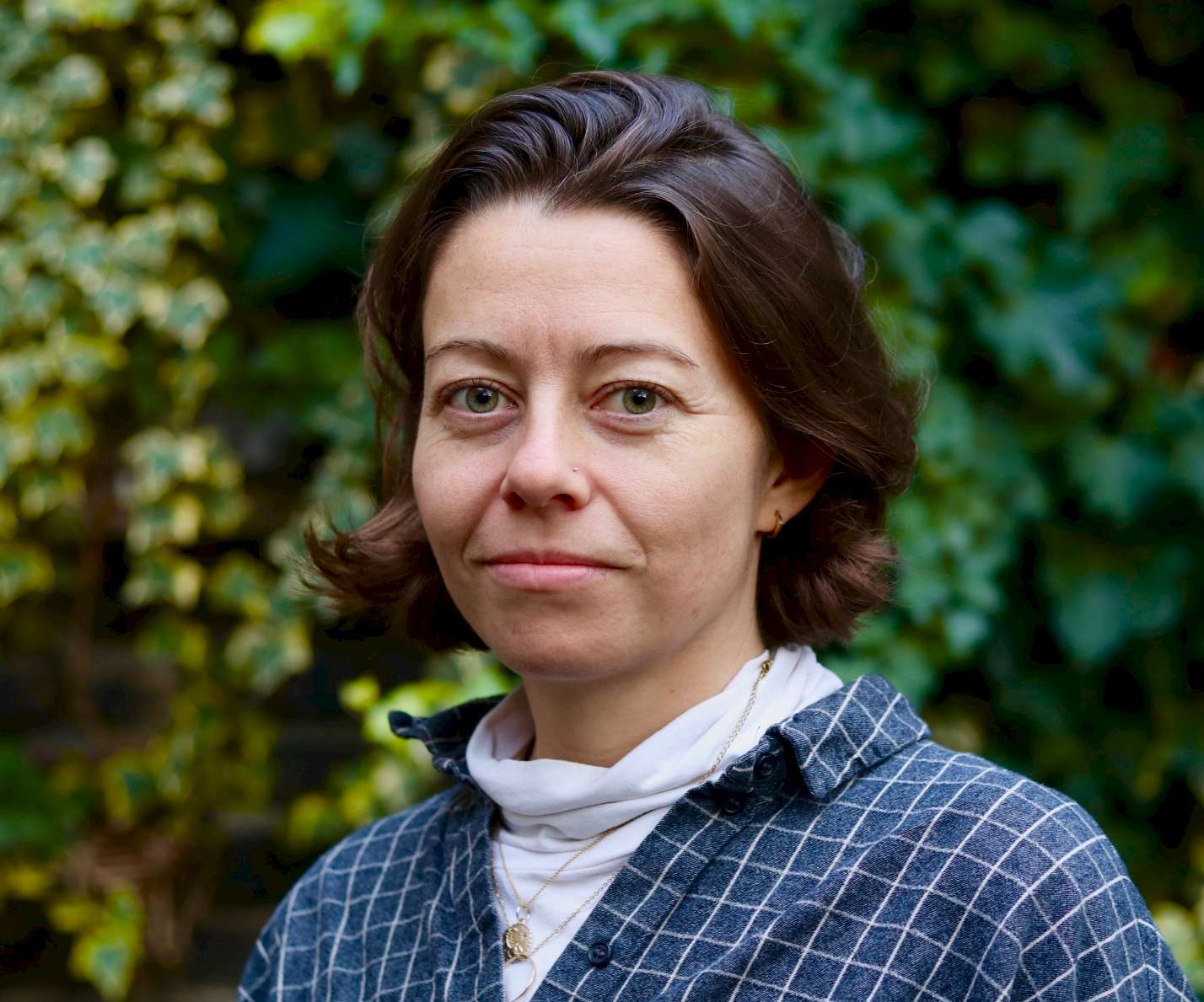
Tash Walker (she/they) is an audio producer and co-founder of the production company Aunt Nell. Previous Co-Chair of Switchboard LGBT+ Helpline, she now looks after the archive. Tash has brought the charity’s archive and log books to light through archiving at Bishopsgate Institute, talks during LGBT+ History Month and media interviews. She is the co-host and co-producer of the award winning The Log Books podcast, and most recently worked on Black and Gay, Back in the Day. They are also the Co-Founder of Get In Her Ears, an organisation set up to promote womxn and non-binary people in music, with a new music show on Soho Radio. In 2021 she was named one of top 101 LGBTQ+ Trailblazers by Attitude Magazine, and in 2022 was included in Stonewall and DIVA’s Pride Power List featured in The Guardian.
We asked Tash to tell us about her 10 years at Switchboard and the making of The Log Books podcast...
It was almost ten years ago now that I joined Switchboard as a volunteer, fast forward to 2022 and I have just stepped down from the Board of Trustees after 8 years, and 4 as Co-Chair.
I have witnessed so many incredible things whilst being a part of the charity and I am endlessly proud to have played a part in its incredible history. I’m especially proud of being part of the rebrand, changing the name to Switchboard LGBT+ Helpline to become truly representative of the communities that the charity supports. Other highlights include working on the national Safe Space campaign with RANKIN in 2019, marching at many a Pride and of course working through the night with a wonderful team to take our first ever remote call on 24th March 2020 at the beginning of the first lockdown - history in the making.
It was at Switchboard’s 40th birthday in 2014 that I began to understand what an incredible history Switchboard had, which is of course rich with our amazing volunteers and callers who have shaped what Switchboard has become today. This led me to the archive at Bishopsgate Institute (my second home – where I still remain) and of course the log books, and the making of The Log Books podcast an experience which changed me in a way I will never be able to describe. Being able to bring this incredible archive to life through research, talks and media interviews was so important to me, and led me to meet Adam Zmith and Shivani Dave, my co-producers of the award winning The Log Books podcast.
The last ten years feel like forever and no time at all. As a young person who believed in what Switchboard did wanting to pick up the phones, I grew up in the organisation and I left with Switchboard very much running in my veins. Changed forever and connected to the LGBTQIA+ communities in a way I will never be able to describe. But most importantly Switchboard has taught me patience, and the power of really, really listening.
What is the change you’d love to see in our community?
A community only really comes together when we consider and hear each other. I would love to hear more people listening, really listening to one another because although we have similar experiences, no two are the same and I believe that is the root of great understanding and change. We have to be there for each other, across the whole of the LGBTQIA+ communities, united in our differences, not afraid of change, but most importantly held together by our collective history.
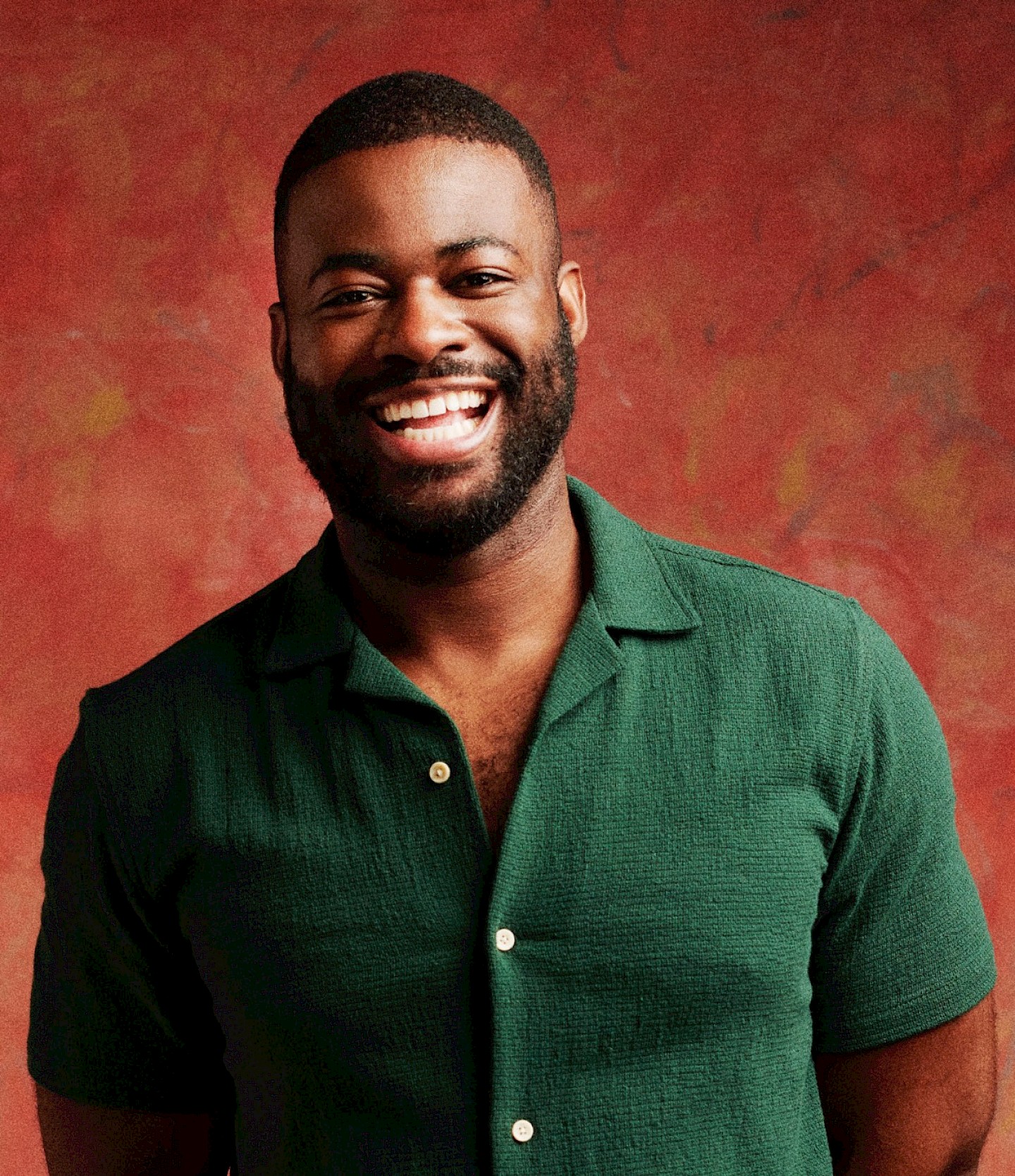
Ben is the Global LGBTQ Correspondent for VICE World News. He has a strong track record of groundbreaking investigative journalism and agenda-setting reporting on stories about LGBTQ people, race, and inequality. His work frequently highlights how the UK government seems to be sliding backwards when it comes to advancing LGBTQ rights.
In the past year, Ben exposed how the UK government was planning to block Scotland’s plans to allow trans people to more easily identify as male or female. Months on, the predictions are coming to fruition as Scotland’s gender recognition law comes under attack.
Ben’s reporting on trans people stuck in war-torn Ukraine, because their visual identity was not reflected in their official ID, went viral on Twitter and Instagram, and was covered by news outlets across the globe. The report led to over $500,000 in donations for the organisations featured, and his work was cited by several human rights organisations.
In a series of investigative reports, Ben exposed internal workings at the Equality and Human Rights Commission (EHRC) – supposedly an independent regulator of human rights in the UK. Ben revealed the “anti-LGBTQ agenda” currently taking over the organisation, which pushed employees to leave. His reporting was discussed at the UK’s Prime Minister’s Questions, as well as in a number of parliamentary debates. The reports contributed to the UK’s ranking drop in both ILGA Europe and Outright International’s human rights tables. Protests against the EHRC took place in September 2022 as a result of Ben’s work.
We asked Ben how Black and LGBTQ+ people’s representation in the media influenced had influenced his work...
Ben became a journalist because he didn’t see stories in the UK media that reflected his community or experiences. He fights to make sure we hear from the most marginalised individuals within society, and frequently they will be LGBTQ people of colour, or those impacted by class.
Ben runs "Find Your Voice" confidence masterclasses for young people across the UK on a weekly basis. He deliberately targets schools in deprived areas in order to connect with those who may not feel connected to UK media outlets.
Ben’s work has been discussed in UK parliament, cited by the US’ White House, and has led to LGBTQ organisations receiving over half a million dollars following his coverage.
What is the change you’d love to see in our community?
I would love to see more intergenerational chats occurring within LGBTQ communities. We have already lost so many incredible memories and moments because of old age, illness or untimely death. We need to make sure our stories keep getting told – and remembered.
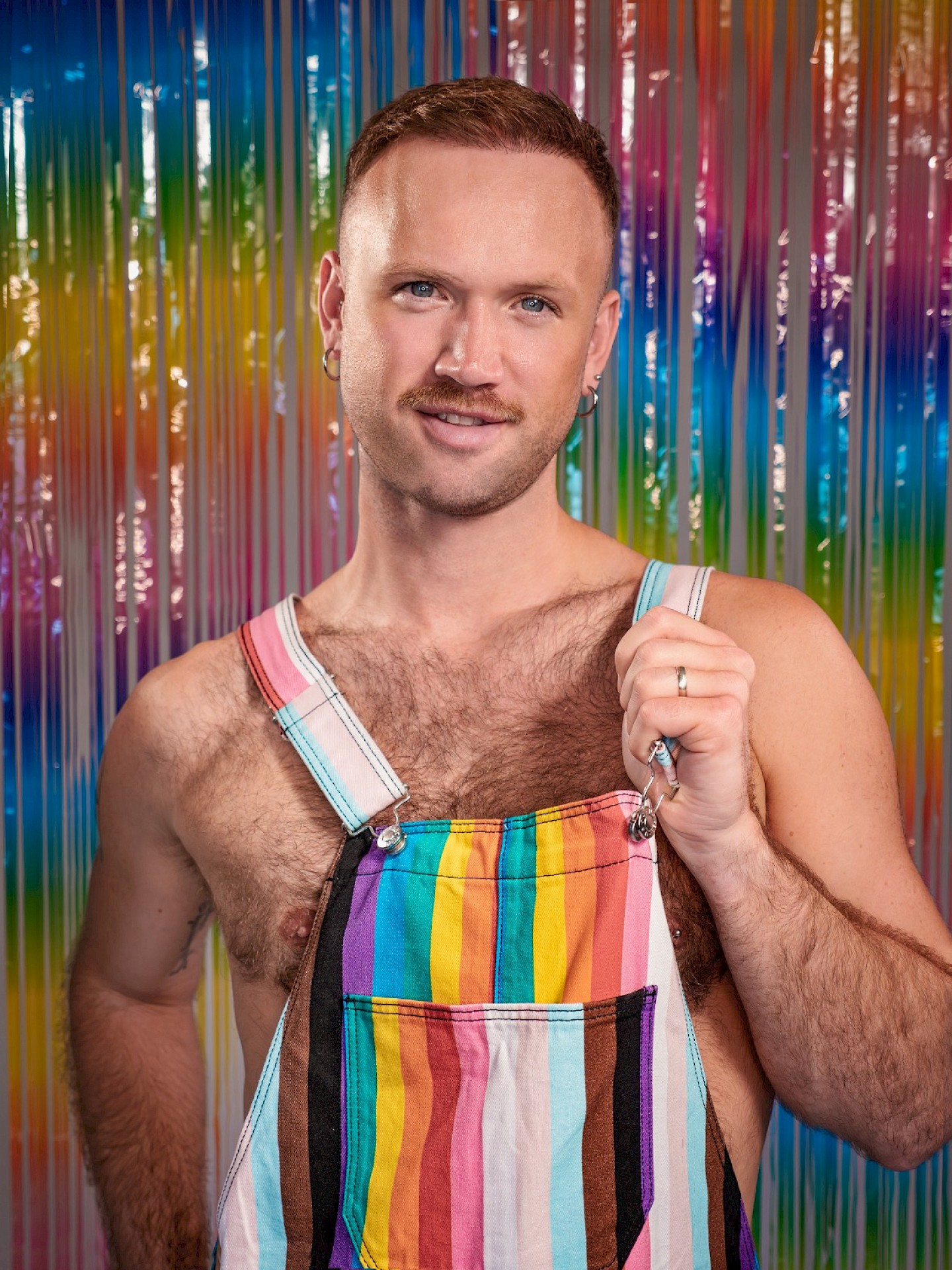
David Allwood is a choreoghrapher, creative and dancer who earned the title of Mr Gay England in 2022, and was a Mr Gay Europe finalist. He is also the Director of HOMOPARODY Queer Collective, who organise inclusive dance classes for the LGBTQ+ community, perform at major pride events, and recreate music videos and online content.
We asked David to tell us more about what motivated him to start HOMOPARODY, and how the company has grown and evolved since its inception...
I started laying the foundations of HOMOPARODY in the Summer of 2020 as lockdowns started to lift. I really felt disconnected from my friends and community and recognised this in my close friends too. I wanted to create a more healthy way of socialising for people who were struggling with loneliness or feelings of being disconnected. Therefore, I started recreating iconic Gaga music videos, featuring an entirely LGBTQ+ cast and crew of Londoners. We released these as a way of raising money for charity and brining our community back together.
The success of these videos led to me officially setting up the company in the Spring of 2022. I committed to continuing our work and also expanding into the wider LGBTQ+ community by providing dance classes and performance opportunities at various events and Prides, most notably the main stage of London Pride 2022.
I used to let worries of failure prevent me from starting anything of my own. HOMOPARODY changed all of that for me in a very organic way. I am constantly amazed by the support and generosity of people in the collective and the community we seek to entertain. HOMOPARODY has changed my life for the better and it really does feel like my child. I feel what we have is very special and would do anything to protect it and to help it grow. Our tagline is ‘Power in Togetherness’ and this encapsulates everything we are about.
The importance of inclusivity in the queer community...
Inclusivity is not just important, it is essential. The need for people to feel included is innate. We fear exclusion from a young age and this never really changes. The queer community feel this even deeper from growing up in a heteronormative society. We are the ones that may not have felt a sense of belonging. It took me until my late twenties to feel like I’d actually found my tribe and eventually I came to the realisation that the confidence I once had faked, was now genuine and that was extremely powerful. That feeling of liberation was partly due to feeling like I belonged to a wider community.
I want everyone to have that feeling. This comes from people feeling represented in mainstream media, from meeting people they can connect with who share similar sexual orientations and gender identities and also from people feeling allowed to be who they want to be. The more resistance people face, the harder it can be to feel included.
What is the change you'd like to see in our community?
There are many changes I’d like to see in our community. I feel that more unity is needed. The LGBTQ+ community feels very segmented and detached from each other. The saying goes that ‘none of us are free until we are all free’ and this means that we should ALL be campaigning for trans rights, equality in healthcare (physical, sexual and mental health) and actively showing support for same-sex couples wanting to start a family.
Social constructs take time to disband, however I feel that more needs to be done within our own community with regards to body shaming, gender norms and allowing ALL LGBTQ+ people to feel accepted.
We also need to support young people more in education and support those who experience bullying, homophobia, biphobia and transphobia as a matter of urgency.
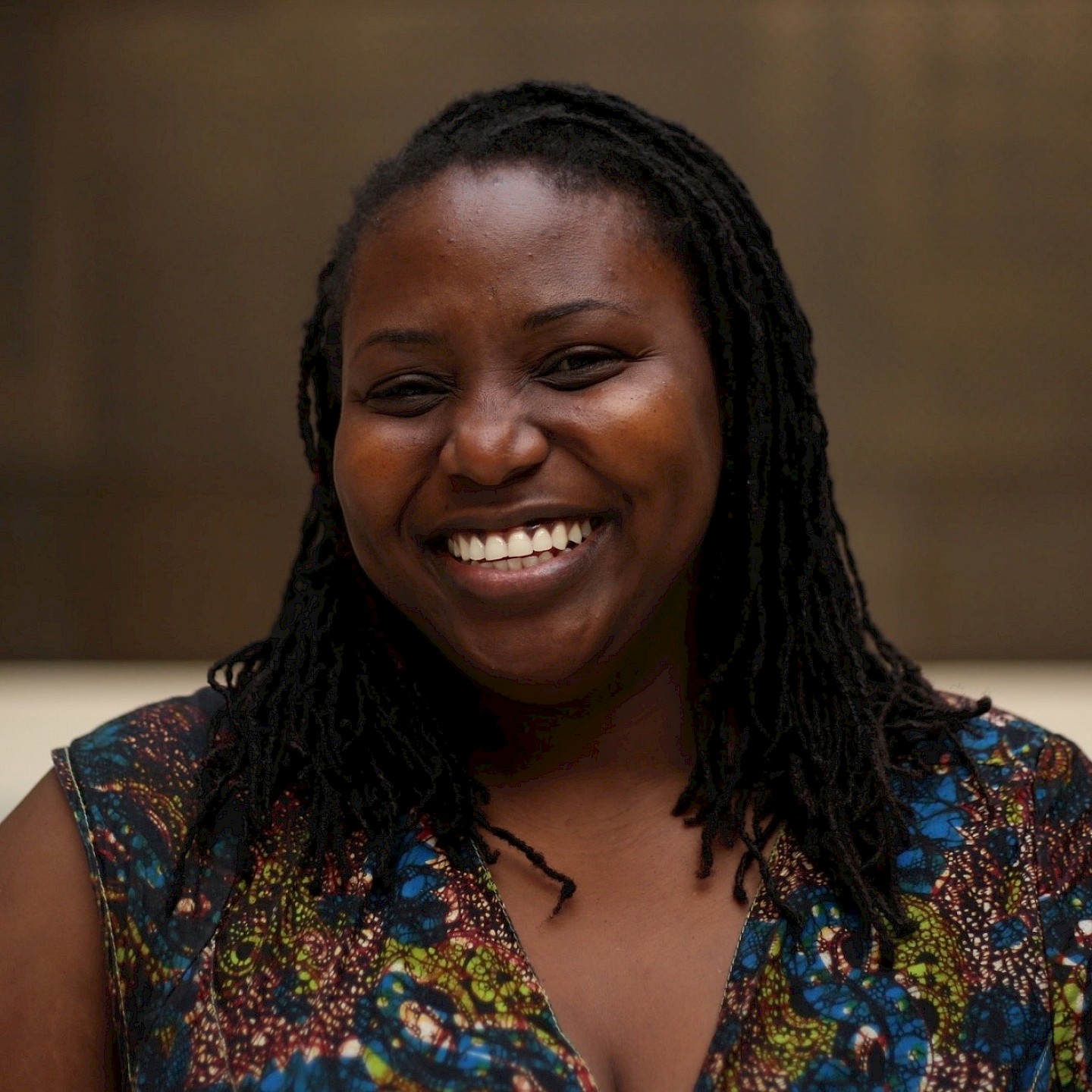
Moud currently works as a National Manager for Micro Rainbow, the leading organisation in the UK supporting LGBTQI migrants. She leads the organisation's programmes at national level: their safe housing work which provides 30,000 bed-nights a year to homeless LGBTQI asylum seekers and their social inclusion and employability schemes. More recently Moud has managed the integration process of LGBTQI people who arrived to the UK from Afghanistan. Moud is one of the founding members of UK Black Pride and she is the current Chair of their Board of Trustees. Moud was recently named as one of the BBC 100 women for 2022 and was the recipient of an Attitude Pride Award, Kaleidoscope lifetime achievement award and most recently a Diva Magazine inspirational role model award. Her pronouns are she/her.
We asked Moud to tell us about her experience navigating the UK asylum system as a Black lesbian refugee, joining Micro Rainbow, and the importance of including queer refugees and asylum seekers in the struggle for LGBTQI rights...
It is more than 14 years since I sought asylum in the UK. I remember vividly the day I claimed asylum and the days, months and years that’s followed. Navigating the UK asylum system as a young black lesbian and a mother was difficult. The process can be humiliating and dehumanising. Many years later, recalling the experience can sometimes ache like a long healed scar on a cold day. It is the experiences of poverty, isolation, the indefinite waiting for decision letters, a refusal, recalling traumatic experiences in interviews, that sometimes haunt. I still consider myself privileged because I did not struggle for evidence having been involved as a founding member of UK Black Pride and within the LGBTQI community. It is these experiences that drove my passion to want to support other LGBTQI people seeking asylum. I was grateful when I was offered the job at Micro Rainbow. Micro Rainbow is the leading organisation in the UK supporting LGBTQI migrants. We provide safe housing to homeless LGBTQI people seeking asylum providing 30,000 bed-nights a year. Alongside the housing support, we provide social inclusion and employability support to LGBTQI migrants. Recently, I was so proud of Micro Rainbow when we were awarded the Charity of the Year at the Burberry British Diversity Awards! I felt grateful for the recognition of the work that our leaders and colleagues at Micro Rainbow work so hard for.
Thousands of us who manage to flee are privileged. There are many of our LGBTQI siblings who we leave behind. They continue to live in countries where their being is criminalised and they are not afforded freedom. It is important in our work to include queer people seeking asylum and refugees in the struggle for LGBTQI rights. This is empowering not only to us as refugees but to those who are not free. Visible role models will mean that they are less alone in their struggle.
What is a change you'd like to see in our community?
A change I would love to see in our community? Solidarity with anyone in who is not yet free. It would be life changing if our community stood in solidarity with refugees, those who are criminalised, you queer people and not far from home trans people in the UK. We should stand behind anyone who is still fighting for their freedom and basic rights. As a community we should not leave anyone behind.
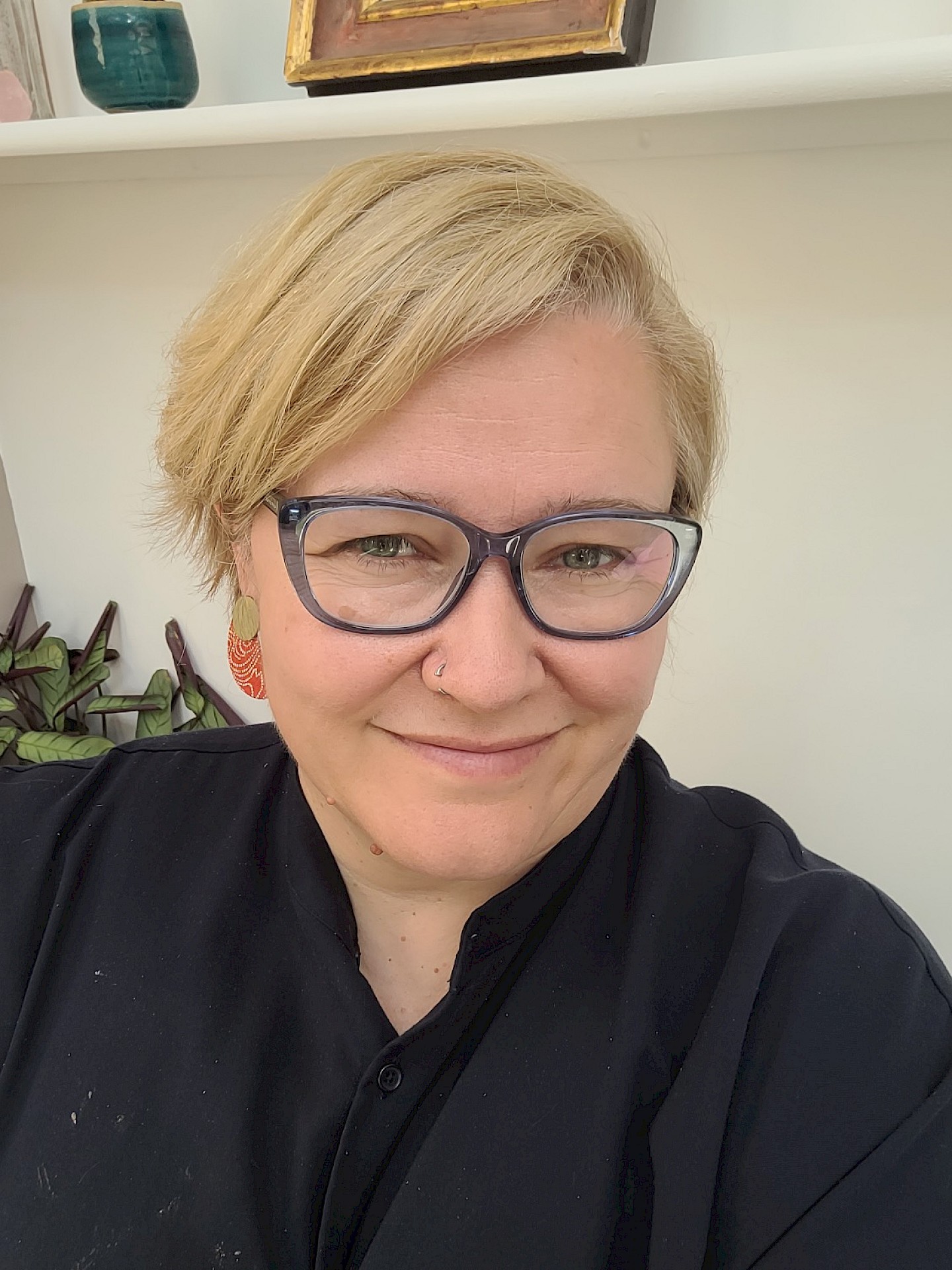
Nancy Kelley (she/her) is Chief Executive of Stonewall, the LGBTQ+ human rights charity, which is part of a global movement for change where LGBTQ+ people everywhere are free to be themselves and can live their lives to the full.
Previously, Nancy worked to improve outcomes for vulnerable children, for people experiencing mental distress, for refugees and migrants, and for people living in poverty. More recently she worked in roles focused on research and insight. It has been a privilege to have a career where she gets to come to work every day and try to make society fairer and more inclusive.
We asked Nancy to tell us about her experience as CEO of Stonewall at a time when anti-LGBTQ+ sentiment is rising around the world...
At Stonewall, we work across the UK, and with partners around the world - fighting for a world where all LGBTQ+ people can live our lives to the fullest. Some of the challenges are depressingly familiar – conversion practices are still legal, queerphobic bullying is still rife. Some are newer - we’ve got a broken trans healthcare system and spiraling online hate against our community is fuelling real life attacks. All of that is visible around me, here in this city that I love and has been my home for half my life.
Being CEO at Stonewall is the hardest job I’ve ever had and the most joyful. At a time when anti-LGBTQ+ sentiment is rising and our rights are under threat, there is nowhere I’d rather be than fighting with and for our communities. There’s so much I’m proud of – our work to support LGBTQ+ Afghan people to find refuge from the Taliban, getting the government to equalize access to IVF for lesbians, bi women and trans people. But I’m equally proud that we stand up for what we believe in when we aren’t winning, and when the deck is stacked against us. That’s our job.
What is the change you would like to see in our community?
The change I want to see is all LGBTQ+ people, in all our diversity, having our fundamental human rights recognized. Its that simple.
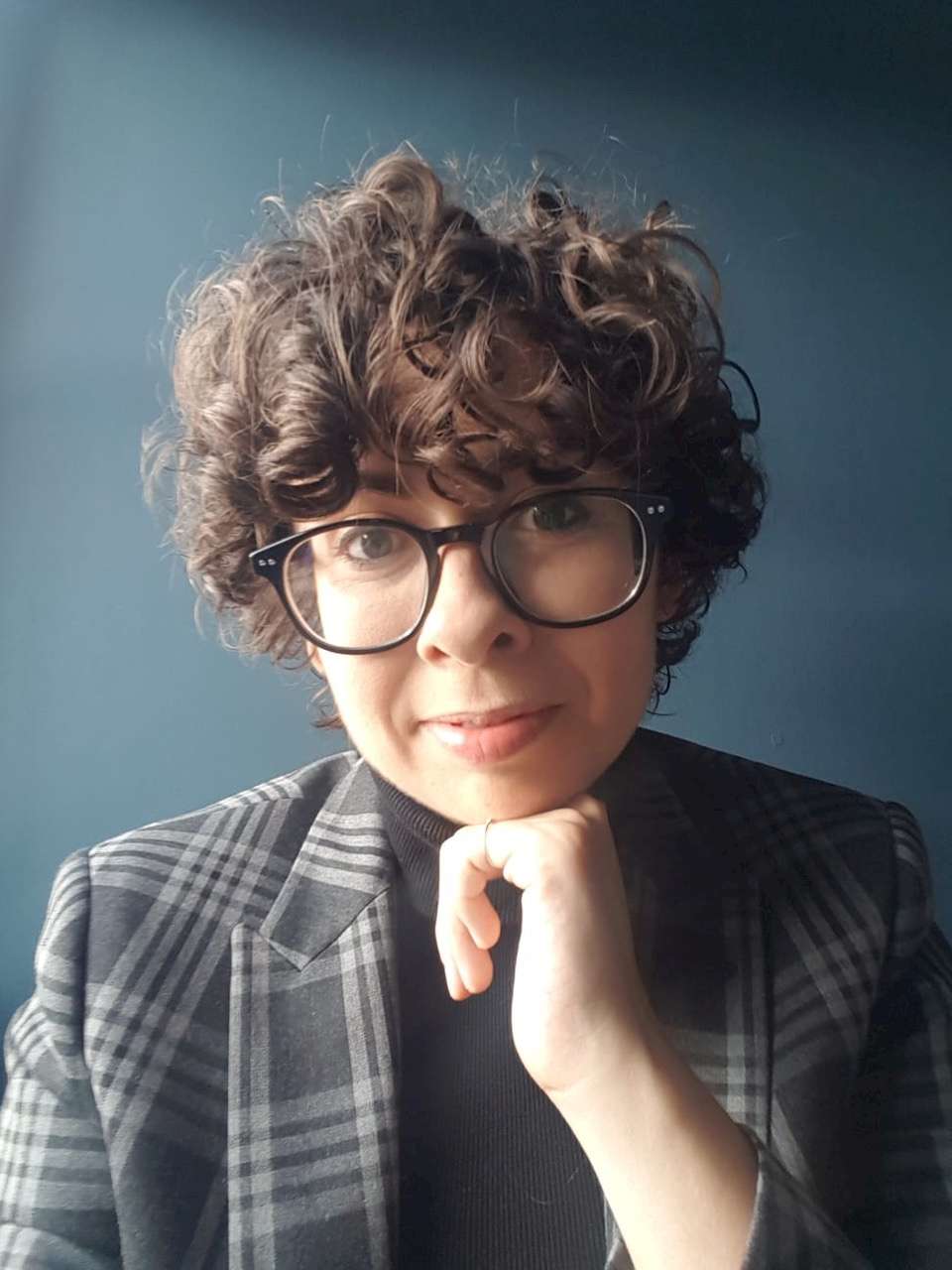
Leni is passionate about supporting and advocating for the LGBT+ community and has worked within an array of LGBT+ and human rights organisations. Leni joined Galop in June 2020 as Chief Executive Officer. Galop provides advice, support, and advocacy to thousands of LGBT+ people who experience abuse and violence, every year through their frontline services. Leni cares deeply about the LGBT+ rights and is driven to use her time and energy to make things better for people in that community.
We asked Leni to tell us more about what Galop does to tackle LGBTQ+ hate crimes...
Galop has been supporting LGBT+ victims of hate crime since 1982, and now works with thousands of LGBT+ victims and survivors of all forms of abuse and violence across the UK
Galop launched the National LGBT+ Hate Crime Helpline in 2021 in response to the escalating abuse and violence against our community and the lack of specialist support for victims of hate crime across the country. We have been receiving calls since day one, and demand for our hate crime support services has only continued to grow over the last few years.
The public discourse around trans and non-binary people, as well as homophobic narratives around public health incidents like monkeypox and COVID-19, is driving perpetration of hate crime against our community, as shown by the increase in the official hate crime figures each year. There is a direct line between anti-LGBT+ narratives and real life attacks, blackmail, doxxing, and other hate crimes experienced by our community in our everyday lives.
We support LGBT+ victims of hate crime, as well as all other forms of abuse, through one to one support – whether that’s via our national helplines, our intensive long term support for people in high risk situations, or our services to help people cope with and recover from their experiences. We support people in taking the action that’s right for them.
We also work to address the root causes of abuse and violence against our community at a policy level, and will continue to represent the voices of LGBT+ survivors of abuse and violence for as long as we are needed.
Can you tell us about the recent launch of Galop’s helpline to support LGBTQ+ victims and survivors of sexual violence and abuse - and why it’s important?
LGBT+ people are often forgotten or left out of the picture when it comes to sexual violence – and when we talk about sex as a community, that tends to be about sexual health and safe sex.
It takes a great amount of bravery and trust to tell someone else about an experience of sexual violence, and we know many LGBT+ people feel unable to talk about what has happened. It can be hard for LGBT+ people to feel safe coming forward to seek help, without worrying that perhaps services aren’t open to us, or that services might need the victim to educate them on LGBT+ identities, or that a victim might experience homophobia, biphobia, or transphobia from services or the police.
That’s why Galop launched the UK’s first LGBT+ Rape and Sexual Abuse Helpline. We’re run by LGBT+ people, for LGBT+ people so if you call our Helpline, you’ll always speak to someone who understands what you’re going through. Galop provides that safe and understanding space that’s so needed in our community, where survivors can seek help knowing they’ll be supported and understood, without fear of anti-LGBT+ discrimination.
Being able to launch a national helpline, so anyone anywhere in the UK knows they can call and get expert advice from another LGBT+ person with specialist knowledge, has been a real privilege and we will continue to work towards a future where our community can access high quality support whenever we need it, for whatever has happened.
What has your experience as CEO of Galop been so far?
Being CEO of Galop is an absolute privilege – serving my community means the world to me, and being able to support people in our community at some of their hardest moments is something the whole team is deeply passionate about. Being able to work with our team here to create and grow services for our community – like the hate crime, sexual violence, and conversion practices helplines we’ve opened over the last few years – makes me feel so proud of the work we do, and so grateful that we’re able to give our community new options for support that they haven’t had before.
Every year, Galop supports thousands of LGBT+ people who have experienced abuse and violence. Seeing the difference that our support makes to our clients is a real privilege, and I’m proud of our whole team at Galop every day.
What is the change you’d love to see in our community?
I want us to be safe, and to be able to live freely as the people we are.
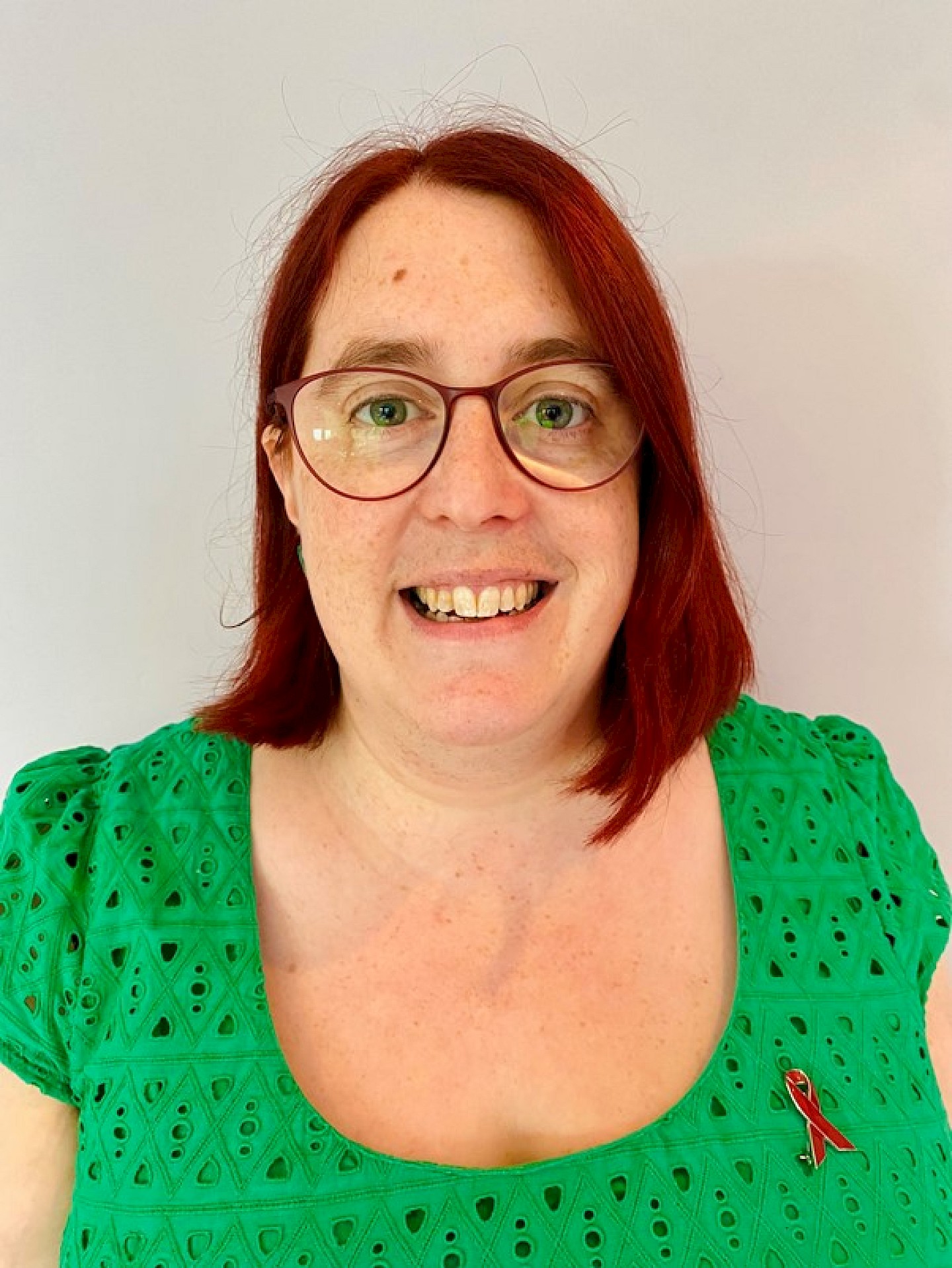
Deborah (she/her) is the Chief Executive of National AIDS Trust, the UK’s HIV rights charity. National AIDS Trust works to stop HIV from standing in the way of health, dignity and equality, and to end new HIV transmissions. Deborah has been at the helm of National AIDS Trust for nearly nine years, leading its advocacy and campaigning work on HIV rights. Before her current role, Deborah was the Chief Executive of Galop, the UK’s LGBT anti-abuse charity. She has also worked for Stonewall Housing, and Allsorts Youth Project, and for Shelter on a role raising the needs of LGBT homeless people.
We asked Deborah to tell us about her work across different LGBTQ+ organistions and to share a standout achievement in the LGBTQ+ community in London and beyond that she is proud of...
I came out as a lesbian when I was 17 years old. I was active in student politics, and that meant that I was lucky enough to have a safe landing, surrounded by older university students who looked after me, answered my questions and immediately made me feel part of a movement. Despite that luck, I found it impossible not to become politicised by the unfairness all around me. The early 1990s were firmly in the middle of the worst years of the HIV epidemic in the UK, and we were still some years away from effective medication becoming available – so HIV and AIDS were ever-present. And when I came out section 28 still existed, the age of consent was unequal, you could be fired for being LGBT, refused services, and there was no thought of civil partnership or marriage rights.
My student activism morphed as I started working and looked for jobs where I could make a difference. I joined Stonewall Housing as a Housing Advice Worker, and eventually was promoted to manage the Advice Services. I remember staffing the drop-in with London Friend, out longtime partner – helping people with all kinds of situations – anything from a young person made homeless on coming out, to a tenant whose neighbour was homophobic. Many of those stories have stayed with me for years.
At Galop, I worked to try to improve the Met Police’s response to anti-LGBT abuse and violence, including hate crime, and domestic and sexual abuse. I think that there have been real improvements over the years on the public understanding and tolerance levels of hate crime, but at its core I’m not sure even now the police are able to respond effectively – and the Stephen Port murders are testament to that. While I was at Galop we expanded our remit to include standing up for trans people (one of the first UK LGB charities to do this). We worked really hard to make this change meaningful, and led by trans people, as well as providing resources to encourage other organisation to do the same. It’s hard to pick a standout moment, as I’m so proud of loads of the work Galop did while I was there - our team was small but mighty! One would be our role developing the first multi-agency response to domestic violence experienced by LGBT people which has since developed into a real centre of excellence. I’m also really proud of the impact our campaign had in catalysing the Government to act on deleting obsolete criminal records held by gay men – a historical travesty that was still affecting people’s ability to get work.
I was so, so lucky to get the opportunity to lead the National AIDS Trust. It is a truly amazing organisation, and I get to be a part of this fantastic eco-system of activists, voluntary organisations, clinicians, academics and others all working together to end this epidemic and make sure those people living with HIV get the support they need and deserve. HIV has been a theme throughout my life and career. Again, its hard to pick a highlight, so I have two! One of my proudest moments was winning the court battle against NHS England that led to PrEP (the HIV prevention drug) becoming available on the NHS. The second was our role in the HIV Commission (in partnership with THT and EJAF), and our work to get the recommendations implemented. One of the outcomes of that work was the Government investing £20m in testing for HIV in hospital emergency departments, which has been wildly successful and will be a crucial part of ending this epidemic.
What is the change you’d love to see in our community?
UNAIDS set a target to end new transmissions of HIV by 2030 and I genuinely think that with the right political will and funding, the UK could be the first country to hit this target. This was so unimaginable when I came out at 17, and its mind blowing that it is imaginable now. When something this amazing is possible, we have to do everything in our power to grasp the opportunity.
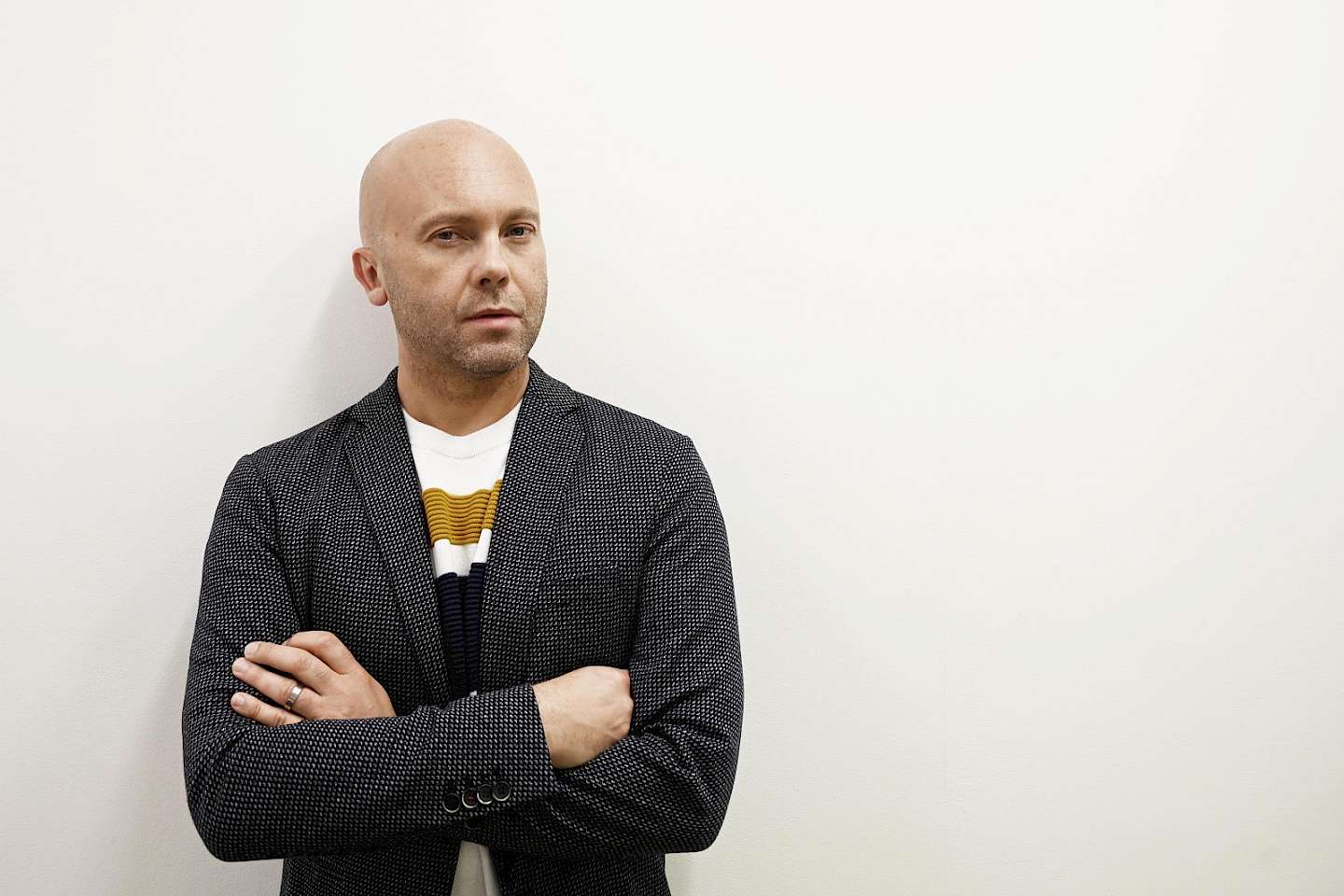
Patrick Strudwick (he/they) is an award-winning journalist who specialises in groundbreaking investigations that span human rights, mental health, LGBT issues, HIV, crime, poverty, and addiction.
His reporting helped change laws in Australia to recognise overseas same-sex marriage; changed UK government policy enabling same-sex couples to be deemed next-of-kin when travelling abroad; changed UK aviation policy to allow HIV-positive pilots to fly; led to the first bank in Britain allowing non-binary people to open an account; persuaded the police to reopen an investigation into historical sexual abuse; and prompted the Royal College of Psychiatrists to acknowledge for the first time the harm done by aversion therapy.
In 2015, he became the first LGBT specialist in a mainstream British newsroom when he took up the post of LGBT Editor of BuzzFeed UK — a role he held until summer 2020. This followed more than a decade writing for newspapers and magazines such as The Guardian, The Times, The Sunday Times, The Independent, The Observer, Attitude, and Gay Times. He is currently the Special Correspondent at The i Paper.
We asked Patrick to tell us about his work exposing the harm of conversion therapy, and raising awareness of many of the hidden harms and darker aspects of chemsex...
In 2009, I went undercover to expose conversion therapy. This involved being "treated" for my sexuality by an NHS psychotherapist and separately by a psychiatrist, who tried to make me heterosexual. At the time, most people in Britain didn't know this barbaric practice was still happening, and thought instead it was only something that took place in the US. The results of my months-long investigation were published in early 2010 in The Independent and shocked many in this country and around the world. It revealed not only that conversion therapy was alive and well in the UK, but also the detail: exactly what they do, the menacing techniques they deploy, including telling me I must have been sexually abused as a child. I spent the next two and a half years fighting to get the therapist struck off. She became the first therapist to be removed from her professional organisation for this type of "treatment". The case, and my investigation lit a fuse. As press coverage mounted and as I began to report more and more on conversion therapy over more than a decade since, a campaign formed to ban attempts to "cure" LGBTQ people. Eventually, the government announced in 2018 that it would introduce a ban. To date, we are still waiting for this, and still waiting for the details.
The second subject I've devoted many years to investigating is the crimes committed within chemsex settings. During the trial of Stephen Port, the serial killer, in 2016, I began interviewing gay men about their experiences within chemsex, of rape and sexual assault, of being drugged and forciblty overdosed. The reaction to this investigation was extraordinary as men began to speak out about the sexual violence they'd endured. But this was just the start. In 2019 I presented and produced a documentary for Channel 4 about how the drug GHB was being used to rape and kill queer men. And this year I released an investigative podcast series on Audible about the crimes of Ed Buck, a wealthy, older, white gay man, and a major donor to the Democratic Party in Los Angeles, who was luring vulnerable black men to his West Hollywood home, forcing meth into them until two men died. But it took over two years for him to be arrested. Abuse, wherever it occurs, should be exposed. This is my guiding principle.
What is a standout moment in the LGBTQ+ community in London that you are proud of?
A relatively recent moment of pure pride I felt for the LGBTQ community in London and beyond was the fight for access to PrEP and to make it available on the NHS. From 2015 to 2017 I followed this extraordinary campaign up close, reporting on both the activists and the National Aids Trust as they took on NHS England, and fought for a game-changing prevention for HIV. It took guts, vision, astonishing hard work and sheer bloody determination. It arose because queer people fought back.
